DQ Drama Quarterly

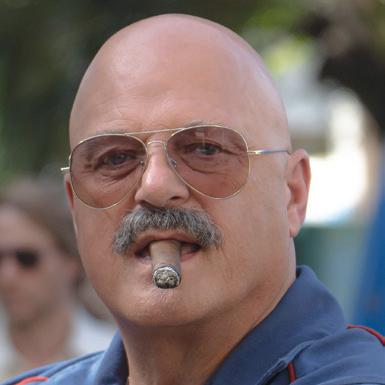
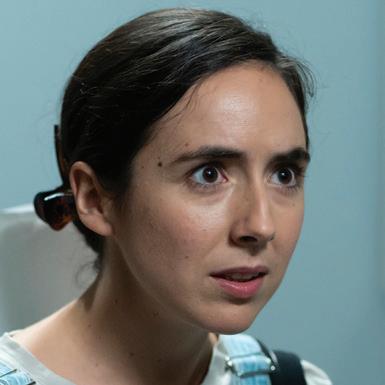
The Tattooist of Auschwitz Pulling on Soviet Jeans Meet Renegade Nell Staying at Hotel Cocaine Talking Kafka Italian crime drama Dostoevskij Spain’s Déjate Ver Charlotte Coben And more...
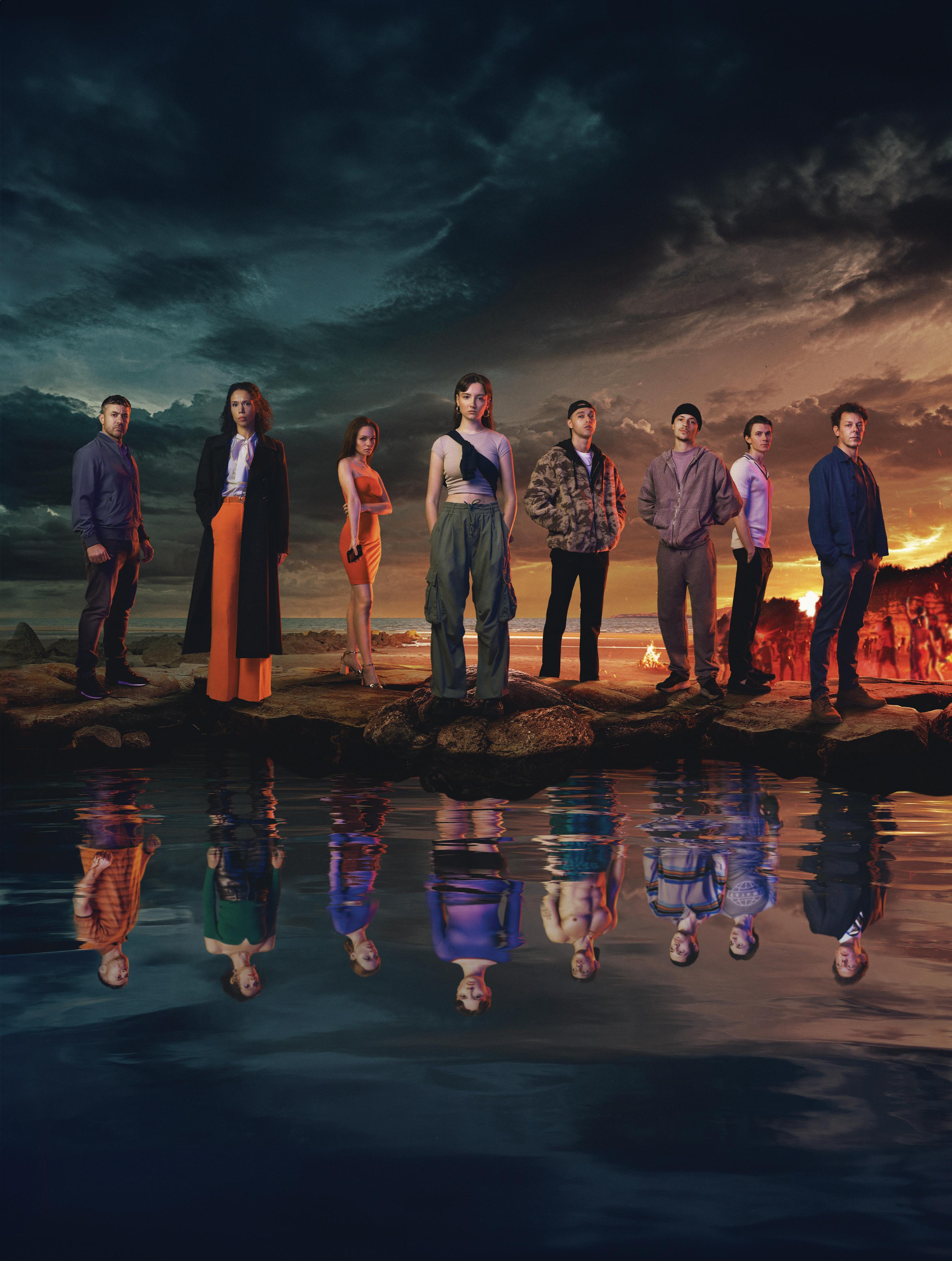

£5/US$8
£5/US$8
FROM THE PRODUCERS OF LINE OF DUTY
033 . Spring 2024
SECRETS
ALWAYS SURFACE



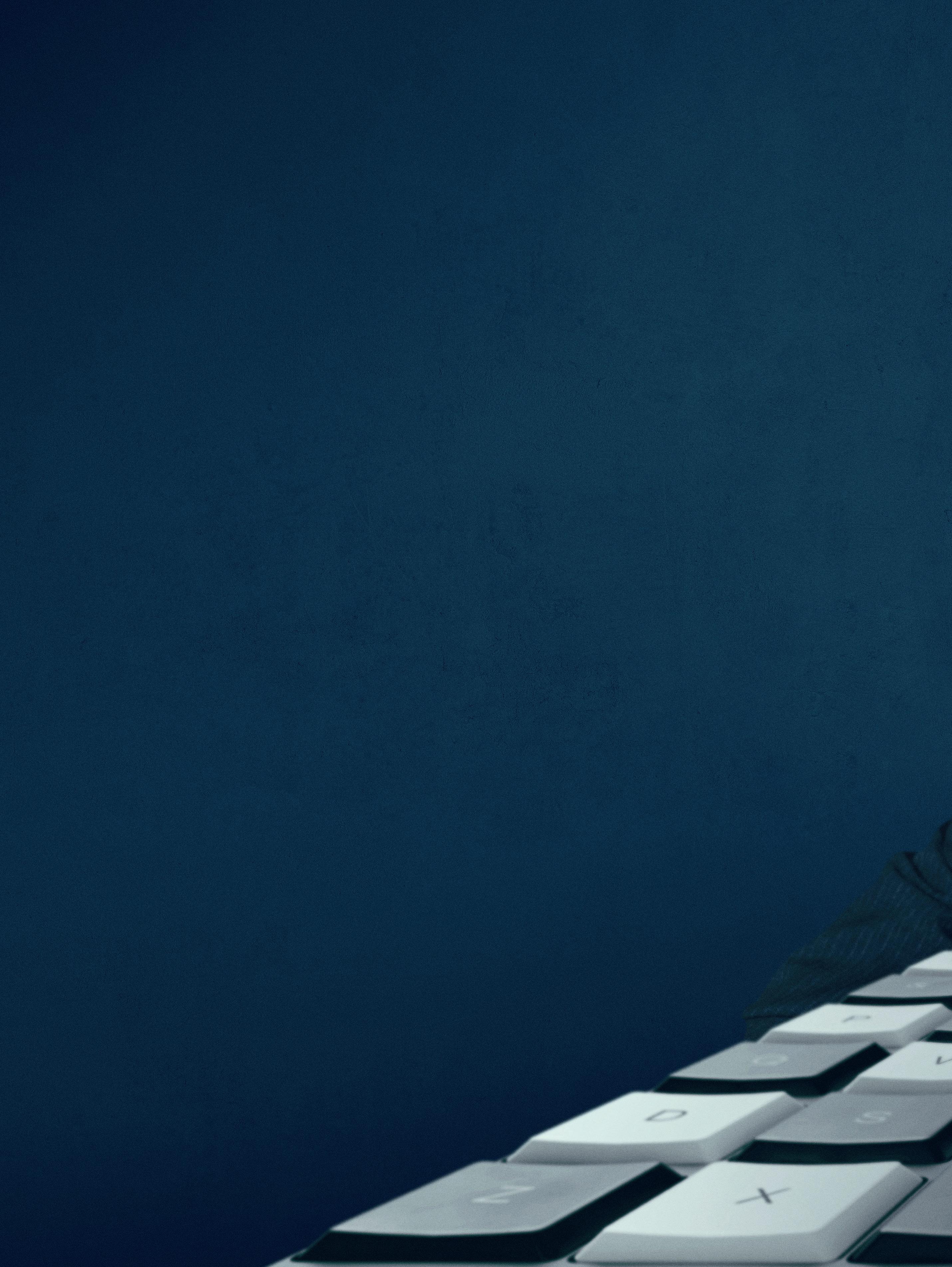




12


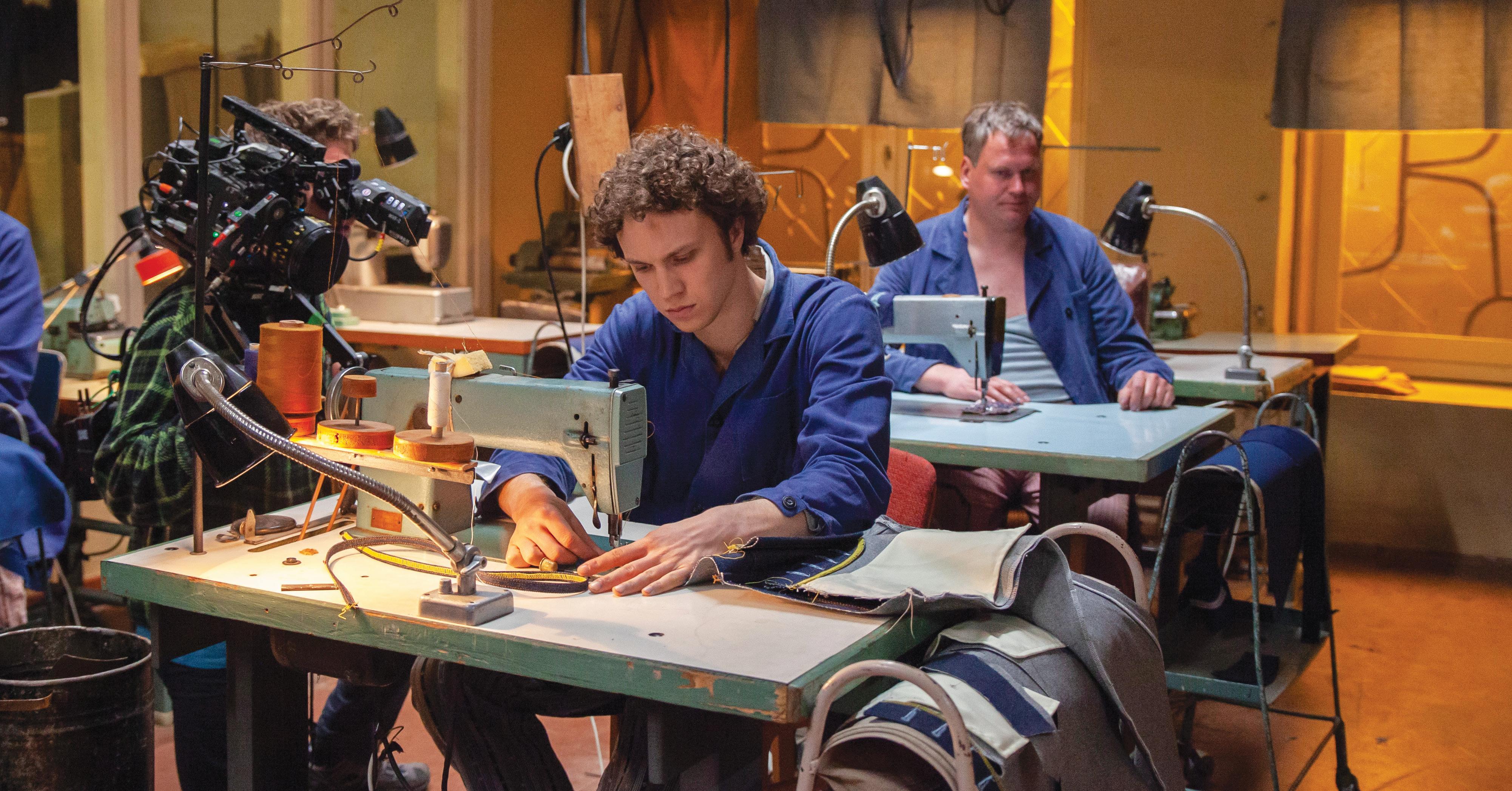






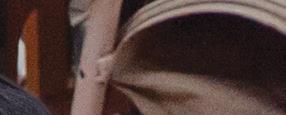

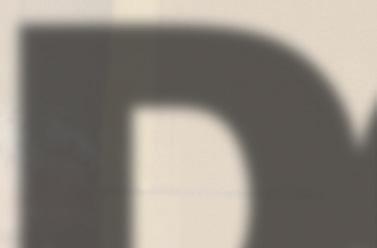
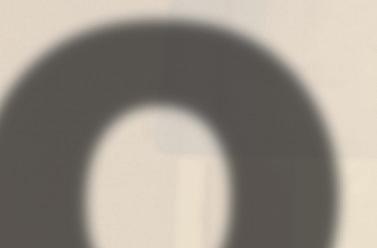

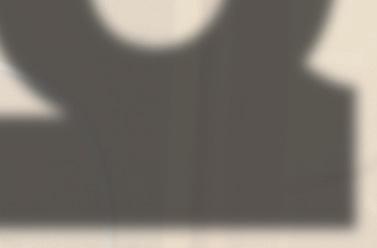
Features
ON LOCATION: The Tattooist of Auschwitz DQ heads to Bratislava, Slovakia, to see the making of Sky and Peacock’s adaptation of Heather Morris’s novel about a love story set against the horrors of a Nazi concentration camp.
SHOWRUNNERS: Stanislavs Tokalovs and Teodora Markova
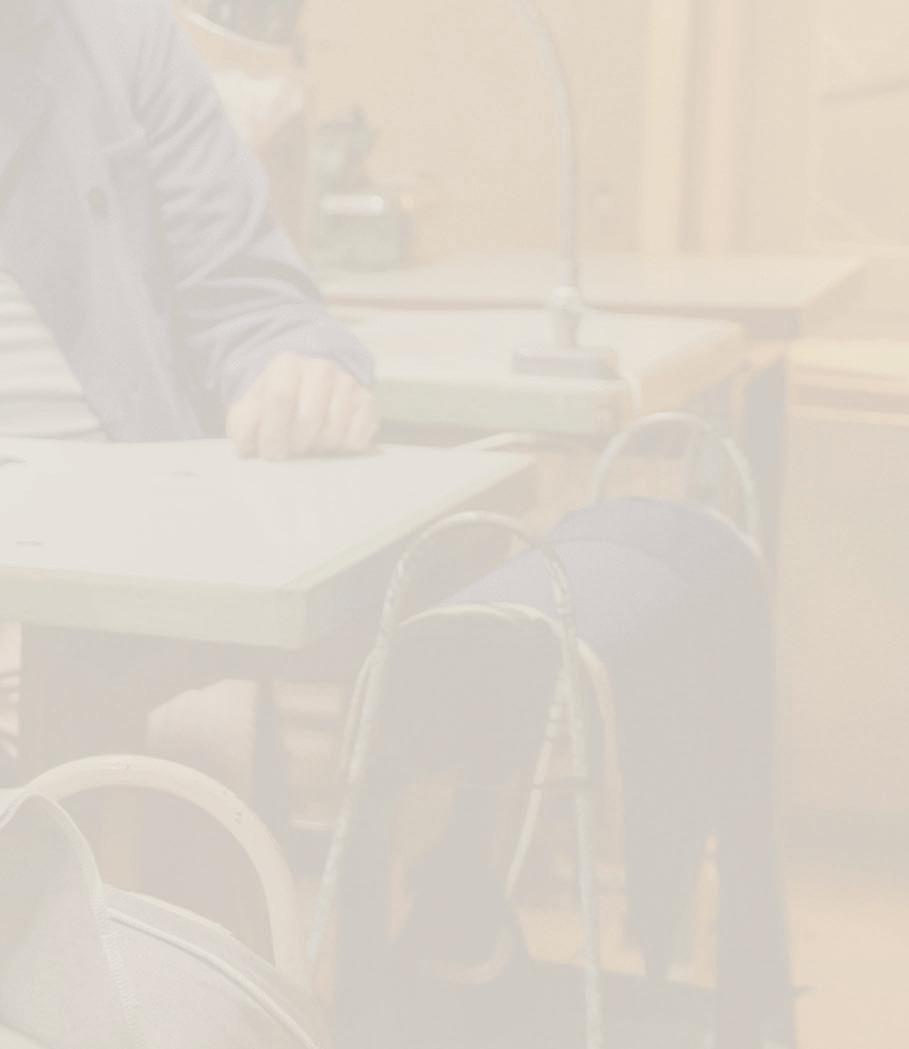
The duo behind Latvian comedy-drama Padomju džinsi (Soviet Jeans) discuss crossing borders with comedy for this story of a man who starts an illegal clothing line inside a psychiatric hospital.
IN FOCUS: Renegade Nell

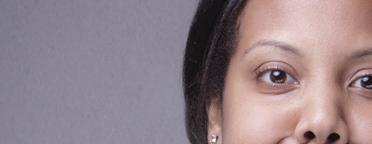










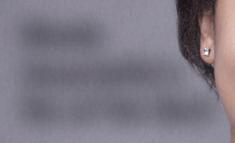









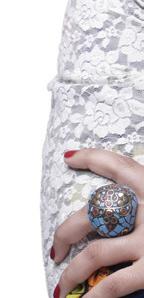
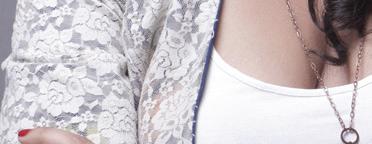

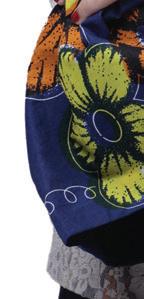
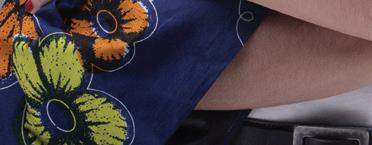

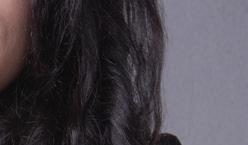


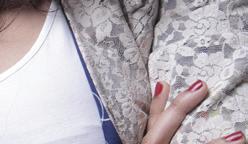

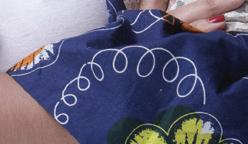
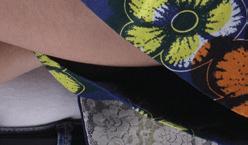


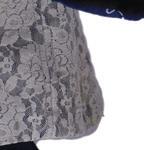





Star Louisa Harland and director Ben Taylor lift the lid on teaming up for Sally Wainwright’s latest show, which blends action and drama with humour and a sprinkling of magic.
WRITERS ROOM: Charlotte Coben
Coben has created her first original series in Prime Video’s comedic thriller Dead Hot. She talks blending humour with grief, filming in Liverpool and working with her author father Harlan.
IN FOCUS: Hotel Cocaine
Check in with showrunner Chris Brancato and director Guillermo Navarro to find out about this Miami-set drama in which a hotel manager is pitted in a war between federal agents and his drug-lord brother.
IN FOCUS: Kafka
Director David Schalko and writer Daniel Kehlmann join NDR head of fiction Christian Granderath and ORF head of features Klaus Lintschinger to reveal how they came together for this biopic of Franz Kafka.

DIRECTOR’S CHAIR: Damiano and Fabio D’Innocenzo

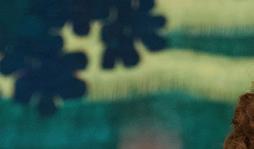


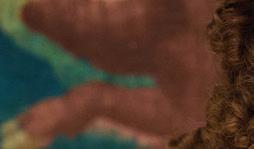



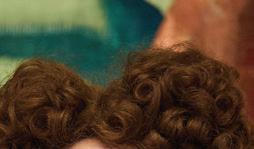

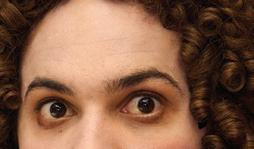





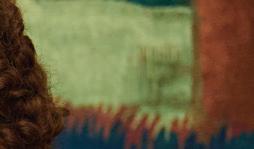
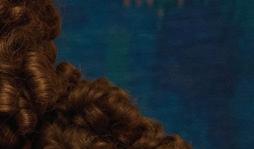

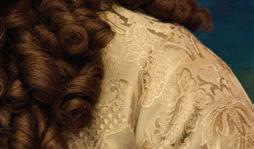





The twin brothers behind Dostoevskij, a police thriller about a detective hunting a serial killer, on their partnership and why they won’t tell viewers what to think.
SHOWRUNNER: Álvaro Carmona
Carmona takes DQ inside the making of The Déjate Ver (Show Yourself), in which the protagonist begins to disappear.
DQ100: Part One 2024/25
We pick out a range of shows to tune in for and the actors, directors and writers making them, as well as the trends and trailblazers worth catching up with.
End Credits

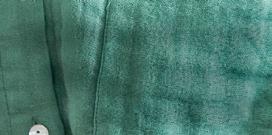
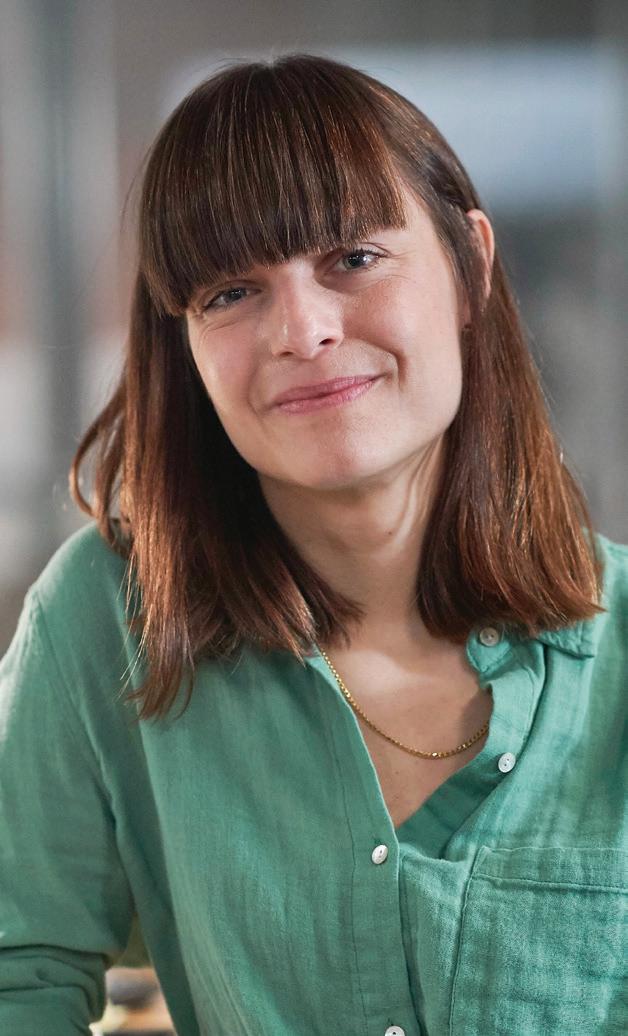



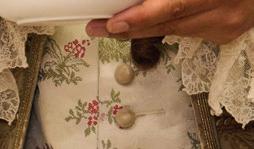
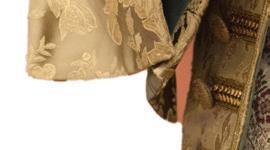


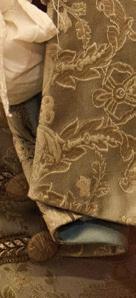


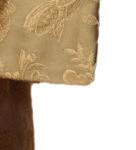

SCENE STEALERS: Catch Me a Killer


SIX OF THE BEST: Writer Nicole Amarteifio




FACT FILE: Song of the Sun God
DRAMATIC QUESTION: Taking risks post-Peak TV
Sewing together plot threads for Soviet Jeans
8 12 16
Writer Jenny Lund Madsen features in the DQ100
42
34
20 45 46 38 42 49 50 Spring 2024 24 28
DQ gets Dead
Hot with Charlotte Coben
Sally Wainwright’s Renegade Nell
16
Hope amid horror
DQ heads to Bratislava, Slovakia, to see the making of The Tattooist of Auschwitz, Sky and Peacock’s adaptation of Heather Morris’s novel inspired by a real love story set against the atrocities of a Nazi concentration camp during the Holocaust.

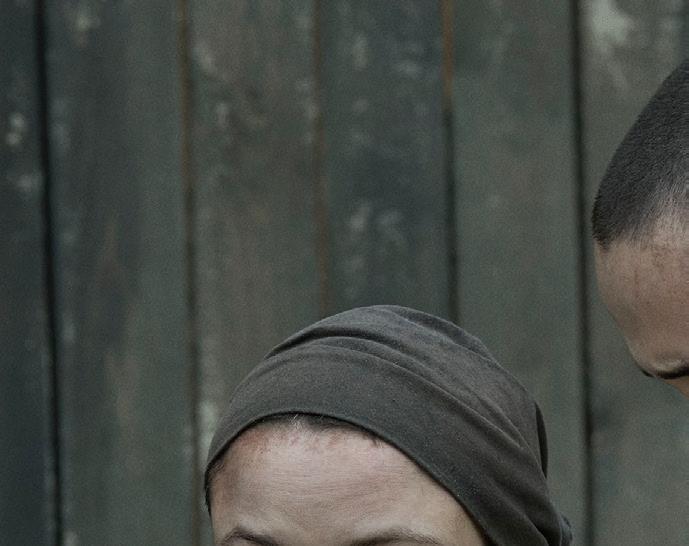


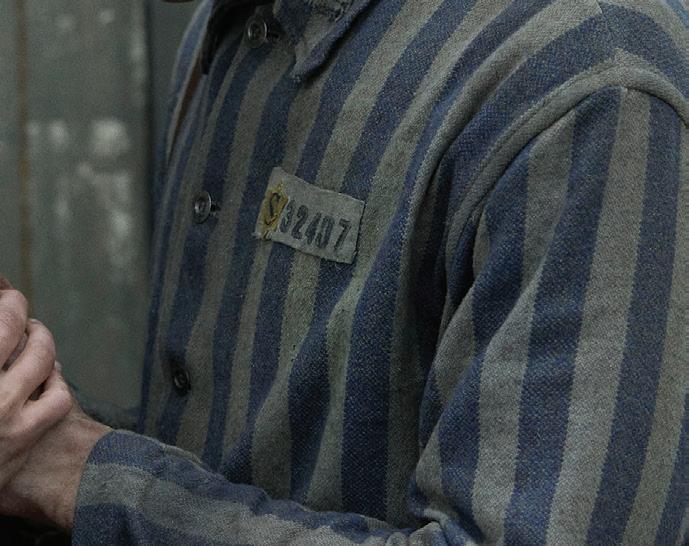


In a large field on the outskirts of Bratislava, the Slovakian capital, a number of large wooden huts have been built, surrounded by tall barbed wire fences and guard lookout towers. Beneath heavy rain and with thick mud under foot, it’s a foreboding setting, made all the more ominous by the fact that it stands in for Auschwitz, the location of one of the worst atrocities in history.
Around six million Jews were murdered by the Nazis throughout Europe during the Holocaust, culminating in the establishment of numerous death camps during the Second World War. But amid the unspeakable horror that took place at the largest one, Auschwitz, and at others like it, there were also examples of remarkable courage, bravery and resilience. It is one such story, a love story, that is retold in Sky and Peacock series The Tattooist of Auschwitz
Based on Heather Morris’s novel of the same name, the six-parter is inspired by the true story of Lali and Gita Sokolov, who met as prisoners at the same concentration camp.
ON LOCATION: The Tattooist of Auschwitz DQ . Spring 2024 8
Anna Próchniak and Jonah Hauer-King star as Gita and Lali
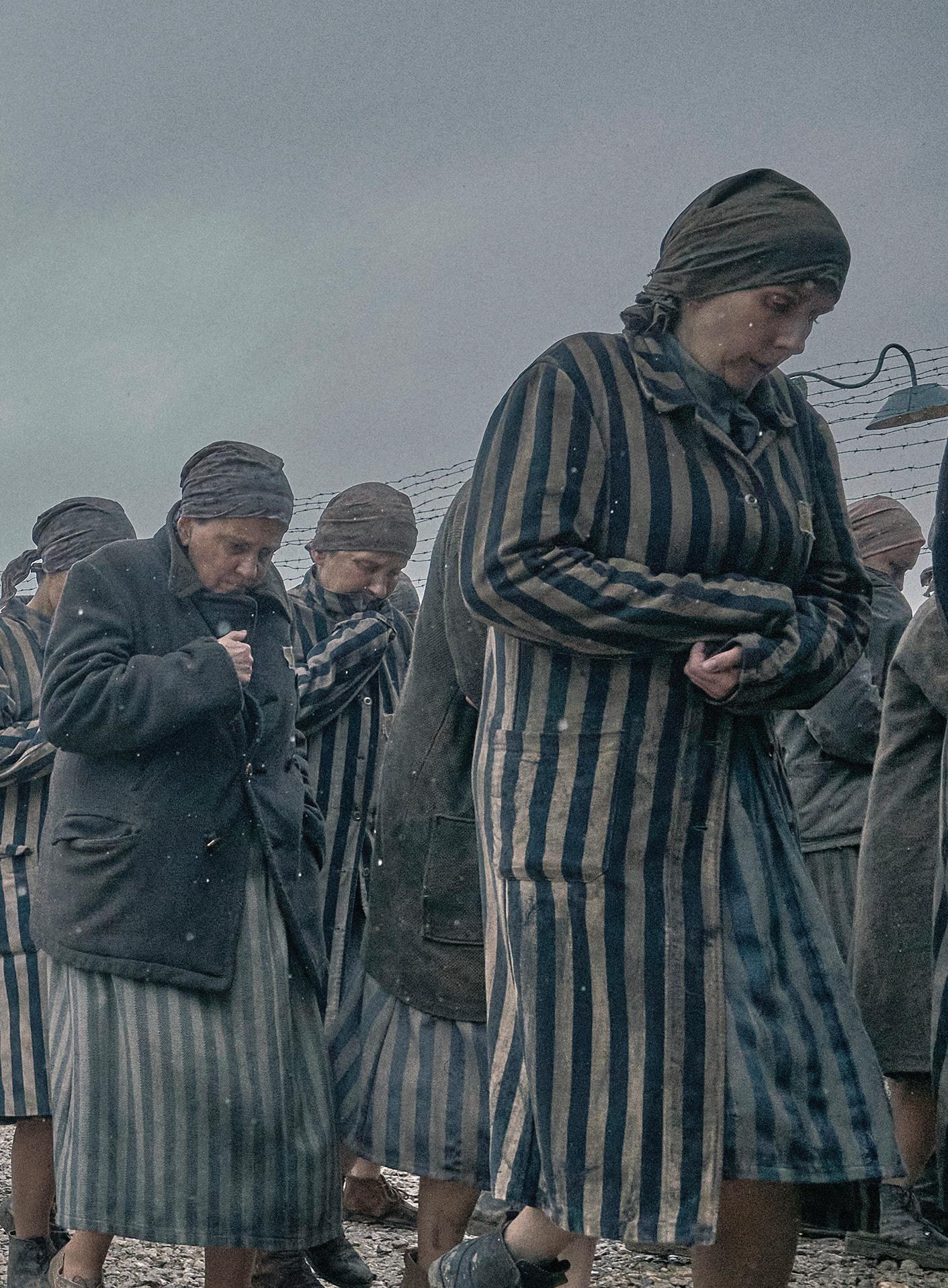
This is not a project you just put down. It’s an experience that stays with you. It really makes you think about the world and people and how you want to proceed with your life and what you want to achieve and fight for.
Championing the strength of the human spirit and the power of love and friendship, the series comes from Synchronicity Films, which has reteamed with The Cry screenwriter Jacquelin Perske to bring Morris’s novel – and Lali and Gita’s story – to the screen. NBCUniversal Global TV Distribution and All3Media International are jointly handling international sales of the series.
“I’m very drawn to stories that are based on real life, and it just struck us as such an extraordinary love story,” Synchronicity creative director and series executive producer Claire Mundell tells DQ. “I had never seen a love story told in a notorious, murderous death camp such as Auschwitz. It was so inspiring that two people could survive a place like that when so many others didn’t, but also that they could find each other and they could fall in love. In fact, they became each other’s survival, and that has inherent drama in it.
Stevie Herbert Production designer
“ ”
Lali (played by Jonah Hauer-King) is a Slovakian Jew, who in 1942 is deported to Auschwitz, where more than a million Jews were murdered during the Holocaust. Shortly after arrival, he is made one of the Tätowierer (tattooists), charged with inking identification numbers onto fellow prisoners’ arms.
One day, he meets Gita (Anna Próchniak) when tattooing her prisoner number on her arm, leading to a love that defies the horrors around them. And despite living under constant guard from volatile SS officer Stefan Baretzki (Jonas Nay), Lali and Gita become determined to keep each other alive.
Some 60 years later, Lali (Harvey Keitel), now in his 80s, meets aspiring writer Heather Morris (Melanie Lynskey), and the recent widower finds the courage to tell his story to the world. In recounting his past to Heather, Lali finally confronts the traumatic ghosts of his youth and relives his memories of falling in love in the darkest of places.
“But it’s also a specific story of trauma, of one man’s experience of what it was like to be there and what it took him to survive what he, Gita and so many others had to endure. The book continues to capture people’s hearts and inspire people, and great drama does that. It was a daunting challenge but I like a challenge.”
Australian writer Perske hadn’t read Morris’s novel until Mundell sent it to her. “I was interested in the epic nature of the story; the victory of love and hope in a very dark place in history,” she says. “I was also drawn to the fact that Lali Sokolov had lived in Melbourne and the writer was a New Zealand woman who had lived in Australia.”
The production team worked closely with Morris across development and production of the series – but first had long conversations about whether they should adapt her book at all. Did the world need another project set at this time, they wondered, and if so, how could they make this series di erent?
Perske, Mundell and script producer Ruth Underwood spent a lot of time with Morris, discussing her time with Lali. It was then
>
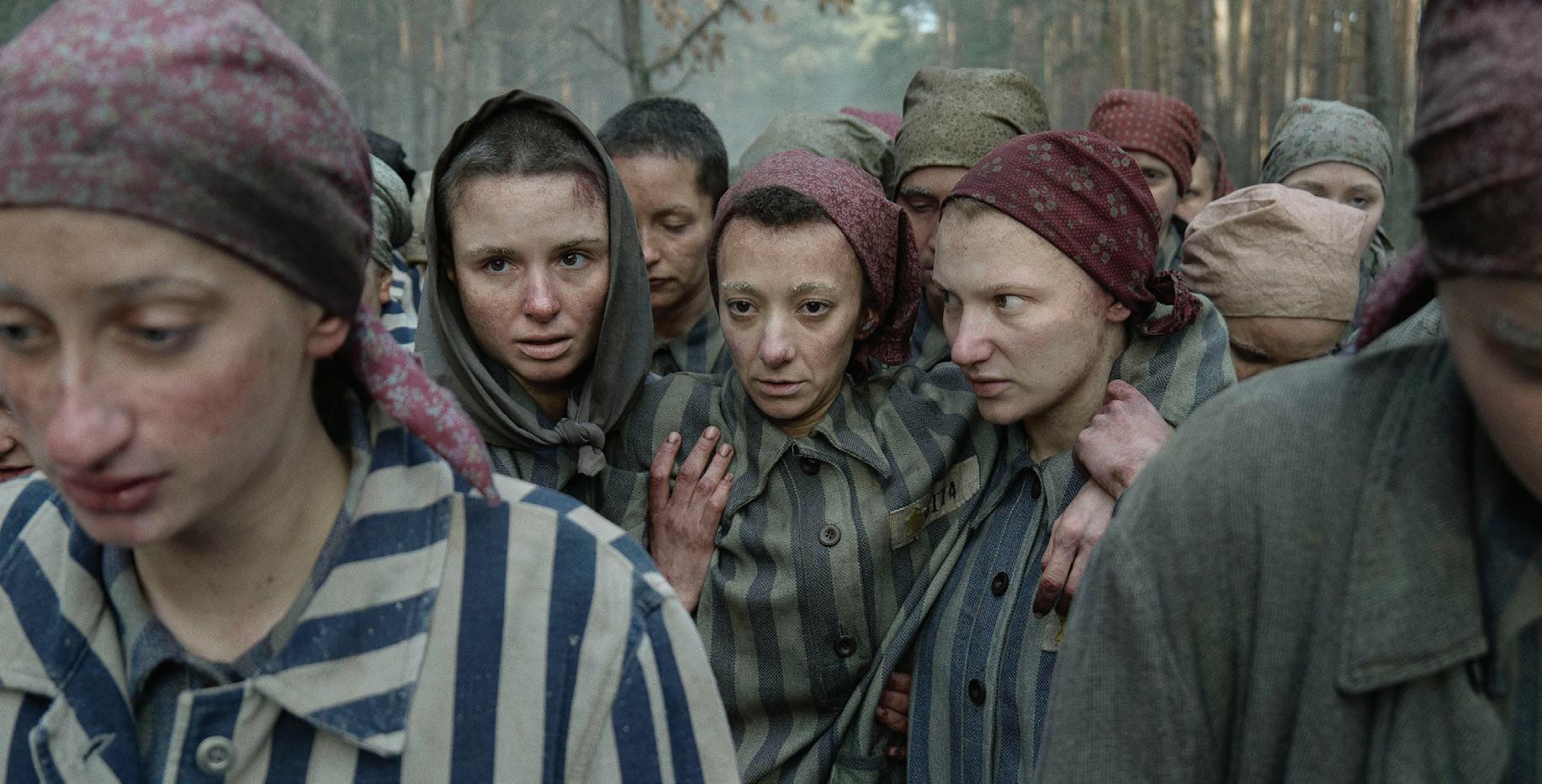
Hounsom’s daunting task
Among the vast number of roles undertaken by the crew of The Tattooist of Auschwitz, there won’t have been many more intimate or affecting tasks performed than those completed by hair and make-up designer Frances Hounsom (The Rising) and her team.
For the numbers inked on each character in the Auschwitz camp, Hounsom hand-drew 1,020 individual tattoos, which were then printed onto transfer paper and applied to every actor on every day of shooting.
Then for scenes where the tattooing is shown on camera, she worked with cultural advisor Naomi Gryn to find out how the process worked and what tools were used, and spoke to the actors about how it would happen. “It took a lot of practice and a lot of skill, but the actors did really well,” she says.
Cutting the hair of many of the actors proved to be particularly poignant. They were given the option to wear bald caps with wigs, or to have their hair cut for real – and many chose the latter option.
In total, eight main cast and 10 supporting actors had their real hair shaved off. Their hair has since been donated to the Little Princess Trust, a charity that provides realhair wigs to children and young people who have lost their hair through cancer treatment or other conditions.
Hounsom also designed and created a wig for Harvey Keitel, playing older Lali, which involved a wig piece and silicone bald plate, as well as a set of fake teeth.
In total, Hounsom and her team of two other UK artists and 10 Slovakian artists worked with 60 main cast and more than 1,000 background actors across the shoot.
“It’s something that will stay with me for the rest of my life,” she says. “I still meet up with the cast and we go for coffee, and I think we will forever, because it’s an experience you’ve been through together and it’s something that will always stay with me. It’s an honour to be a part of that project and to represent that time in some way and to show that story.”
< that Perske had the idea to use Morris and Lali’s meetings as a framing device for the adaptation, which opens with Keitel and Lynskey as older Lali and Heather, before flashing back to Lali’s time at Auschwitz.
“They are such an unlikely pair, another love story in fact,” the writer observes. “It was Heather’s patience and care that allowed him to finally tell his story. I thought their story and friendship was rich and interesting and, in a story about love, it made sense to include them.
Harvey Keitel plays the older Lali, who tells his story to Heather (Melanie Lynskey)

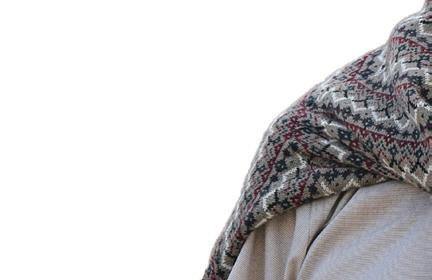
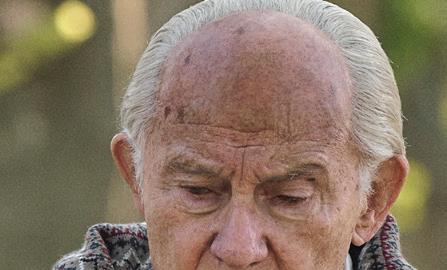

It also allowed me to tell the story of memory – how our memory of events can change over time, how traumatic events and experiences can become memories that return to haunt and harm you forever.”
“It seemed like in honouring Lali and Gita’s story, it was a way to honour Holocaust survivors in general by depicting the way Heather and his relationship played out,” Mundell says. “It’s an interesting structure and, of course, we were completely thrilled when we were able to cast Harvey Keitel in that role and Melanie Lynskey as Heather.”
When it came to the scripts, Perske first wrote an extended outline of what the episodes might look like. Then when Sky greenlit the project, she started writing the full script alongside two other writers, Gabbie Asher and Evan Placey.
Perske had to overcome many challenges during the writing process, including “telling a story that was honest and authentic within the bounds of storytelling; finding the balance between the love story and the reality of the camp; making sure characters based on real people were sensitive and inspired by reality while also needing to create characters that worked from the drama; managing the scale of the story; and balancing the past story with the present story.” She adds: “I wanted to build a world that was nuanced and explore human beings under the most deplorable circumstances – how do they respond?”
Lali and Gita’s story needed to be balanced with acknowledging where and how their relationship was formed within a notorious concentration camp. “So we also have a responsibility to make sure people understand the nature of that place,” Mundell says. “We’ve tried to depict that as much as we can within the confines of a television drama. We have to weigh up the environment versus the love story, but it’s the environment that makes the

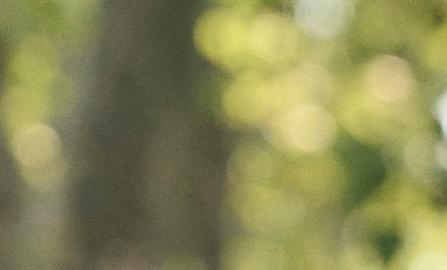
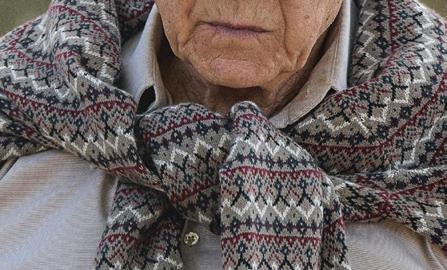
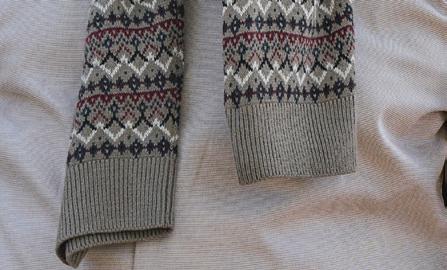
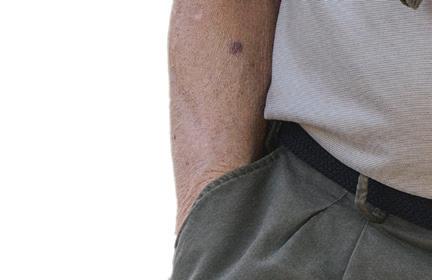

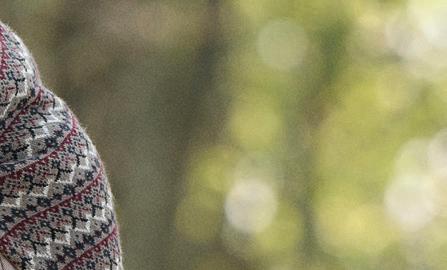
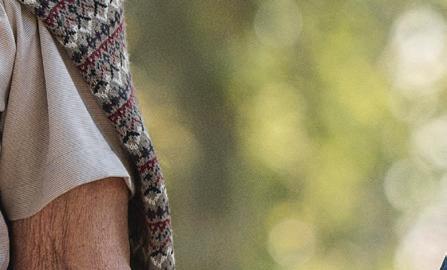
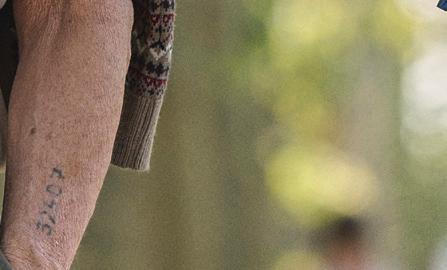

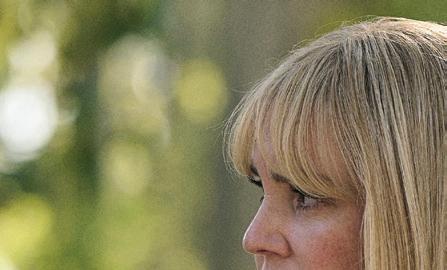
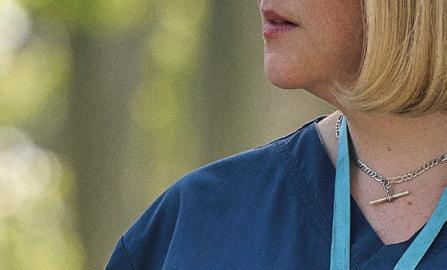
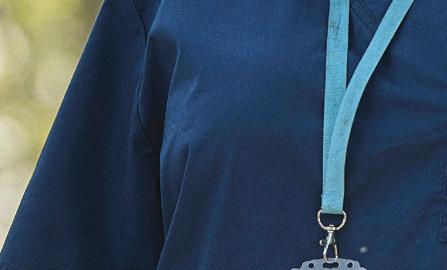

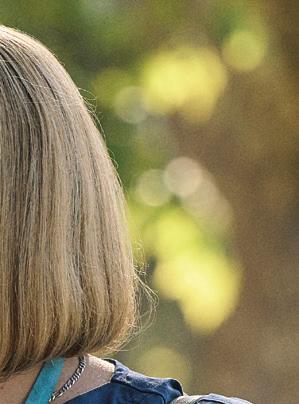

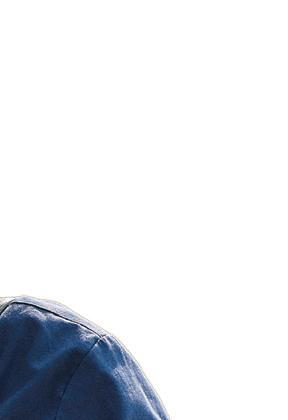
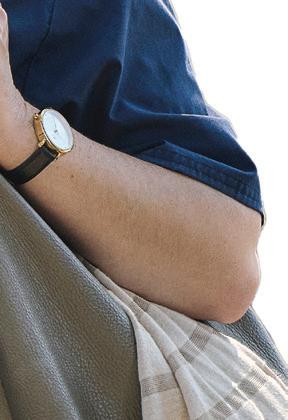
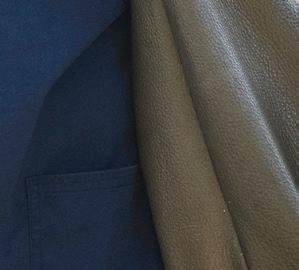
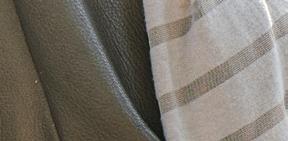
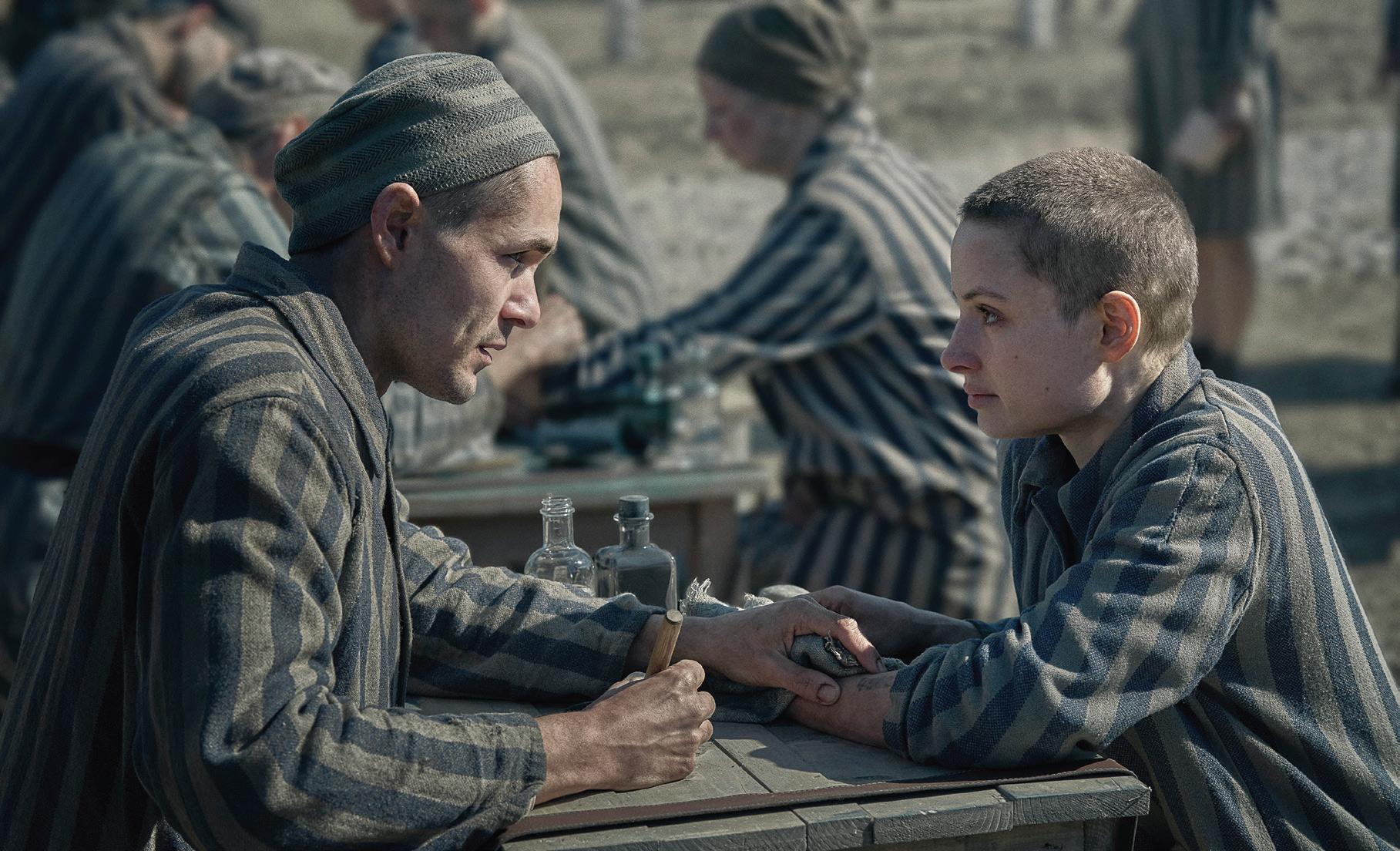
love story all the greater, because it’s an act of choice for Lali and Gita to be together in that place. It’s an act of defiance against the situation they are in.”
Perske notes: “This was a place where humanity failed, and its clear depiction was a priority for the whole team. Getting the balance right was very important.”
Across several sites in Bratislava, the camp was recreated with a combination of practical builds and set extensions using visual effects, which will make it appear many times bigger than the main camp set actually was. A nearby former sugar factory was also used for some elements of the camp, and is where the gates carrying the sign “Arbeit macht frei” (‘Work sets you free’), which prisoners walked beneath on arriving at Auschwitz, was recreated.
Throughout the 85-day shoot, authenticity was sought at every turn. The creative team – including director Tali Shalom-Ezer, production designer Stevie Herbert, visual effects supervising producer Alan Church and visual effects production supervisor Simon Giles – all visited the real Auschwitz camps and museums during the early stages of development to inform their work on the series, while they were supported by historical and Jewish cultural consultant Naomi Gryn.
“Auschwitz and Auschwitz-Birkenau, particularly the Birkenau part of the camp, is vast; it’s huge. But we did decide we would recreate our smaller version of the set in the same general layout, so we were looking for a field with particular features to it and where the sun rose and set in the same way to mimic the layout of the camp,” Mundell says. “We knew what the component parts were that we had to build, but it was a daunting prospect to be doing that in December and January before a shoot that started in mid-February [2023].”
Trucks carrying mobile green screens were positioned around the perimeter of the camp set so the backgrounds could be digitally extended in post-production, while it was constructed
in such a way that sections could be shot from different angles to play different roles in the drama, such as the men’s and women’s parts of the camps.
“It was a massive undertaking and I’m in awe of Stevie and Pilar [Foy, supervising art director] and the construction team and what they achieved,” Mundell says. “It was truly incredible to watch, and super inspiring.”
Herbert had read Morris’s novel, so she knew what her task would entail when she signed up. “But I didn’t come to it raw,” she says. Her father had told her of his time doing national service outside Belsen, another concentration camp, while she has also been to the Treblinka camp herself. “I just felt [the series] was something I had to do. I couldn’t turn away from it,” she says. “I met a Holocaust survivor in Australia in 2006, Olga Horak, and one of the things you come across constantly is the survivors need to tell their story. They want to be remembered. It’s an essential history that we should all know about, because it’s about all of us.”
Despite some talks about filming the Australian sections of the series down under, those scenes ended up being performed on built sets. “But we knew we had to build the camp. We knew we had to build the Auschwitz gate. It’s 80, 90% built,” Herbert says. “When we were deciding what to build, it was phenomenally difficult. We were in the office with the writers, with the scripts, travelling Lali’s journeys through the camp. We had a giant map of all of the huts and the barracks and the buildings, and we literally tracked him. But when we solved one problem, it would give us another.”
With so much of the set to be extended digitally, Herbert ( The Long Song , The Durrells ) says her partnership with the VFX team on The Tattooist of Auschwitz was more personal than on any other project she has worked on.
“Their office was just down the hall and it was a constant conversation,” she says. “There were big set pieces we talked through, but it’s not just about the physicality. You’re not just
saying, ‘These buildings do this.’ You talk about the emotion of the piece and what you’re trying to achieve.”
Working with her team in Slovakia, Herbert faced the traditional challenges of time and budget. But like many of the creatives on the series – a group that also includes Oscar winner Hans Zimmer and Kara Talve, who scored the soundtrack – she says the experience of making the show brought them closer together, and the job continues to unite them. Synchronicity has also made counselling services available to any cast or crew members who might want to access them after dealing with the difficult subject matter contained in the series.
“As creatives, our work stays with us a lot of the time,” Herbert adds. “This is not a project you just put down. It’s an experience that stays with you. It really makes you think about the world and people and how you want to proceed with your life and what you want to achieve and fight for.”
When The Tattooist of Auschwitz debuts on May 2 – it will launch on Sky Atlantic and streaming service NOW in the UK and Ireland, Italy, Germany, Austria and Switzerland, Peacock in the US and Stan in Australia, as well as on SkyShowtime across Europe – Mundell hopes the show’s central theme, that love can be found in dark places, resonates with viewers around the world.
“Hopefully people will be moved by the emotion of it. They’ll be moved by two people who found each other, and who had to endure what they did as so many other people did and so many people did not because of how many perished there,” she says. “But I hope the audience will see the perils of intolerance and antisemitism and choose tolerance and love instead of hate. That’s partly why the book is so successful. There’s a very pure message at its heart, which is inspiring on so many levels.”
ON LOCATION: The Tattooist of Auschwitz DQ . Spring 2024 11 DQ
Lali meets Gita for the first time when he tattoos her arm
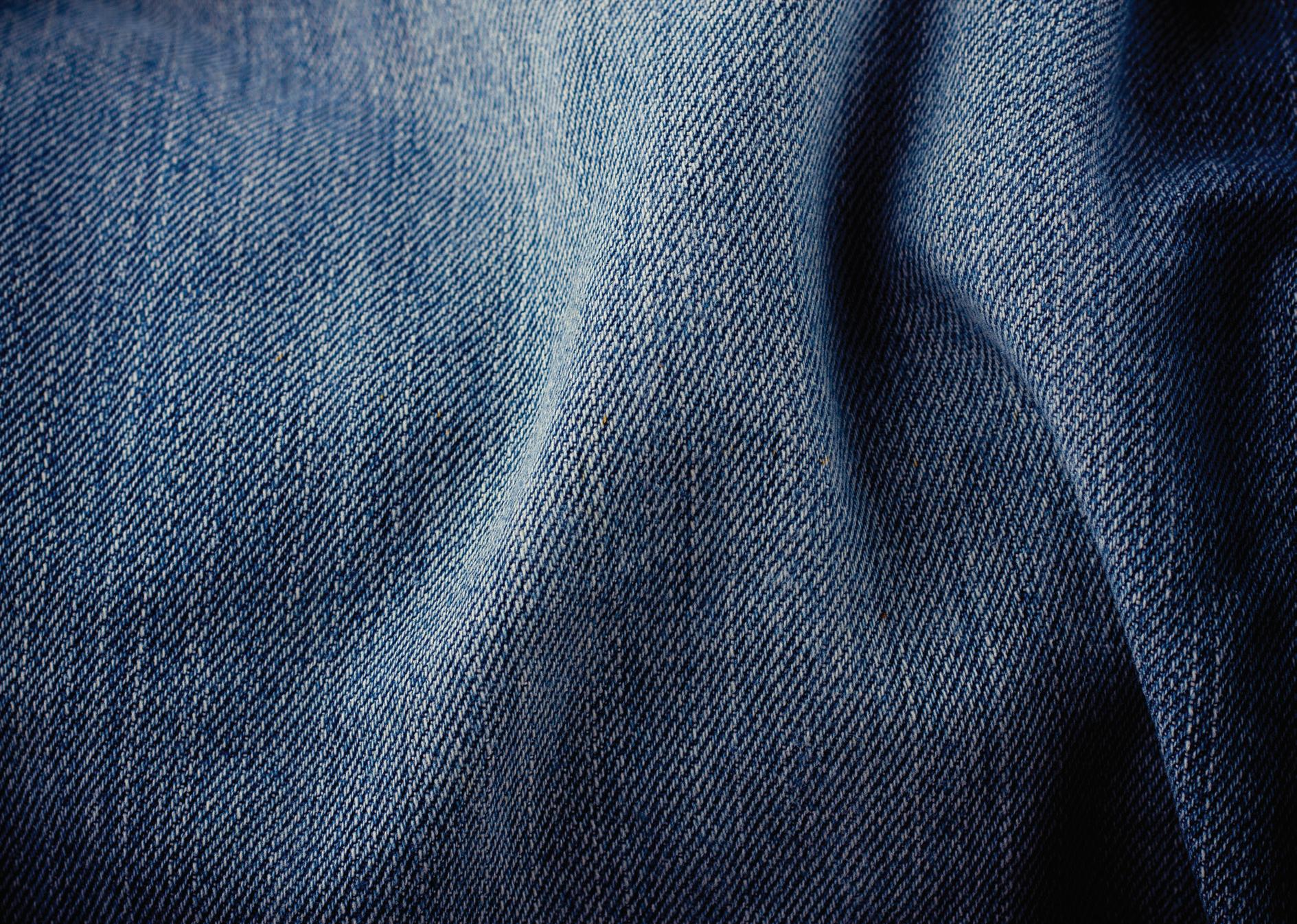

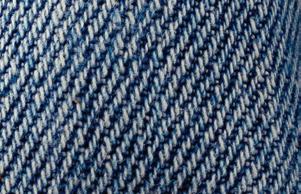
Latvian comedy-drama Padomju dzinsi (Soviet Jeans) now takes that idea and runs with it, telling the story of a young rock music fan, Renars Rubenis (Karlis Arnolds Avots), who is sent to a psychiatric hospital for political reasons – and begins illegally producing US-style jeans with his inmates. But as Renars floods the black market with his new clothing line, the KGB sets about trying to discover the people behind the business.
An eight-part series set in Latvia’s capital, Riga, in the late 1970s, the show takes its cue from true stories from the time to blend absurdist humour with drama and a love story. Showrunners Stanislavs Tokalovs (What Nobody Can See) and Teodora Markova (Under Cover) wrote the series with Waldemar Kalinowski (What Nobody Can See), while Tokalovs also directs with Juris Kursietis (Modris).
“It was our primary goal to make the series international, and the second thing was to try to explore this period in a different tone,” Markova tells DQ in Berlin, where Soviet Jeans was screened during the Berlinale Series Market ahead of its international premiere at Series Mania in Lille. “The theme is really absurd because we have the jeans and the rock ‘n’ roll
culture wasn’t about nuclear weapons or spies, it was about a pair of pants, so we decided to take this absurdity and try to project it over every situation and detail.
“Most of these asylums were used for political prisoners, and at some point you start thinking that all the people there are perfectly healthy and sane. We were trying to research how the normality is inside the mental institution while the craziness is outside, because the world is crazy.”
Tokalovs picks up: “For people who haven’t experienced the Soviet Union or, like Latvia, occupation by the Soviet Union, it’s very hard to imagine the atrocities, but grounding the tone allows you to be truthful. Then the humour can rise. First of all, you need to trust the story. Only then can you have fun with it.”
The project’s origins stretch back about 10 years, when Tokalovs found inspiration in stories of people who attempted to escape Soviet rule, only to be caught and adjudged by courts to be “crazy,” he says. In one case, an individual was admitted to a psychiatric asylum where illegal goods were being produced in secret.
Tokalovs pitched his story idea to producers, and partnered with co-writer and co-showrunner Markova after they met on a Scripteast course for screenwriters from Central and Eastern Europe. But Markova initially turned him down. “I liked the idea but I had no time,” she says. “It was on the second call I agreed.”
“I was running around with ideas,” Tokalovs says. “But when Teodora came on, she said, ‘Listen guys, what the hell? >
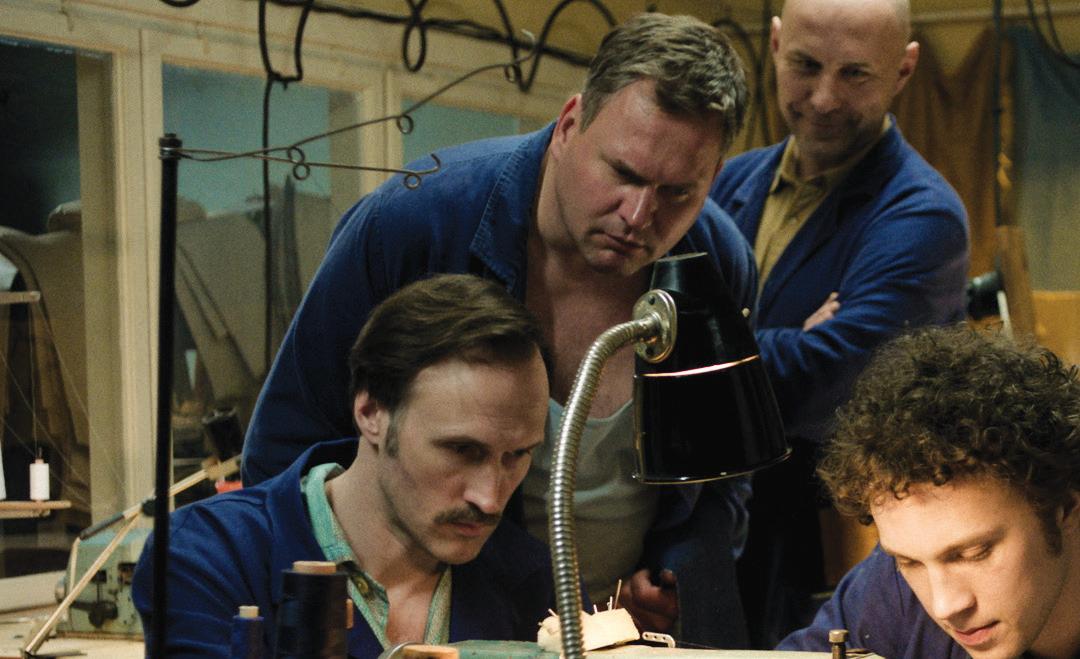




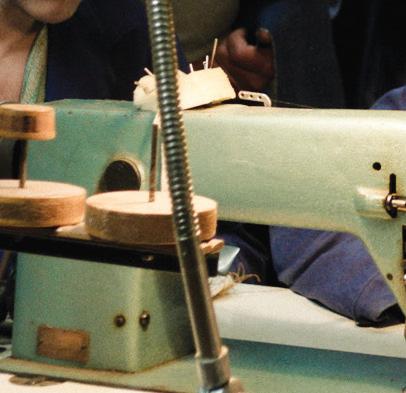
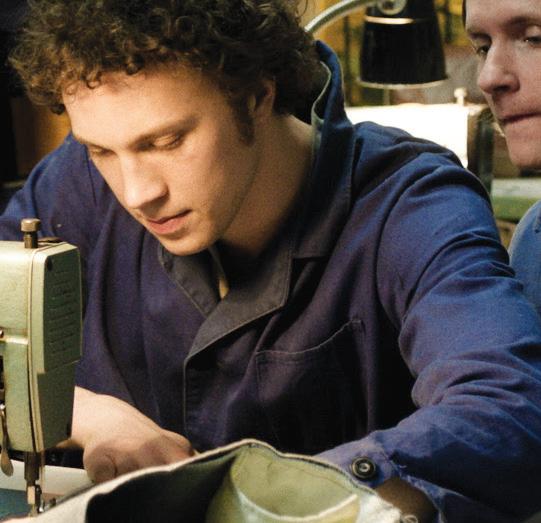
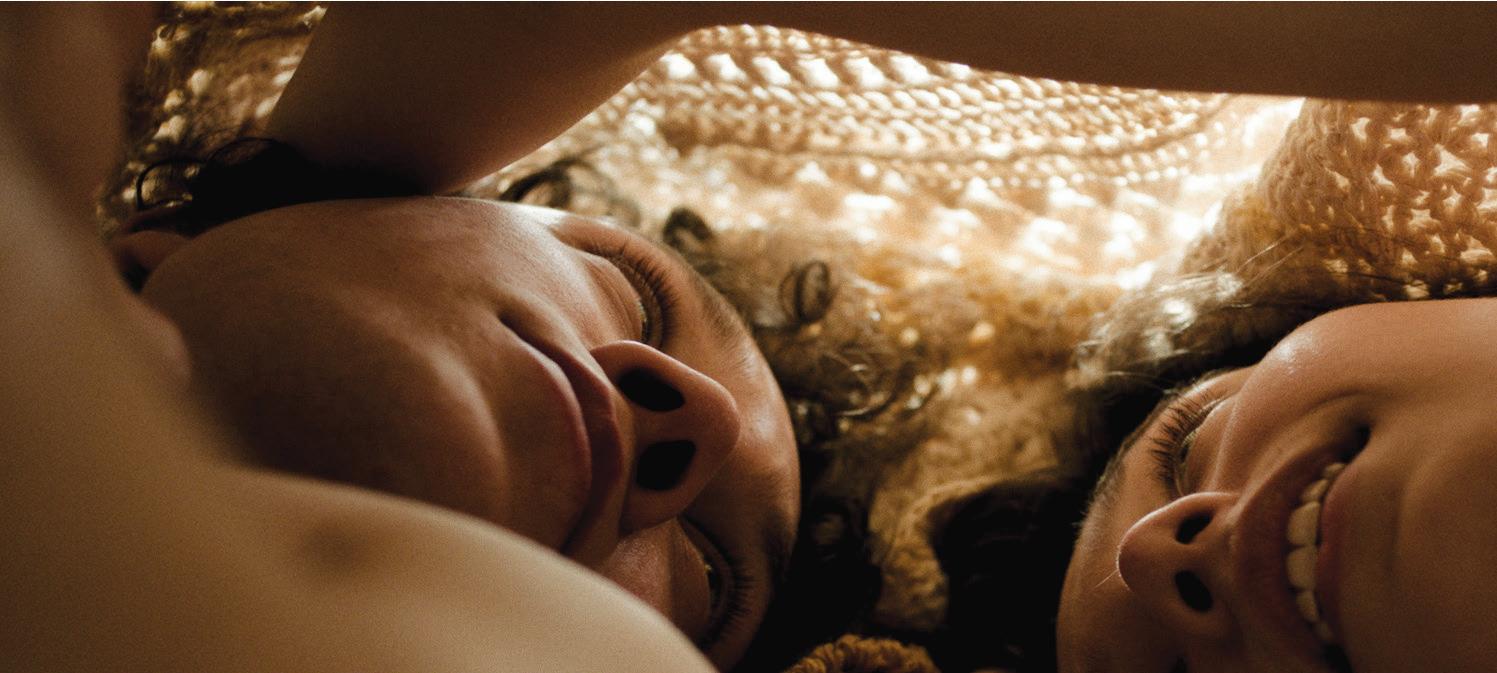


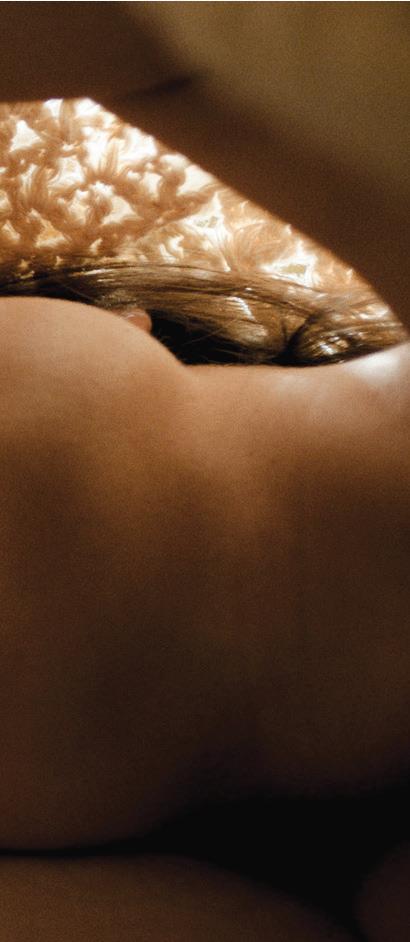




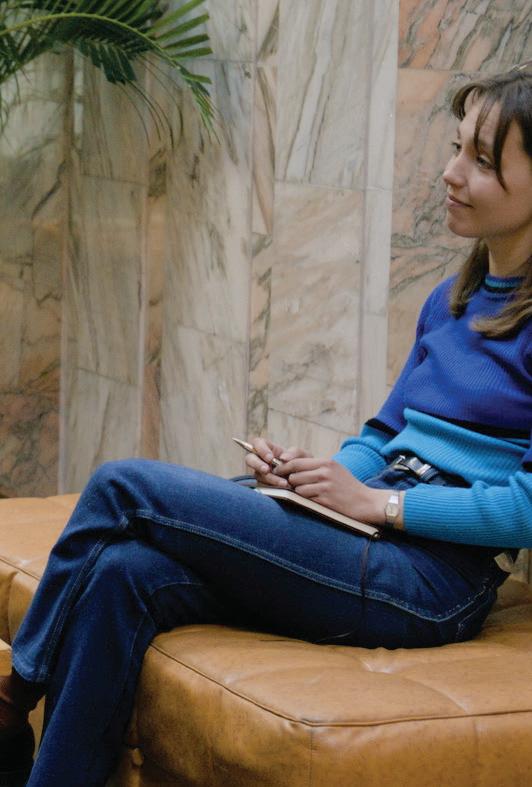
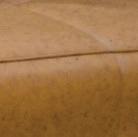

SHOWRUNNERS: Stanislavs Tokalovs and Teodora Markova DQ . Spring 2024 13
In the show, Renars (Karlis Arnolds Avots) is sent to a psychiatric hospital, leaving his girlfriend Tina (Aamu Milonoff) on the outside


< This is the best idea by far, let’s just work on this.’ It was the one about jeans produced in a mental asylum, but it needed additional work on the main conflict and the character’s journey.”
Mapping out the story together, they worked over numerous Zoom calls as development ran into the Covid lockdowns. “Teodora brings the structure to writing with all of her experience. My process is a little bit more suited to feature films, where I just sit and dwell on my writer’s block and the meaning of life,” Tokalovs jokes. “Teodora is more structured in the writing and brought good structure to the work.”
However, that structure meant that the moment described in the show’s premise – where Renars begins his denim production line – doesn’t occur until episode two. Furthermore, it’s not until the conclusion of episode one that he is whisked away by hospital staff, but that gave the writers the chance to establish the trickster Renars and his theatre group, where he meets and falls for Finnish actress Tina (Aamu Milonoff).
“We wanted to have more time with the love story before they get separated,” Markova explains. “To believe this love story and for it to become really powerful, and to trust Tina is going to stay and work with the gang to save him, we needed space to develop it, and we needed the viewers to want very much for them to be together and for the separation to be painful. In the first draft, we tried to build the setup into the first episode, but it didn’t work. It was very superficial.”
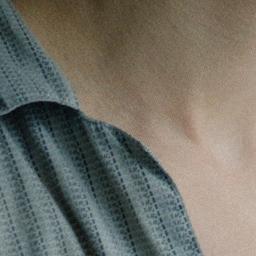
the currency is usually booze or cigarettes. For our asylum, it was toilet paper, because they had to use newspaper, so trying to find these very specific elements helped us.”
Once Renars enters the medical facility, the story explores how his incarceration turns a trickster and a scammer into a rebel. “It’s the system,” says Markova. “It tries to put him down, but it has the opposite effect.”
With Tina on the outside, the couple also become a target for KGB agents, who hope that Tina might reveal too much about Renars’ jeans operation.
“When Renars goes into the psychiatric institute, there are two clear choices for Tina – go away or stay – and she makes the decision to stay and fight,” Tokalovs says. “You see in the series how the fight happens.”
When it came to shooting, Tokalovs and Kursietis were confident there would be plenty of period-appropriate backdrops to film against, with Latvia under Soviet occupation for around 50 years until the early 1990s
“But it turns out the world is changing very quickly and actually there are not a lot of suitable places, so it was much harder to find something,” Tokalovs says. “Of course, the casting and acting for Juris and me is the most important, and we really devoted time to rehearsing. This is the only way the show can become international, because the level of acting needs to be on par with big shows from Europe and America, where the acting is usually brilliant.
At the time, propaganda against Western culture wasn’t about nuclear weapons or spies, it was about a pair of pants, so we decided to take this absurdity and try to project it over every situation and detail.
“Coming from this small Eastern European country with a big theatre background, which sometimes really overcooks the acting, the actors need all your attention and time to free themselves from what they think they should do for it to be good. This was the main goal, and it always is when making a film from my country.”
Some locations that do feature in the series include the Laima Clock and the nearby Freedom Monument in central Riga, an area that used to be home to trolley buses but is now pedestrianised.

The realisation that the love story was the “backbone” of the series was key to working out how the rest of the drama would unfold. “Before that, we tried playing around with when the hospital is introduced, and it became clear the characters would have to be built up for a full episode,” Tokalovs says.













Teodora Markova characters would communism.”
“It was also to establish the arena,” Markova adds, “because it might be quite unknown for viewers who come from different countries or for younger viewers who know nothing about communism.”
The pair conducted an “enormous” amount of research that fed into the KGB side of the story, as well as the asylum scenes and events within the theatre group – an approach that resonated with their ambition for the series to be truthful and authentic at every pass. Tokalovs’ co-director Kursietis was also an active part of this process, helping to localise the drama in its setting and further supporting the writing process with cowriter Kalinowski.



“We avoided explanatory scenes,” Markova says, “and right from the start, we are into the action, using details as tools to tell the story. We also decided to avoid all kinds of generic information we have seen from other shows or films. For example, in prisons,


“On the last shooting day, our base was at the monument. We had the whole square to ourselves with cars and some stuff. I thought, ‘What a cool place to have the last shooting day,’ because it connects everything. Here is the freedom the show is talking about,” says Tokalovs, who also chose to use a “free and active” camera style to film the series. “It’s different from the classic period piece shows. It brings air to it, combined with the writing and the possibility of the humour.”
Produced by Tasse Film and co-financed by Go3 and TV3, Soviet Denim debuted locally in cinemas – split into three parts – ahead of arriving on television later this spring. Beta Film is handling world sales.
Tokalovs credits Markova with bringing an international flavour to a show that is already a festival favourite. “Having Teodora is the reason. If we’d stayed inside our local bubble, it would have been darker with less humour,” he says.
“Waldemar is born in Poland and lives in US, I’m from Bulgaria and [Tokalovs] is from Latvia,” Markova adds, “so people ask, ‘How are you trying to do comedy that travels? It’s impossible, everyone laughs at different things.’ But this was best for the show because if the three of us found something funny, that meant it had a chance to be understood by an international audience.”
SHOWRUNNERS: Stanislavs Tokalovs and Teodora Markova DQ . Spring 2024 14 DQ
“ ”
The story is inspired by real events from Soviet-era Latvia

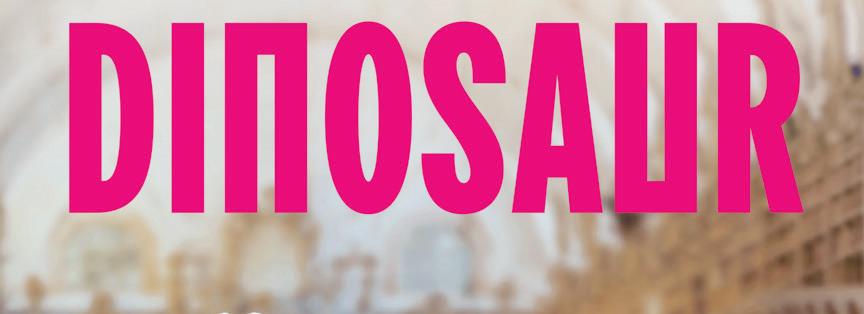
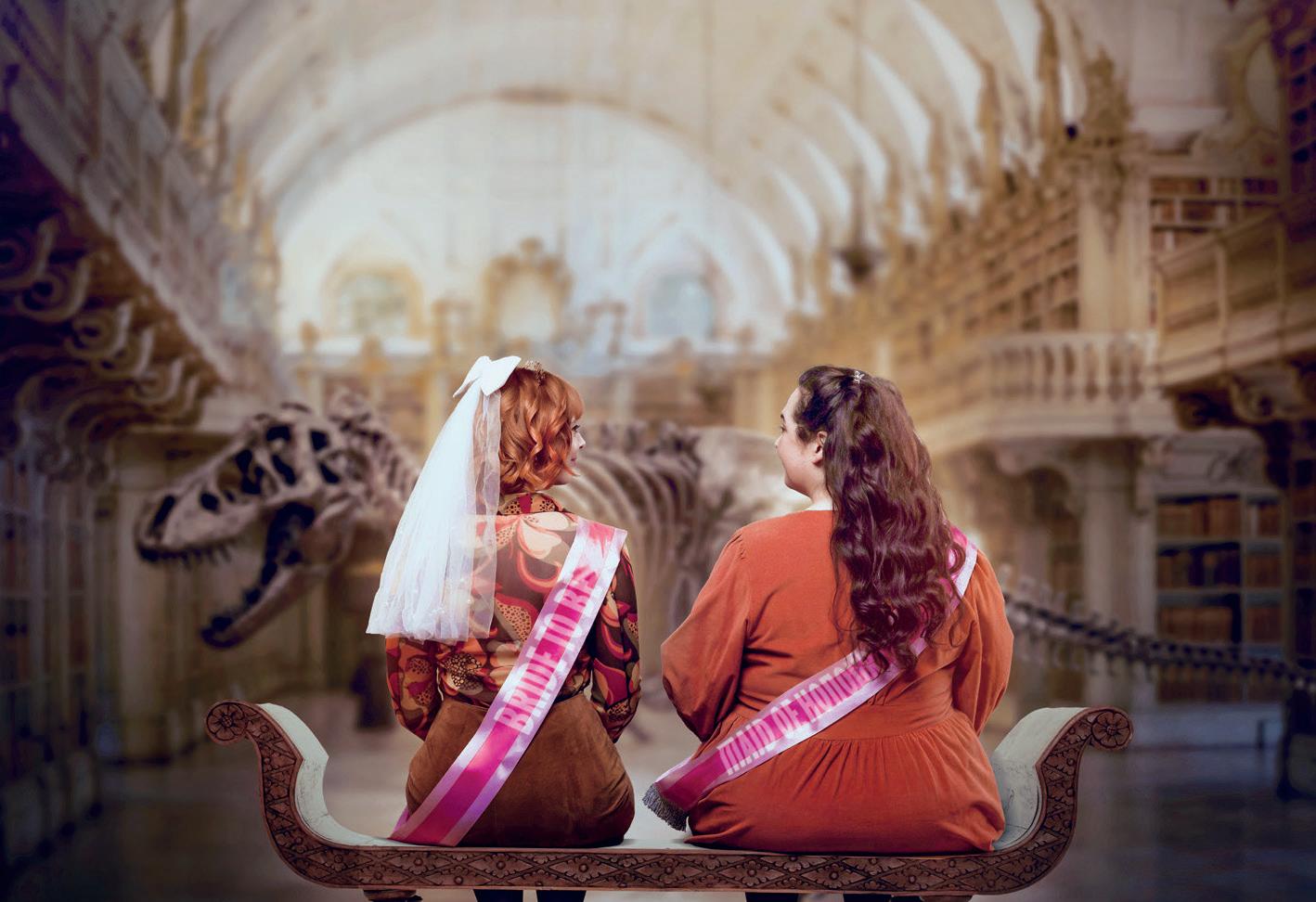

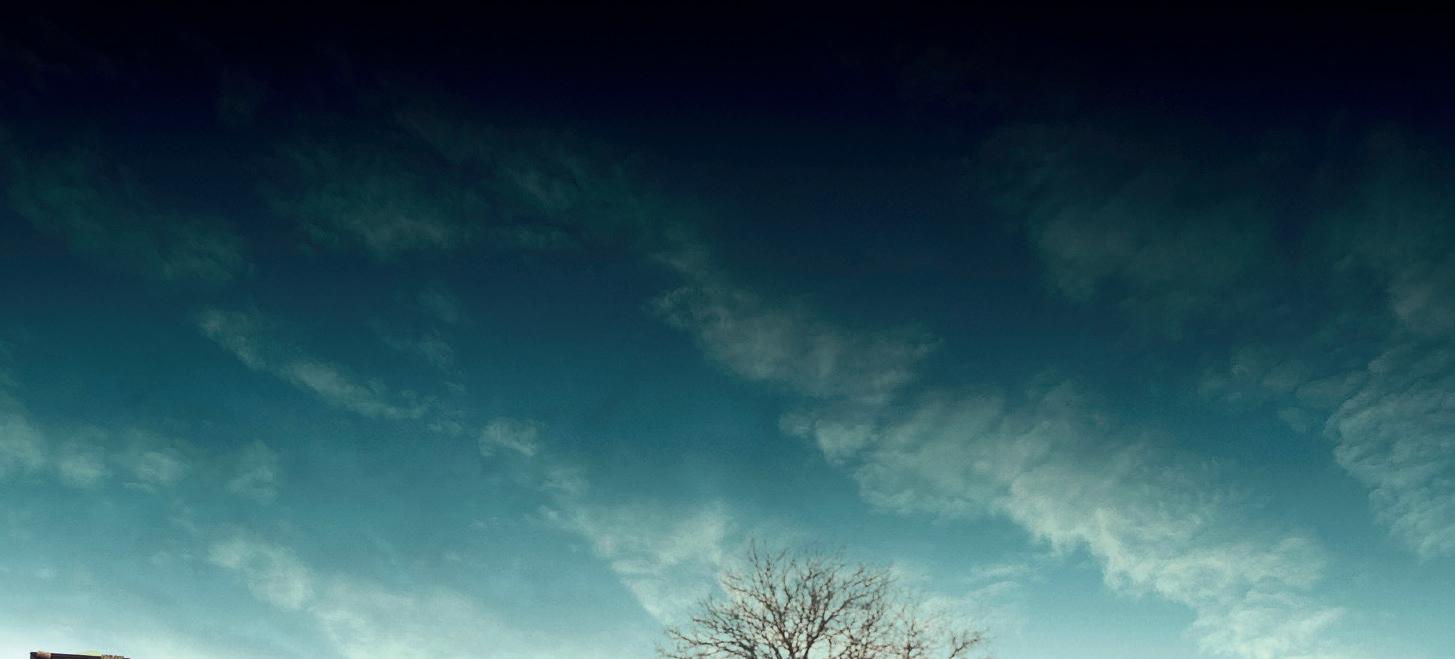

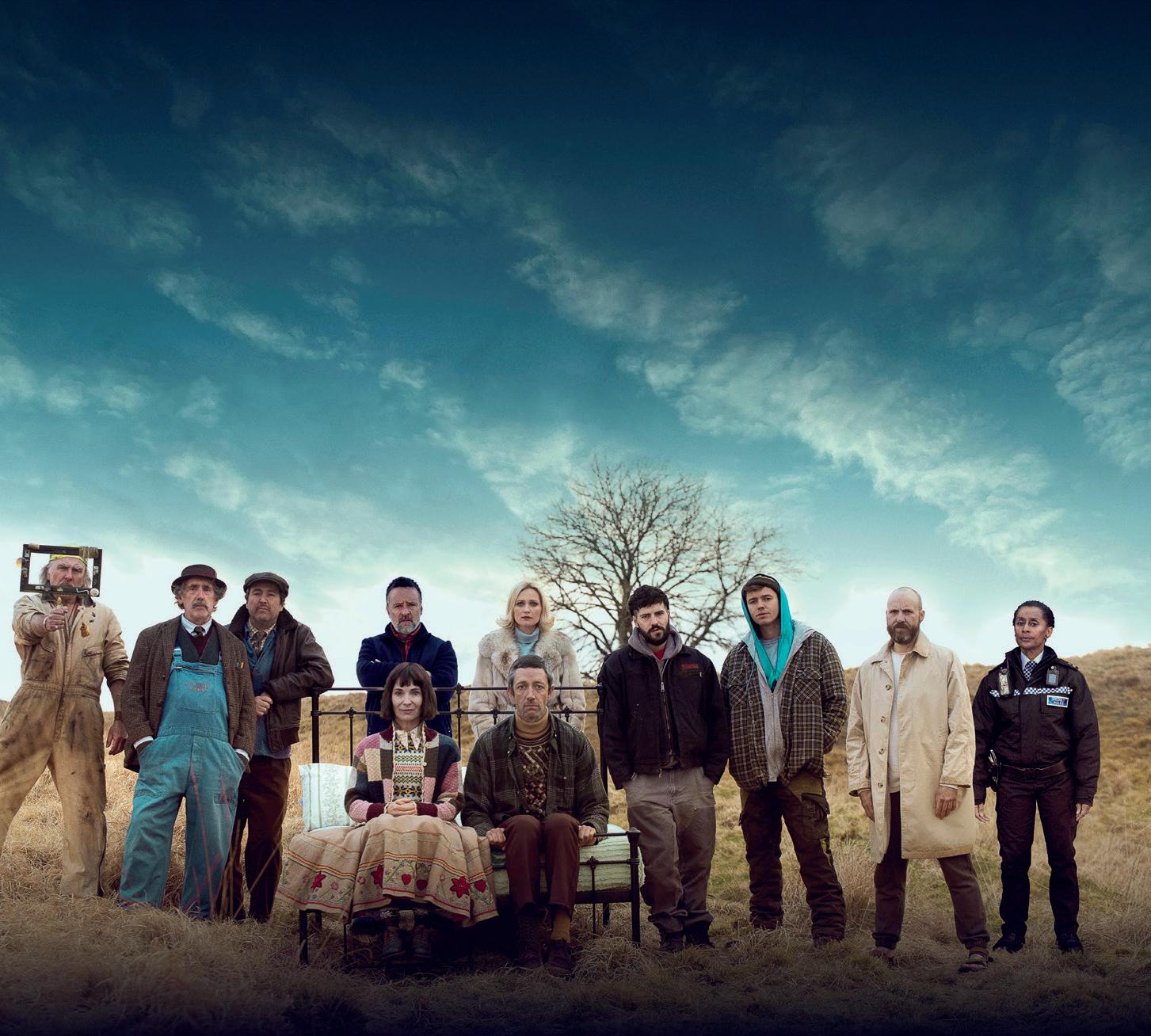



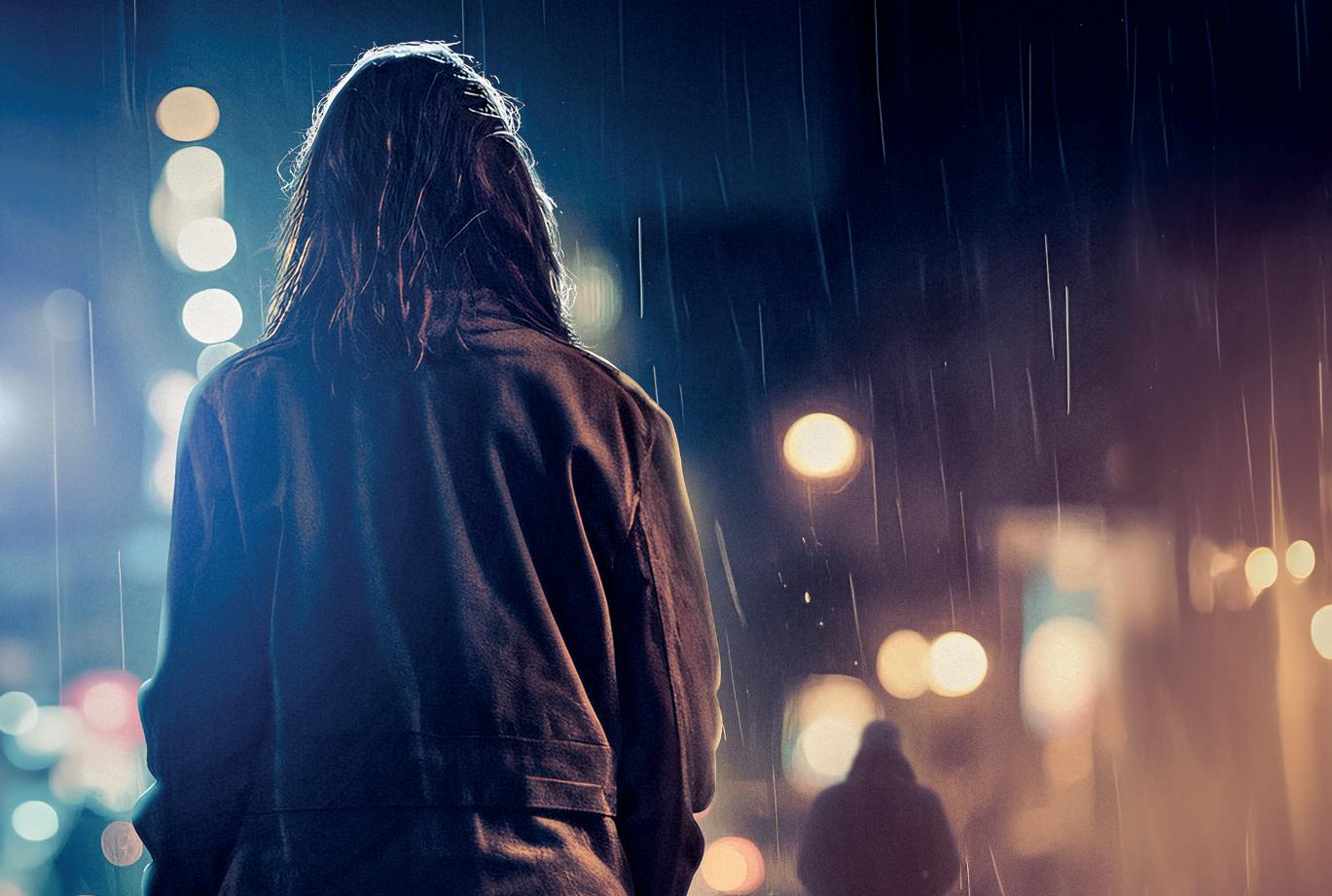
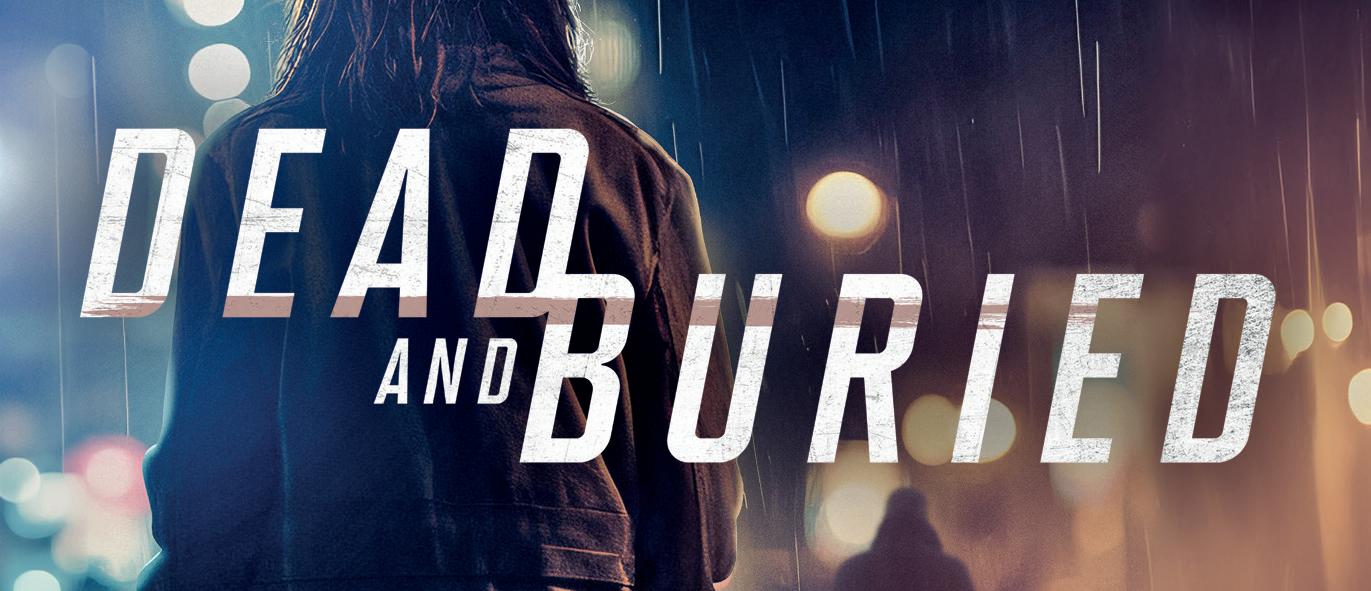
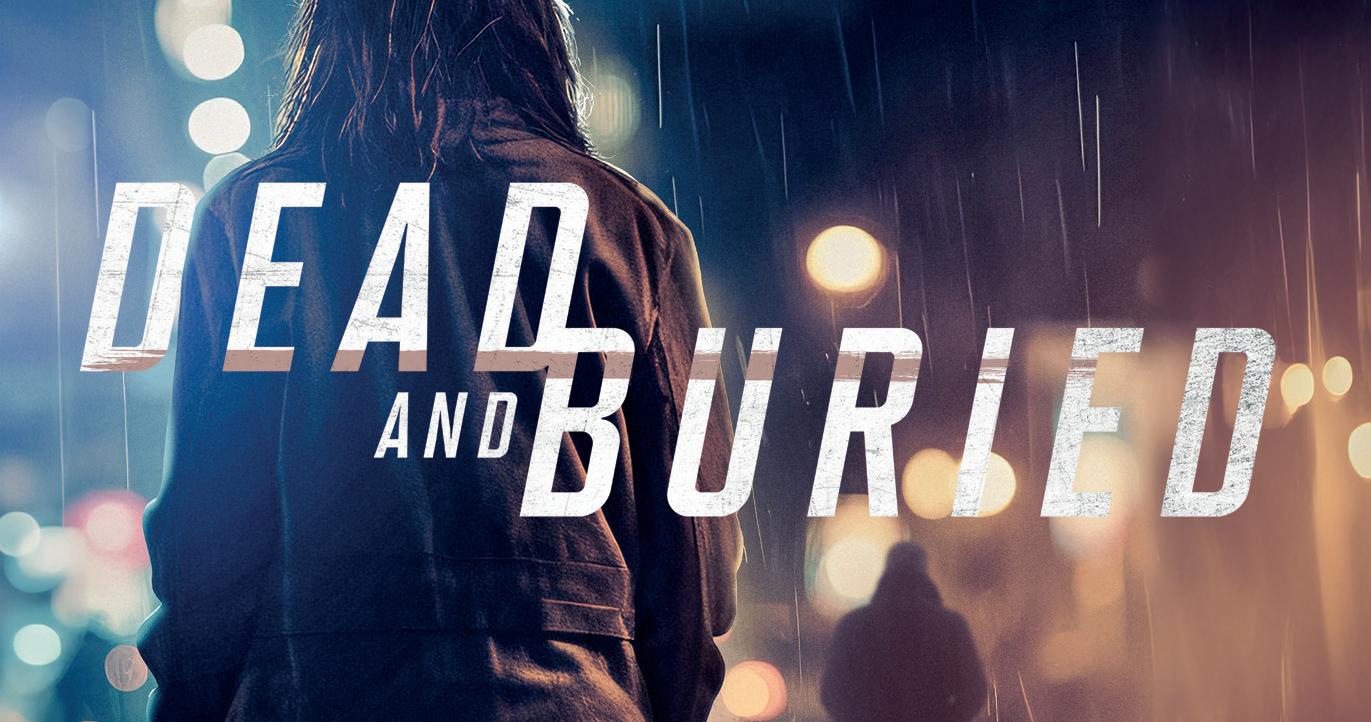




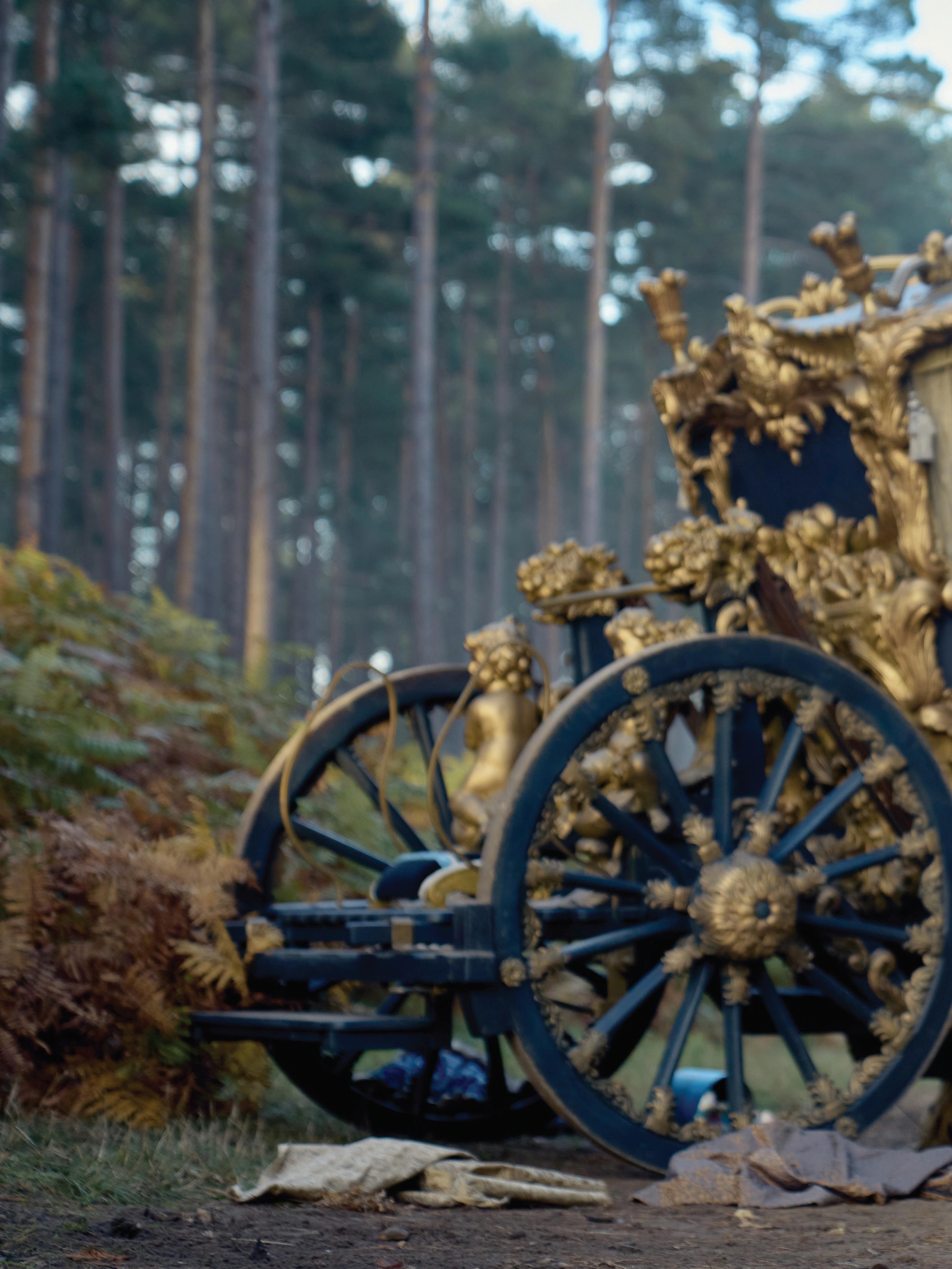
NELL SAVED by the
From crime dramas Happy Valley and Scott & Bailey to period series Gentleman Jack and comedy-tinged Last Tango in Halifax , award-winning writer Sally Wainwright isn’t afraid to jump between genres. But for her latest series, Renegade Nell , she’s breaking the boundaries of action, drama, comedy and fantasy to tell the story of an 18th century highwaywoman.
“I am a long-standing Sally Wainwright mega-fan, so when I got pitched this project with a top-line elevator pitch of ‘period highwaywoman with superpowers, action-fantasy for Disney,’ and it’s written by Sally Wainwright, that combination of words was so extraordinary that I was just desperate to read it,” lead director Ben Taylor tells DQ. “It isn’t a genre or really a tone you’d imagine her exploring.
“But at the same time, there are elements within it and how these characters speak and operate that is quintessential Sally Wainwright. Nell as a hero is the logical next extension from Catherine Cawood in Happy Valley and Anne Lister in Gentleman Jack . It’s amazing how it’s several centuries apart from Happy Valley , but it feels like it’s from the same voice.”
The eight-part series blends a murder mystery and family drama with a historical setting and Wainwright’s familiar sense of humour. It’s also a “swashbuckling romp,” says Louisa Harland, who plays Nell, while a fantastical element appears in the shape of Nick Mohammed’s magical spirit Billy Blind.
“It’s largely about family and family responsibility, and love and pressure with siblings,” says Taylor. “It is a fairly clear feminist piece in terms of how Nell is challenging and pushing and pulling at institutions and the patriarchy. It’s also anarchic, which I think Sally writes well. There’s an anarchic punk quality to Nell that is potentially out of place in this time period but, because of that, it feels incredibly fresh and new.”
Debuting this spring on Disney+ worldwide, the Lookout Point-produced show stars Harland as Nell Jackson, a quick-witted and courageous young woman who finds herself framed for murder and unexpectedly becomes the most notorious highwaywoman in 18th century England. But when Billy appears – giving her seemingly superhuman powers – Nell realises her destiny is bigger than she ever imagined.
>

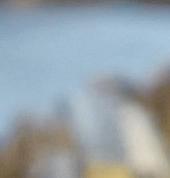







up for a show that blends
Renegade Nell is the swashbuckling Disney+ series from Happy Valley and Gentleman Jack creator Sally Wainwright. Star Louisa Harland and director Ben Taylor lift the lid on teaming up for a show that blends action and drama with humour and a sprinkling of magic.



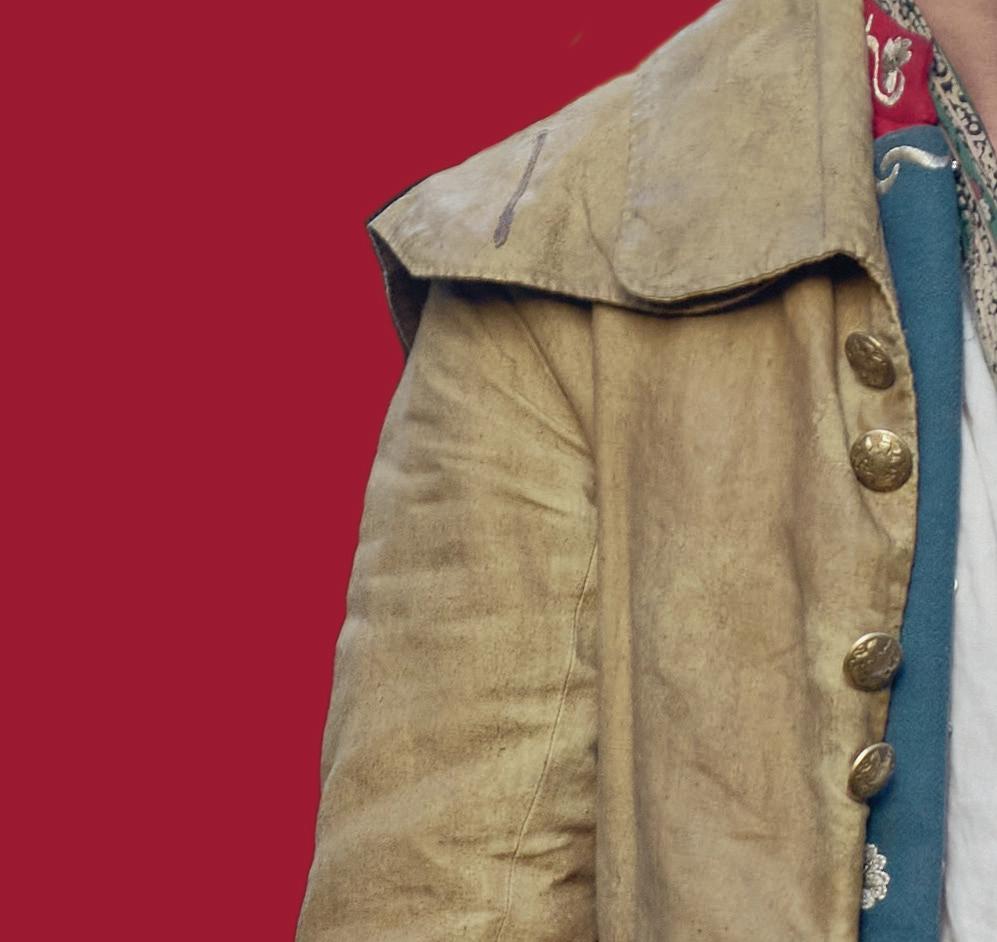
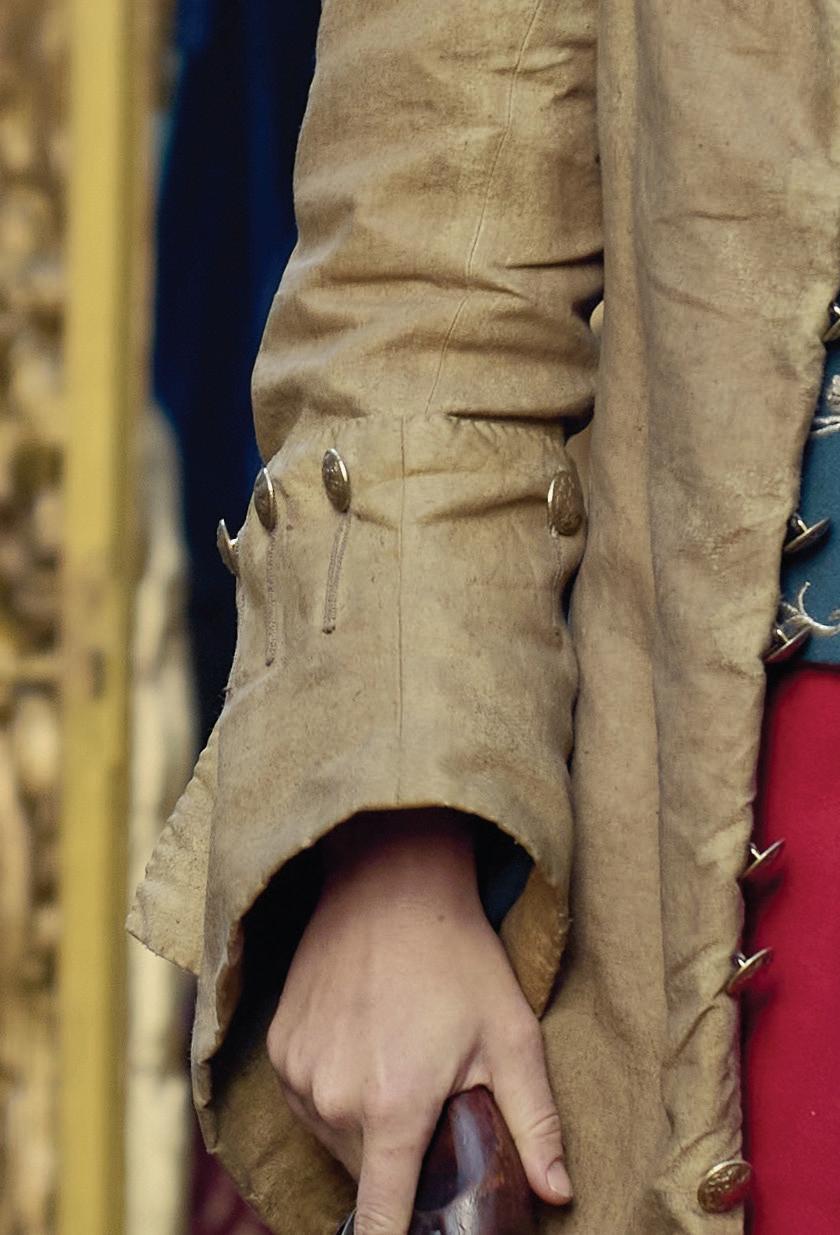
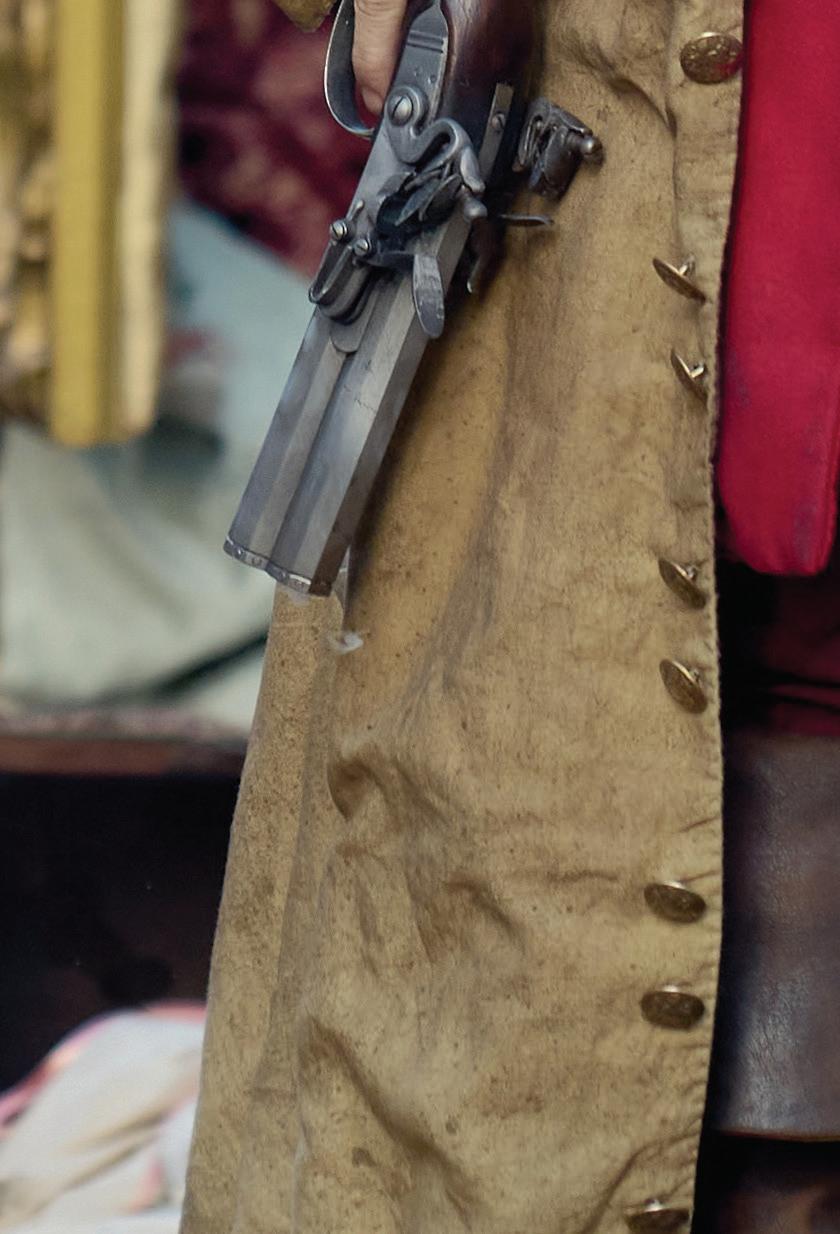
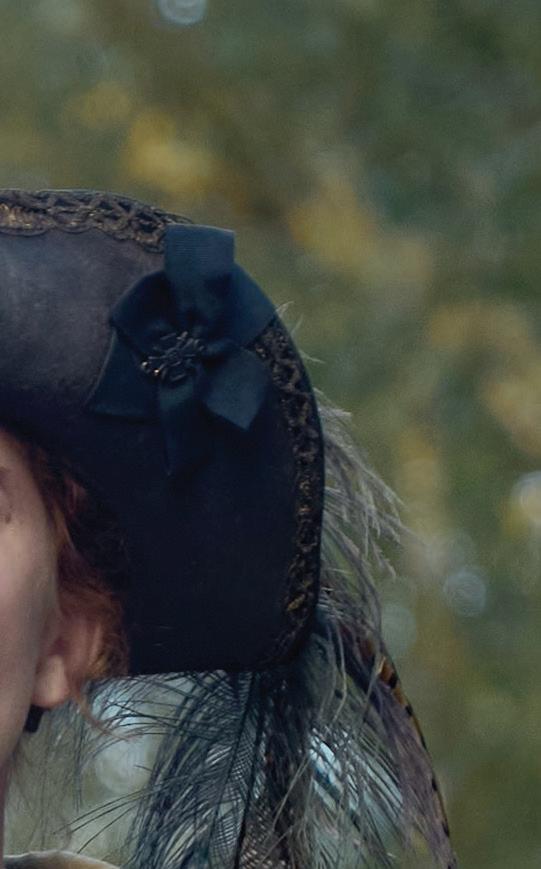

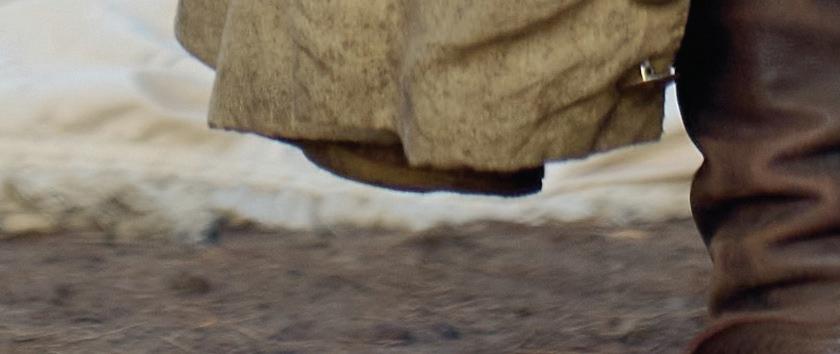




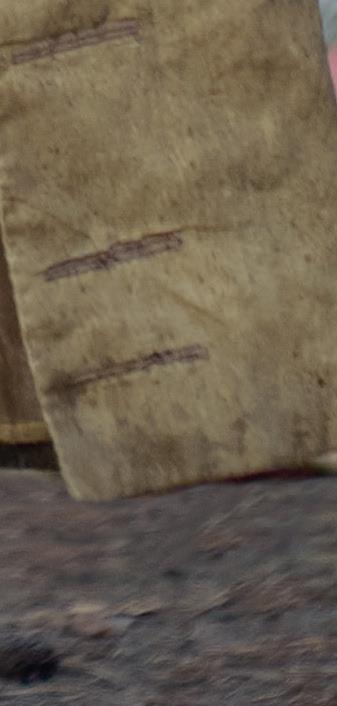
IN FOCUS: Renegade Nell DQ . Spring 2024 17
Frank Dillane also stars as Nell’s fickle friend and sometime adversary Charles Debereux, a charming rogue with a dangerous alter ego, while Adrian Lester plays the Earl of Poynton, a master political schemer and manipulator who joins forces against Nell with Sofia Wilmot (Alice Kremelberg), a young widow who wants power and independence at any cost.
Joely Richardson plays eccentric newspaper magnate Lady Eularia Moggerhanger, while Pip Torrens is Lord Blancheford, the father of Sofia and her feckless, bullying brother Thomas (Jake Dunn). Ényì Okoronkwo is Rasselas, a spirited stable boy who joins Nell and her sisters on the run in his own bid for freedom, with Bo Bragason and Florence Keen as Nell’s two younger sisters Roxy and George. Craig Parkinson plays Nell’s kind-hearted father Sam, the owner of The Talbot inn.
The series marks the first leading role for Irish actor Harland, who is best known for her appearances in comedies such as Derry Girls, Big Boys and drama The Deceived. “Louisa has been such a trooper,” Taylor says of the star. “Like me, she’s come from a background where this feels like a departure for her, but she was a north star to the cast and crew around her because she got it and she was a brilliant partner with me in terms of finding the tone and maintaining it.

< she was like a bag of contradictions. She had to be tough and brusque,
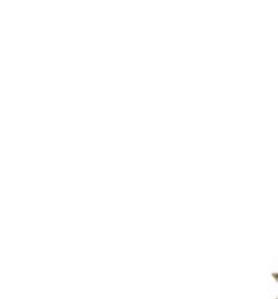

character like this, gifted dramatically,



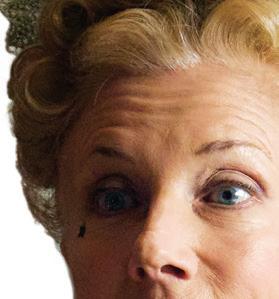

Before the cameras were rolling, Harland endured three months of training that involvedwire work, conditioning, horse riding and sword fighting. “And she just threw herself into it,” Taylor says. “She didn’t have many days off during shooting, but the stunt crew really took her in. She was one of their gang, and that really paid dividends because then you got another family on set that really had your back.”
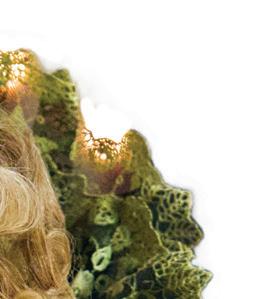
Harland was filming the final season of Derry Girls when she auditioned, and jokes that being unable to fly to London for a recall “made me look unavailable.” But she was delighted to land the role, even though she might not have seemed the obvious choice.



land the role, even though she might not have seemed the obvious choice.
“I couldn’t ride a horse. I’m not from Tottenham. You won’t find me in a gym,” she says. “My parents were like, ‘What a random choice. They went for you?’ I’m so pleased they did. And it was even more fun because it was such a challenge but yet, in that same breath, even more terrifying. I was terrified, I cried every day, but I loved every second. I don’t think I had a bad day on set.”
cried a day





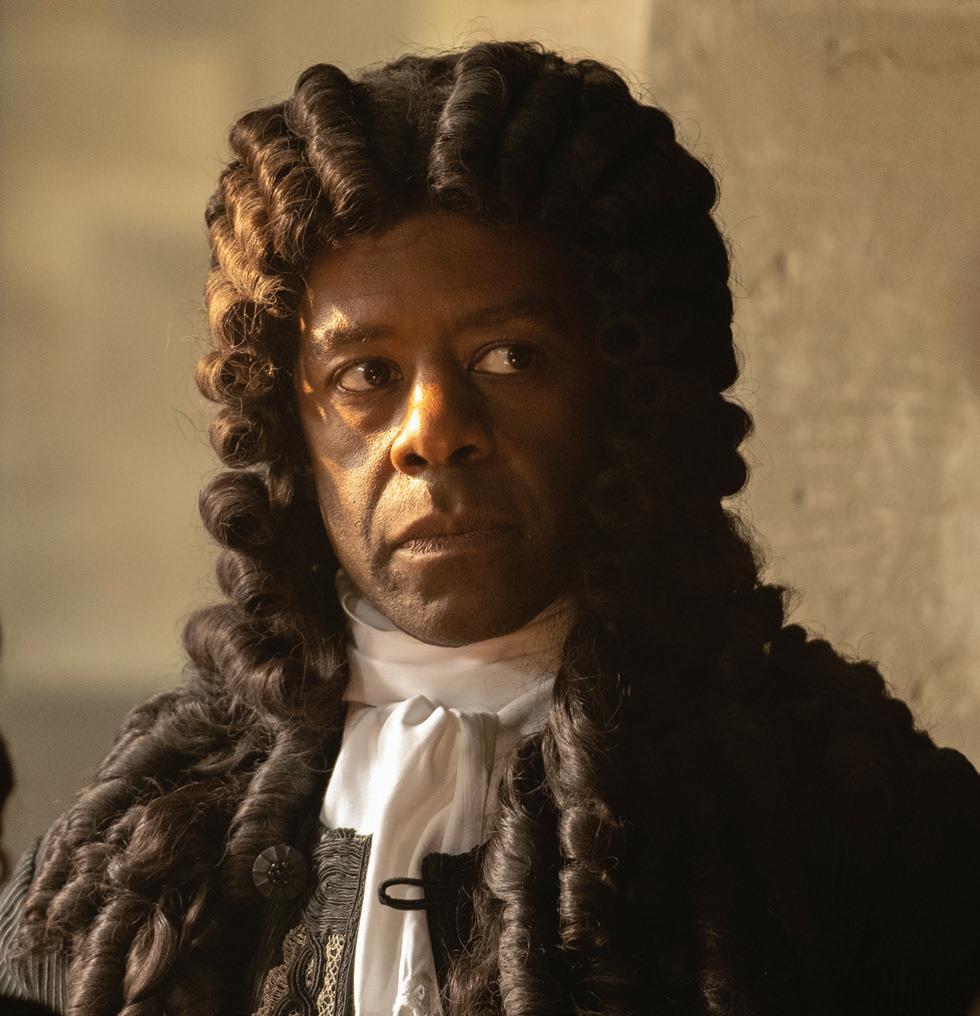
on all things in society. Obviously it’s a period piece, 1704, but it comments a lot on today.”


“The character of Nell was on the page, but she was like a bag of contradictions. She had to be tough and brusque, empathetic and physical but vulnerable. When you’re the titular character like this, you need to find somebody who embodies that –and she embodies the spirit of it. She’s gifted comically, very gifted dramatically, and people haven’t seen that before. And then in terms of physicality, she got put through the wringer on it.”

in terms of physicality, she got put through the wringer on it.”
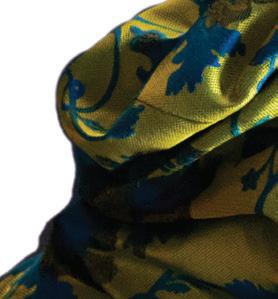

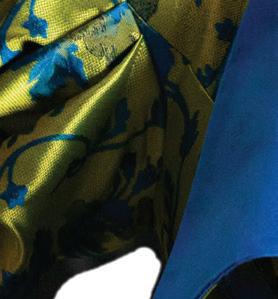
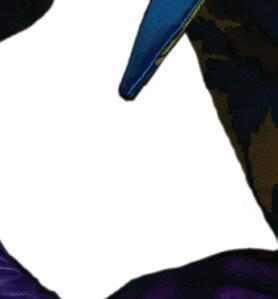
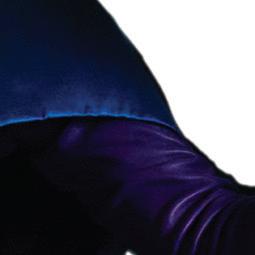
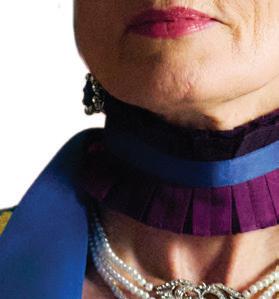
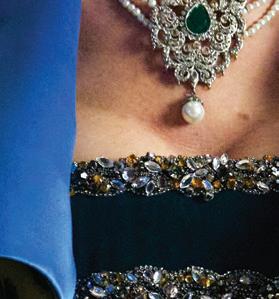
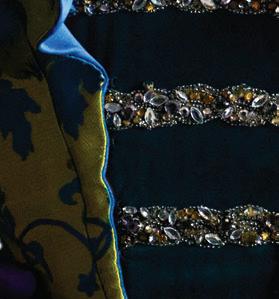


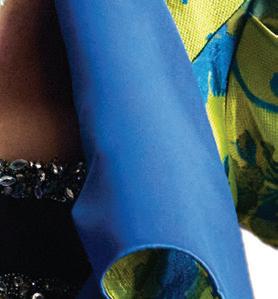


In a series blending folklore with elements Pirates of the Caribbean The Favourite and The Goonies ,” Harland says Nell is “absolutely a force,” a stubborn and flawed woman who is hungry to provide a better life for herself and her sisters. “Sally writes such real, raw, flawed women and adding the fantasy element on top of that is just magic.
In a series blending folklore with elements of “ Pirates of the Caribbean , The Goonies ,” Harland says Nell is “absolutely a force,” a stubborn and flawed woman who is hungry to provide a better life for herself and her sisters. “Sally writes such real, raw, flawed
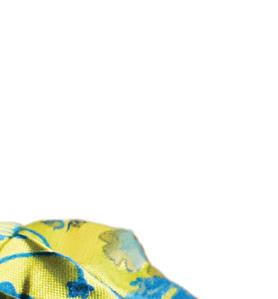
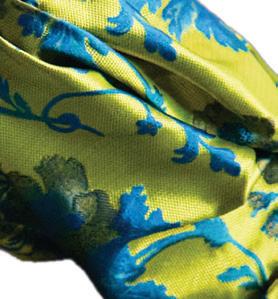
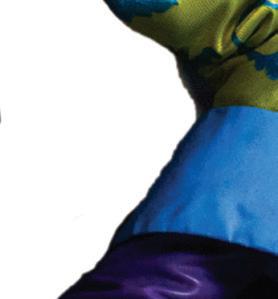




“She goes through a series of unfortunate events, but all in pursuit of justice. Class is at the centre of this, and Sally’s written that so beautifully. Then towards the end of the series, the press is being introduced and it’s just a fascinating comment
During rehearsals, Harland worked closely with stunt coordinators James Embree, Abbi Collins and her stunt double Melissa Humler, honing her conditioning and horse-riding skills every day. “They’re unbelievable people, and I have such a newfound respect for that side of our industry. I don’t think I would be anything without them,” she says. “I can’t ride a bike and I can now ride a horse.
of unfortunate events, press is being introduced and it’s just a fascinating







“Filming was incredibly vigorous because it was long days, long hours. It was brutal. There were a lot of outdoor and night shoots. I spent two weeks with my face in a puddle in the middle of the night, but I loved every second of it.













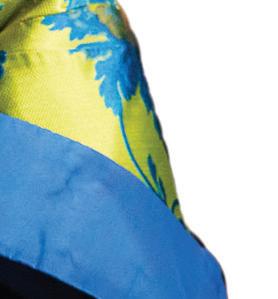


The most frustrating part for Harland was not being able to work with Mohammed – a “genius and brilliant” actor who filmed separately in front of a green screen so Billy Blind could appear tiny next to Nell – while she was also restricted in the number of stunts she could do on screen. “But my stunt double was so incredible,” she says. “So if you ever see me do something incredibly
IN FOCUS: Renegade Nell 18
Star Louisa Harland as highwaywoman Nell Jackson alongside Ényì Okoronkwo as Rasselas
Adrian Lester is the Earl of Poynton
Joely Richardson also stars
cool, it probably wasn’t me. It was Melissa. She is Renegade Nell. She’s the real deal.”
Taylor is best known as the lead director and an executive producer of Netflix’s British series Sex Education , which is notable for its blend of Welsh scenery, 80s-inspired costumes and US high school aesthetics. He was instrumental in creating the unique world of that series, and Renegade Nell called on him to perform a similar task.
“It is definitely the hardest, most labourintensive part of it, but it is also the biggest joy of this,” Taylor says. “I’ve been spoilt with Sex Education and this, where to come in and design and build a world with your heads of department and your designers is just easily the most fun part of it.”
Part of the appeal of signing on for Renegade Nell was that the prospect scared him. “It’s everything I’d ever dreamt of as a kid to be involved in,” he says. “It was action, fantasy, VFX, wire work. I’ve always been a big Disney fan, I get the Disney DNA, and this is definitely a progression. Louisa as Nell is also leaps ahead in terms of what an expected Disney hero is. That’s hugely thanks to Sally’s writing, obviously, but I knew what I would want to watch on Disney and it felt like an opportunity to have a play with some really exciting material.”
Taylor describes himself as an “odd” partner for a period adventure, admitting he might not have been the first director thought of to lead the series. But when he pitched his vision for the show, he remarked how funny it is – a common yet understated element of Wainwright’s work – and he subsequently landed the job.
“It’s a really funny show, and she was so happy to hear that,” he says. “A lot of people don’t tend to use that word as a way to describe stu that she has done, because people tend to lean towards the dramatic elements of Sally’s writing. But because I come from a comedy background, I always need a way in via humour. When I read scripts that are dry and devoid of humour, I’m at a loss – and this knew its comic tone.
“Everybody uses the word ‘grounded’ when they pitch, but doing grounded with fantasy and action, and essentially superhero lore, is di cult. Probably the thing that I’m most proud of is that it makes sense. It feels like all the answers are leading to the same show. Because there are so many elements and aspects to it, it could easily be a bit of a sort of smorgasbord. And I think it feels cohesive and it’s certainly mad – it definitely has a mad streak within it, but it feels like it knows what it wants to be.”
With ambitions to ensure British-made Renegade Nell didn’t feel like a “poor cousin” compared with US series on the Disney+ platform, Taylor sought “big visuals and confident design” for the show, which is unusual in that it isn’t based on any prior IP, such as a book or graphic novel.



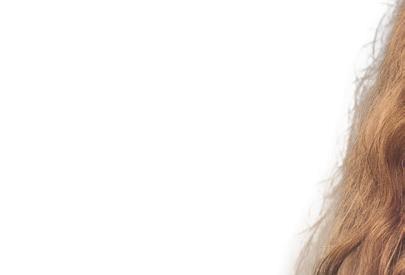
That meant costume designer Tom Pye, production designer Anna Pritchard and DOP Oli Russell were all encouraged to be “bold” in their work, which is set against a backdrop of natural landscapes including Epping Forest, Ivinghoe Beacon and Windsor Park, studiobuilt sets such as the interior of The Talbot, and shoots on location at Hampton Court Palace, Hatfield House and the Old Royal Naval College.
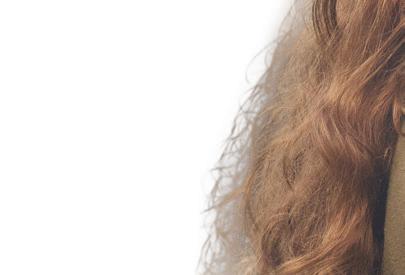
Filming at numerous stately homes across the UK, Taylor had to find a new way to shoot historic buildings that had often been seen on screen before. But the discovery of one previously unknown property, a private residence, enabled them to build the entire Tottenham set that features in episode one.
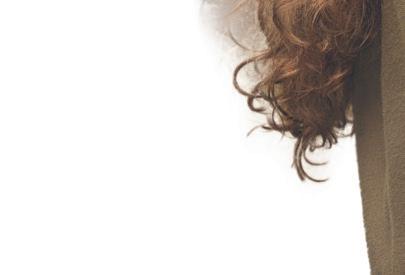


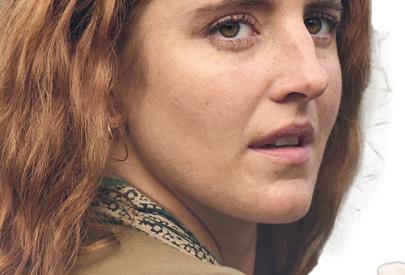
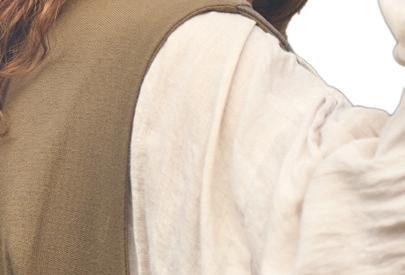
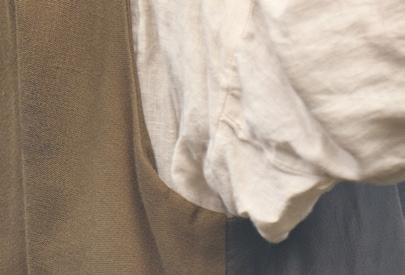

Yet with Renegade Nell also doubling as a road movie, the nature of the show’s dynamic storyline meant many sets and locations weren’t used more than once. Fight choreographer Embree was also hugely influential when it came to the way the show moves in terms of the action sequences, which include street fights, brawls on the roof of horse-drawn carriages and numerous chases involving the actors on horseback.
“One of the toughest things, but the most fun, is we were inventing our own rules for the physics of these superpowers, and it was a real headscratcher,” says Taylor. “Can Nell jump high? Yes. Can she jump on top of this stagecoach? Yes. Does she get any injuries? Yes. So you design this superhero who takes the knocks but, as soon as the power of Billy exits, she’s fucked. She feels every punch she’s just received.
“We were always very wary of a ‘Tinkerbell effect’ where we’re on Disney and they’ve got a 100-year history of magical things. We wanted to find a blunt, heavy, real-world version of this. And part of that was mine and Sally’s anxiety of doing a fantasy show for the first time. We wanted to make it feel as real to us as possible, and that did influence the way we shot it.”
But working for Disney, Taylor was minded of creating a series accessible for family viewing and says the production was “on a tight leash” in terms of hitting a UK 12A rating, meaning a film screening in cinemas is appropriate for those 12 and over, while those under 12 are permitted if accompanied by an adult.
“When you’re dealing in horror and action, we were trying to push to the hardest end of a 12 we could, but they were good with us and gave us some room in certain places,” he says. “They want a show you can watch and share with your family, and one of my favourite things is that it feels like family viewing fare.
“It’s going to shock you and it’s going to scare you in places. But I’ve got two young boys and to know that I’ve made a show I can finally watch with them that isn’t about sex and teenagers is a really big thing for me. It’s hard to categorise, but it’s a lot of fun.”
“


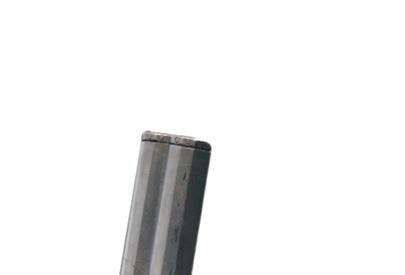

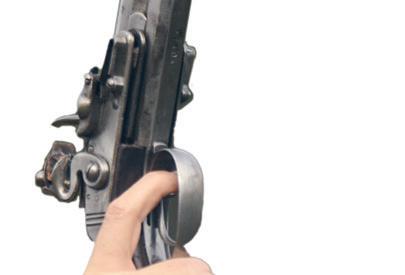
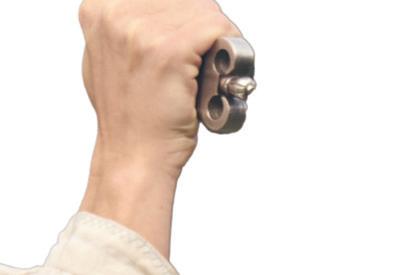
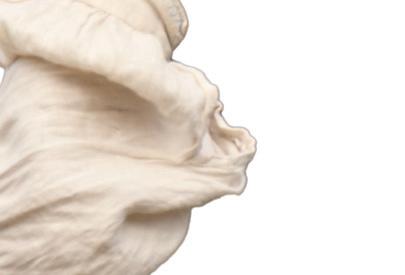
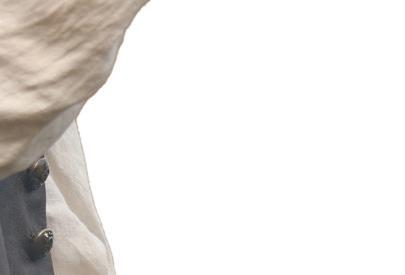
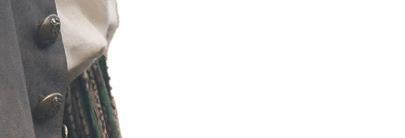
Filming was incredibly vigorous because it was long days, long hours. It was brutal. There were a lot of outdoor and night shoots. I spent two weeks with my face in a puddle in the middle of the night, but I loved every second of it.
Louisa Harland Actor
”
IN FOCUS: Renegade Nell : DQ . Spring 2024 DQ
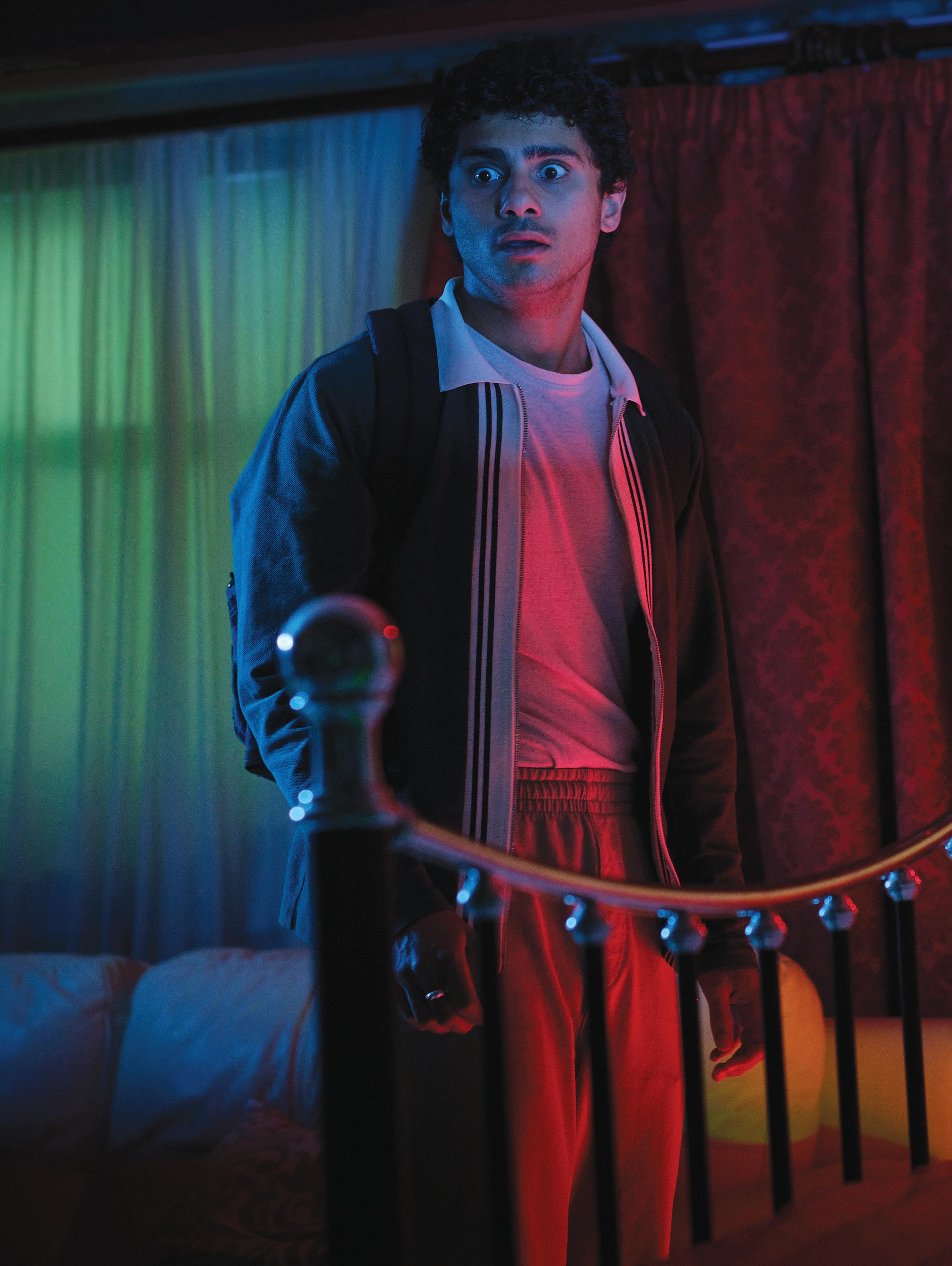
Hot
property
After developing her screenwriting career on TV thrillers such as Fool Me Once, Charlotte Coben has created her first original series in Prime Video’s comedic thriller Dead Hot. She tells DQ about blending humour with grief, filming in Liverpool and working with her author father Harlan.
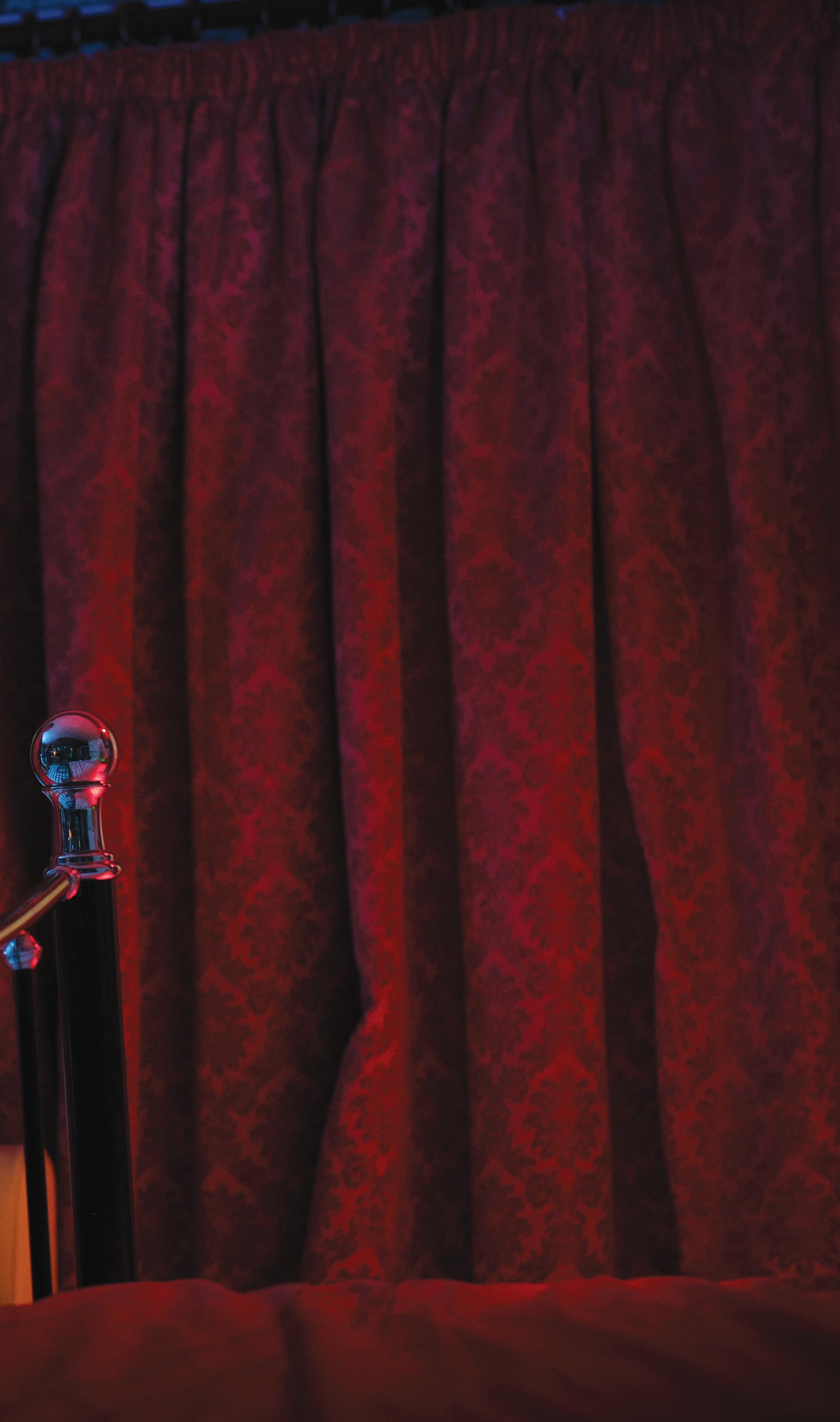
WRITERS ROOM: Charlotte Coben

I“
I like to write in big bursts, writing it the way that it’s intended to be consumed, which is kind of bingey.
Charlotte Coben ”
f her surname sounds familiar, that’s probably because you’re read it before. But Charlotte Coben is now stepping out of her author and screenwriter father Harlan’s shadow with her first original television series.
Commissioned by Prime Video, Dead Hot is a six-part drama that sets out to explore themes of family, class, love, trauma and identity through a twisty-turny story set in Liverpool.
It’s here that we meet Elliot (Bilal Hasna) and Jess (Vivian Oparah), best friends who are united in grief following the mysterious disappearance of Peter – Elliot’s boyfriend and Jess’s twin brother – five years earlier, leading them to adopt a hedonistic lifestyle to numb their pain while clinging to the hope that one day they will find out what happened to him.
When Elliot meets Will, he starts to think he can put the past behind him. But just as Elliot discovers Will has his own dark secrets, Jess is contacted by someone claiming to be her brother, leaving the duo determined to find out if Elliot is romantically cursed – or being targeted. The cast also includes Penelope Wilton, Peter Serafinowicz, Rosie Cavaliero, Rebekah Murrell, Alan Turkington, Brandon Fellows and Marcus Hodson.
Coben is writer and creator of the series, which debuted at the start of March, having begun to take shape in 2021 when she wrote the first episode. But despite having a famous author as a father, it wasn’t always a given that the younger Coben would end up treading a similar path.
“I think we both tried to fight it a bit,” she tells DQ. “But actually, I was drawn to writing, writing silly little essays when I was a kid. And then there was an era when every night I’d pretend to go to bed at 7pm and just write Draco Malfoy fan fiction for three hours a night. That got me
really into writing. Then I was writing some plays for kids in my town and they’d perform it at their camp, and then in college that turned into screenwriting, just as [Harlan] was starting all his TV screenwriting stuff. So we were destined to work together.”
They did work together on three of Harlan’s television series, namely Netflix thrillers Stay Close (2021) and Fool Me Once (2024), and Prime Video’s Shelter (2023). And Coben acknowledges the support she has had to break into the business.
“I know how lucky I am,” she says. “Of course, it’s a leg-up in a business like this, and it would be ignorant to say otherwise. It’s what I love to do and I’m very grateful I get to do it. I never take it for granted. I love my dad’s work and I love getting to work with him. I just don’t ever read stuff online.”
Working on those shows, Coben learned to back her own ideas in the writers room – and to accept other people might have better suggestions. “It’s about not being precious over things you come up with. You’re like, ‘Oh, this is genius. This is it. This is the one,’ and then you’ve got to be willing to adapt and transform that idea and not get locked down on it. But it’s been a great process working with them and learning to write in the tone of an overall show. Danny Brocklehurst, who writes most of the [Netflix] episodes, is so funny, smart and witty, so you’re trying to match that tone and keep it cohesive.”
Dead Hot now sees her stepping out on her own, though the series carries many of the twists and turns that have become hallmarks of her father’s novels and series. It also reunites her with executive producer Nicola Shindler, who is a regular collaborator with Harlan. Shindler’s Quay Street Productions produces the series, with ITV Studios handling international distribution.
The show emerged from “inspiration out of nowhere,” an amalgamation of several different ideas and themes
DQ . Spring 2024 21
>



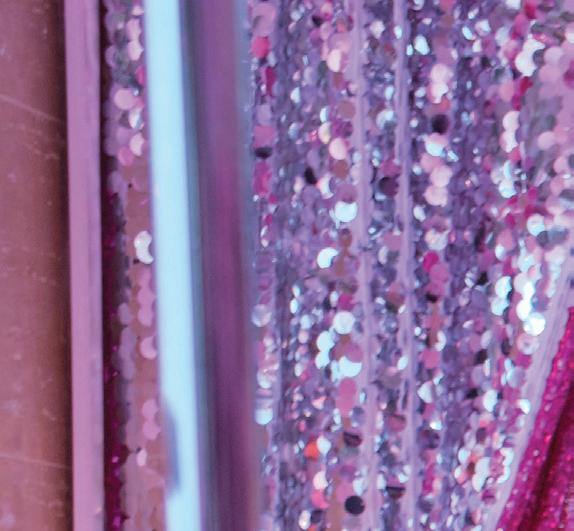
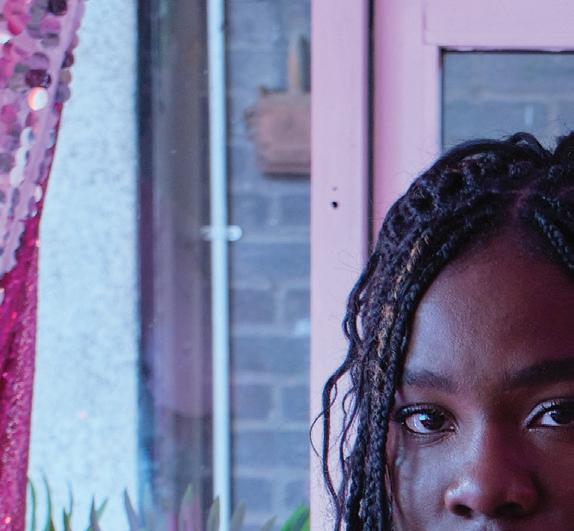
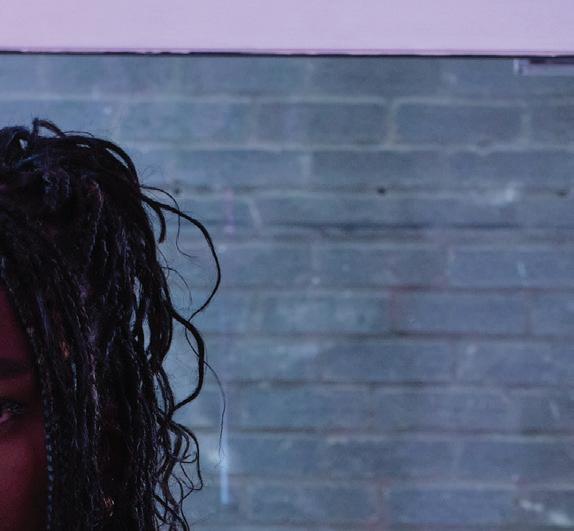


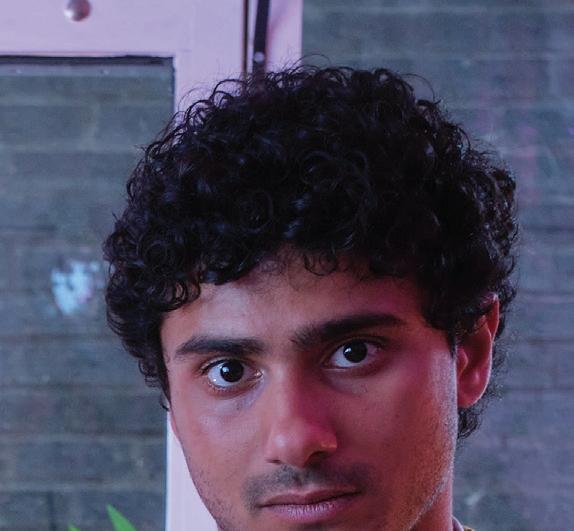
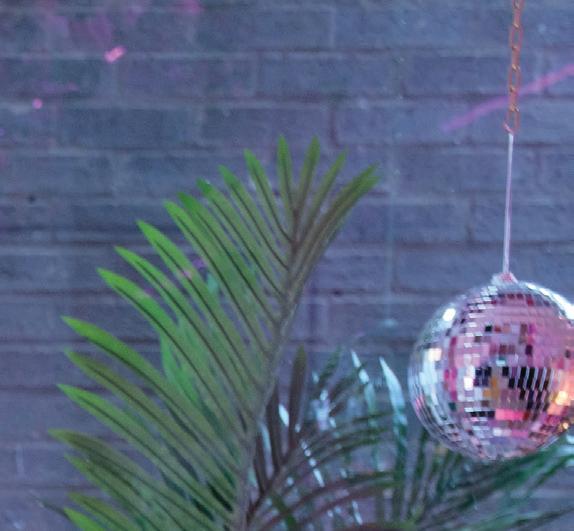

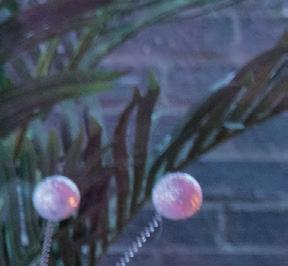
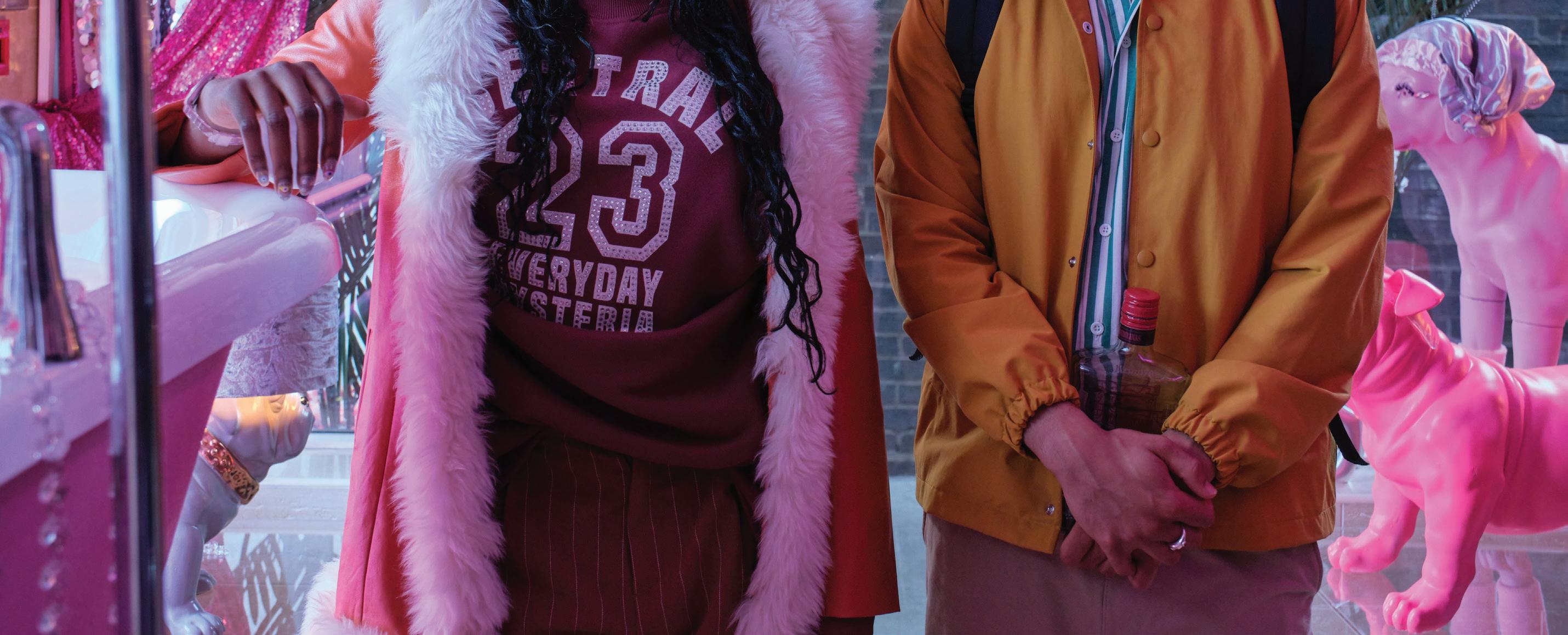
that were drawn together among the various documents full of story ideas that Coben keeps. When she wrote it, she was in her mid-20s – a time when her friends were dating but sometimes wouldn’t get a text back from people they were seeing.
“You want to make them feel better so it’s like, ‘Listen, he’s literally probably dead or he’s arrested, it’s not you. It’s everything else. It couldn’t possibly be you. Maybe you’re not being ghosted because they didn’t like you.’ There might be something else going on that’s a lot darker and more sinister, but really fun and entertaining,” she says.
She and her friends would also watch other TV shows and not recognise the way the characters reacted in similar situations, which influenced how Elliot and Jess react to events in Dead Hot. “I heard this quote once from a teacher saying that the hero should never scream, even if they’re in danger or scared. I just thought that was kind of ridiculous because I’m like, ‘What heroes are we watching?’ I want to watch people that are more like me, and I’m going to be screaming my ass off if I’m being chased by someone who wants to kill me.”
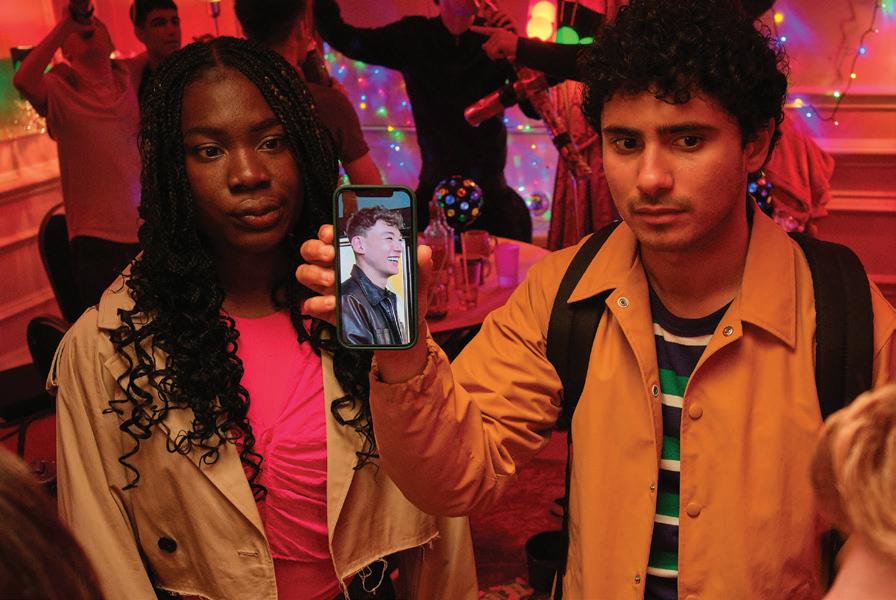
Highlighting Search Party and Girls as two of her favourite series, Coben began developing Dead Hot with Shindler after showing the exec an early script draft, and Quay Street quickly came on board.
“Working with them is the absolute greatest thing in the world,” she says. “Nicola knows good TV and her notes are some of my favourite notes you can get. They’re always thoughtful – there’s never a bad note from Nicola. She’s so trusting and encouraging, and she’s down for anything. The script I had written, I just sent it to her to see what she thought. She was like, ‘Let’s get this made.’ And now it’s literally been made, which is crazy.”
Coben wrote all six episodes but began work with a sparse outline that ensured the story wasn’t locked down, allowing her to go in different directions if she felt it served the characters.

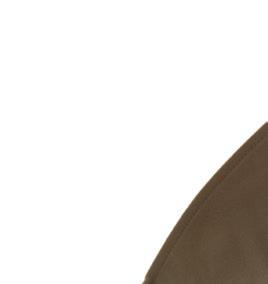
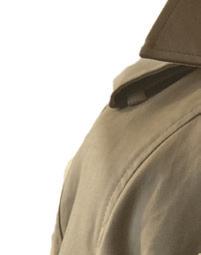
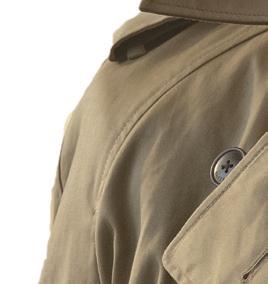


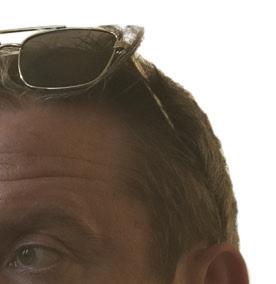
Quay Street script executive Charlie Quinn and script editor Hannah Collins were also on hand to provide feedback and help to mould “this big lump of crud into a nice, beautiful, cohesive story.”

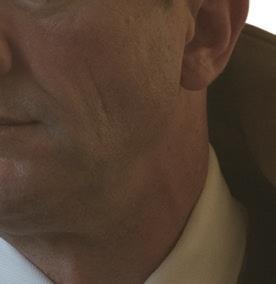

unexpected to happen in each scene. “It’s almost harder to stay within one tone for me for because when you’re experiencing grief and going through a hard time, it’s not like you go outside and everyone’s walking around moping,” she continues. “You’re still going to have the guy in the corner playing the trombone and singing his songs, and the dog’s still going to be taking a shit in the sewer, you know? Everyone’s still doing their thing. So just balancing all that felt natural for what the story was. Someone goes missing and it’s so heartbreaking and horrible, but then it’s kind of campy because they left a finger behind. But that doesn’t make it any less tragic.”
The most challenging part of writing the series came when it was time to wrap up the mystery and the numerous loose ends, as Coben needed to provide answers to everything she had set up in the beginning. “It was just difficult to make sure you got all the information in a way that feels natural and not just a character being like, ‘This is what happened,’” she says. “It’s a lot harder to have as much free fun with it. But in the end, you end up happy with what you’ve done.”
Another writing challenge came early on, when New Yorker Coben switched the show’s setting from the Big Apple itself to Liverpool. The first episode had the action taking place in New York, but when Shindler read the script, she immediately had the idea to transplant the story to Merseyside, in North West England. Quay Street is based in nearby Manchester.
“And going to Liverpool, it totally works,” Coben says. “It feels a lot like a mini-New York. But it was Nicola’s idea to set it there and it was absolutely the right place for it. It’s just very vibrant and very silly. There’s an absurdity in the air that’s very positive, and the Scouse people are so genuine and hilarious and take no shit. It’s perfect for our world.”
Coben hasn’t been content with only writing the scripts, however, and has had a hand in every stage of the show’s development, including watching auditions and visiting Liverpool, where she spent several days scouting locations with the production team.
“In the UK, they don’t do showrunners as much, so I think the showrunner role is kind of split between me, Nicola and our producer, Laura Kirkham, and then our directors, Sam Arbor and David Sant,” she says. “You just talk through every single detail of it. Every single graphic has its own 15 emails in a thread talking about one text message. It’s all very collaborative.”
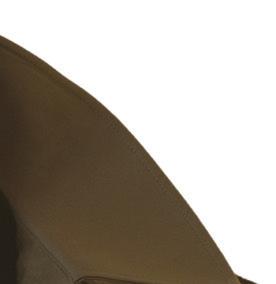
“I’ve found if I’m going in with an agenda, it makes it less fun for everyone, including the audience, than if you’re trying to just have fun with that,” she says. “I like to write in big bursts, writing it the way that it’s intended to be consumed, which is kind of bingey.”


On the back of her first original series, Coben says she is now more conscious of how scripts can be written to be more budget-friendly, such as fewer night shoots, and how they can be better written to support the work of both the directors and the actors.


stone early in development









also
That the storyline wasn’t set in stone early in development also meant landing the show’s comedy-thriller tone came more easily to the writer, who wanted something
“You don’t want to be telling the actors what to do,” she says. “You just want to give them the guidelines because they know their characters, in the end, better than anyone, so you want to leave that. You don’t want to be prescriptive. You never tell them to cry. If they want to cry and it comes naturally, then they’ll cry. I learned a lot for sure.”
And what does her father think of the show? “He’s a total dad about it. He’s very proud, and I’m very proud of what we’ve made. It’s really exciting to get to show that to him.”
WRITERS ROOM: Charlotte Coben DQ
DQ . Spring 2024
Hannah Collins were also on hand to provide feedback and help to mould “this big lump of crud into a nice, in of
Dead Hot stars Vivian Oparah and Bilal Hasna (above) as Jess and Elliot, while Peter Serafinowicz (below) is among the supporting cast
TH E BEST CRIME SERIES FROM


AT SE RIE S MA NIA



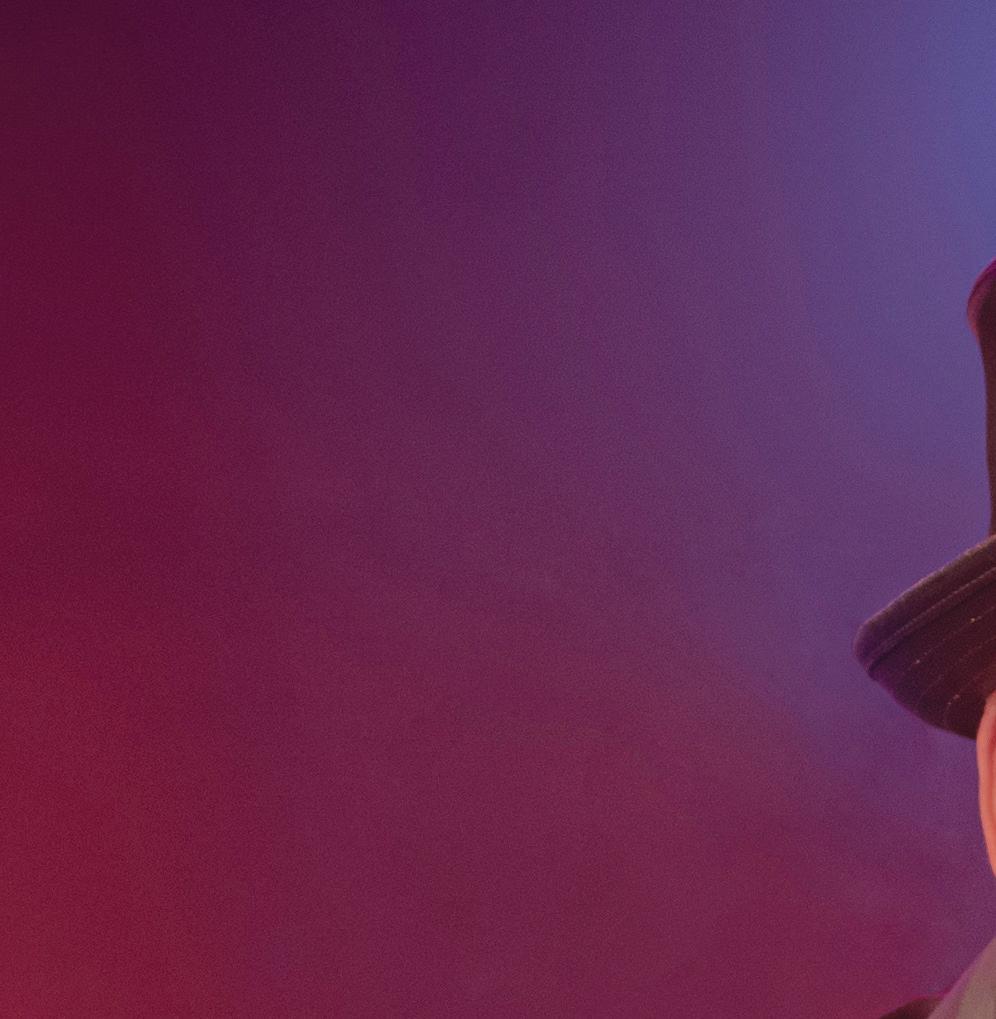



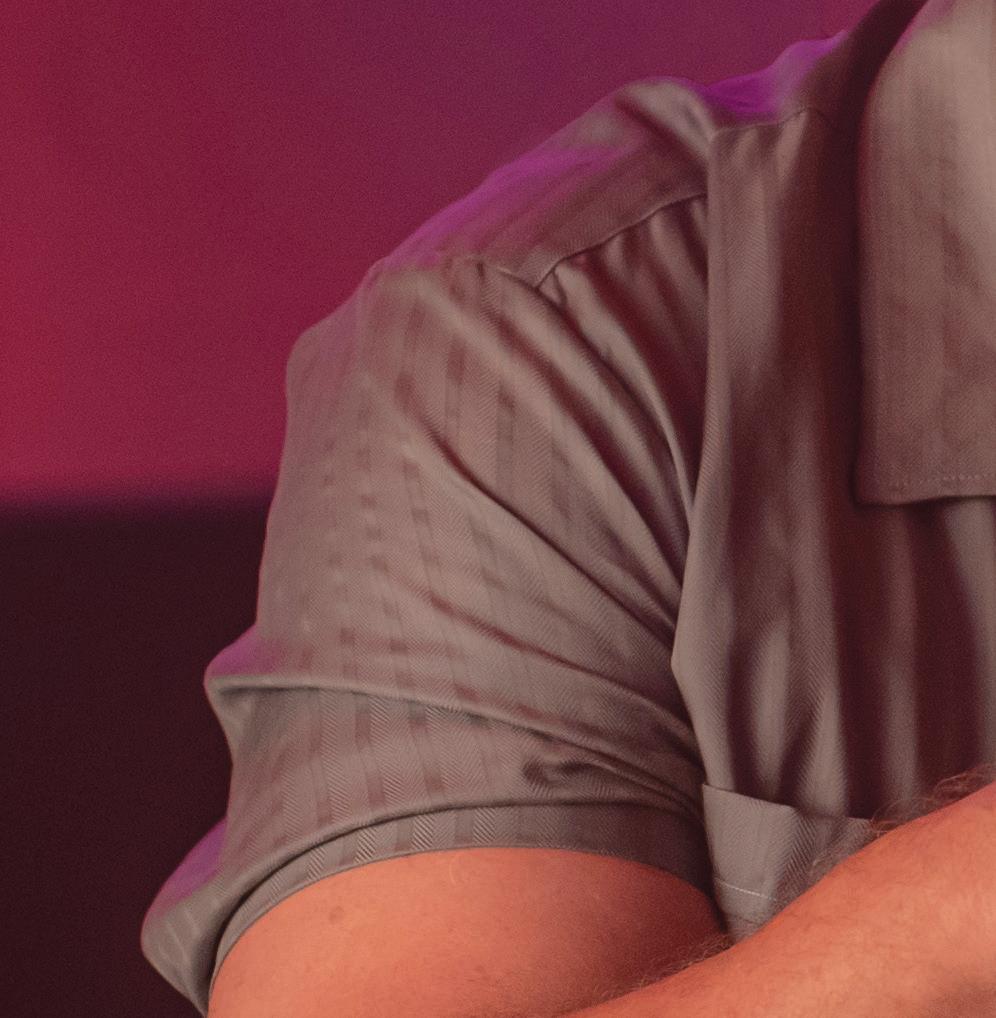


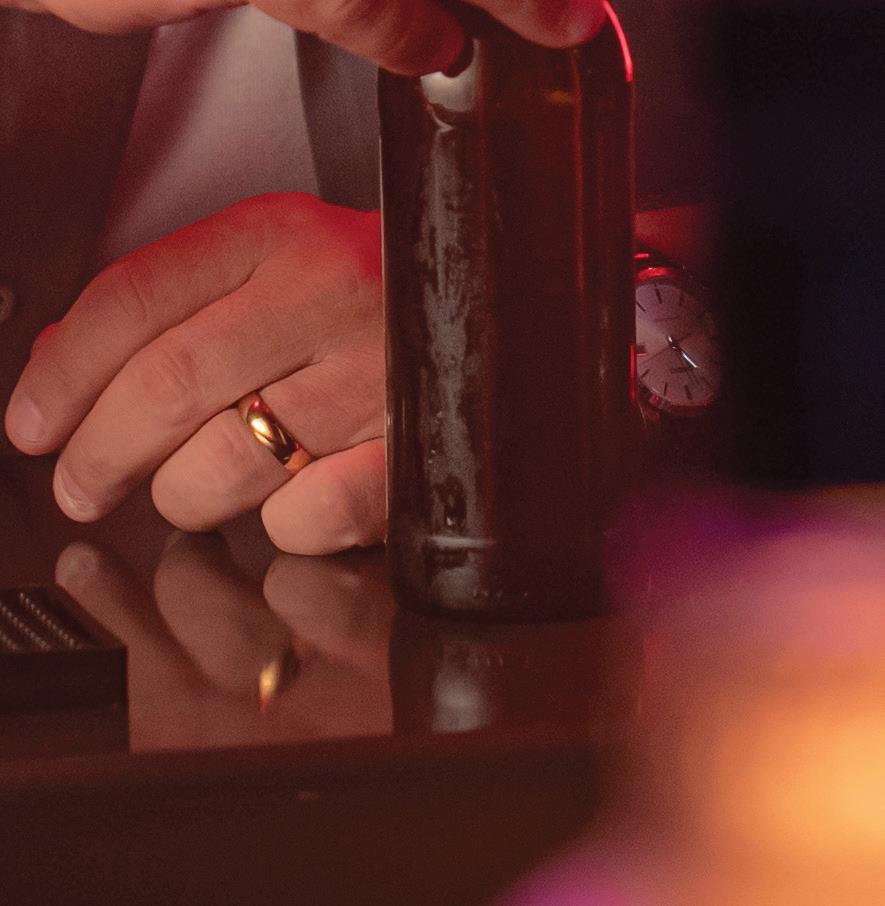
Hotel Cocaine DQ . Spring 2024
Michael Chiklis plays a DEA agent in Hotel Cocaine












































































director Guillermo Navarro invite DQ to stay at Hotel Cocaine, a crime drama set in 1970s Miami at the time of a huge explosion in the drug’s use and where a hotel manager is pitted in a war between federal agents and his
Chris Brancato and and drug-lord brother.










y the time the US actors’ strike began in July last year, the cast and crew behind period crime drama Hotel Cocaine had reached the halfway stage in their production run, filming four out of the show’s eight episodes.
Then when the walkout ended in November, showrunner Chris Brancato and lead director Guillermo Navarro had just a few weeks to get the series back into pre-production ahead of resuming the filming schedule at the start of this year.
That Hotel Cocaine would return to complete shooting was never in doubt, Brancato tells DQ from New York, where he is prepping the show before heading to the Dominican Republic, which doubles for 1970s Miami in the series.
“We had finished the scripts prior to shooting and prior to the writers’ strike [that ran from May to September], so we were able to go shoot,” he says. “Then of course, when the actors struck, we had to stop. And I must say, probably in retrospect, that while it was frustrating to be in the middle and have to take a pause, once the writers’ strike ended, it allowed us to go back and reread the last four scripts and make improvements.
“So in retrospect, it will have turned out to be a good thing in terms of the show quality because we’ve improved the last couple of scripts. But yes, it’s been strange.”
Finishing all eight scripts before production began put the team in a strong position ahead of the widely expected >



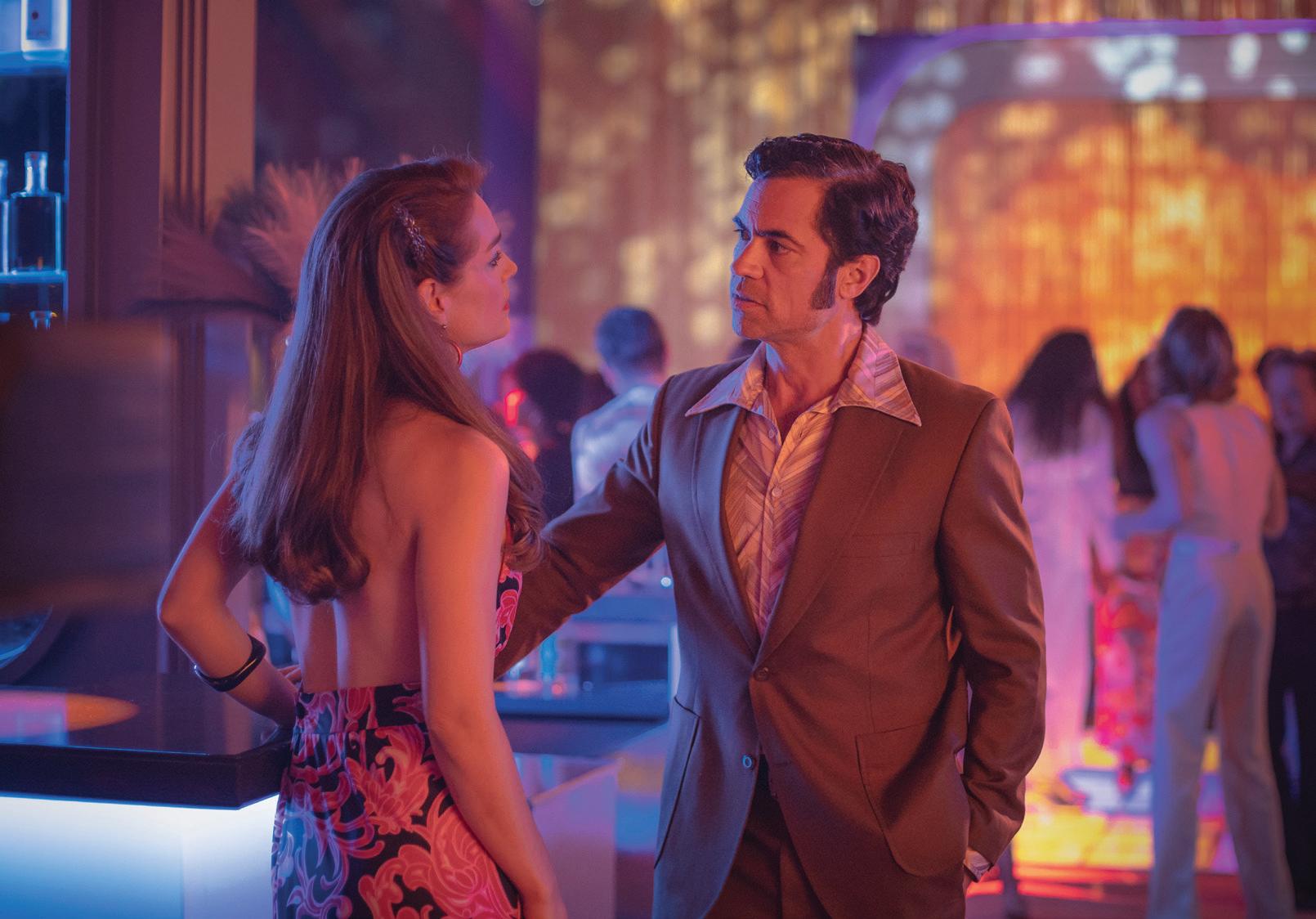
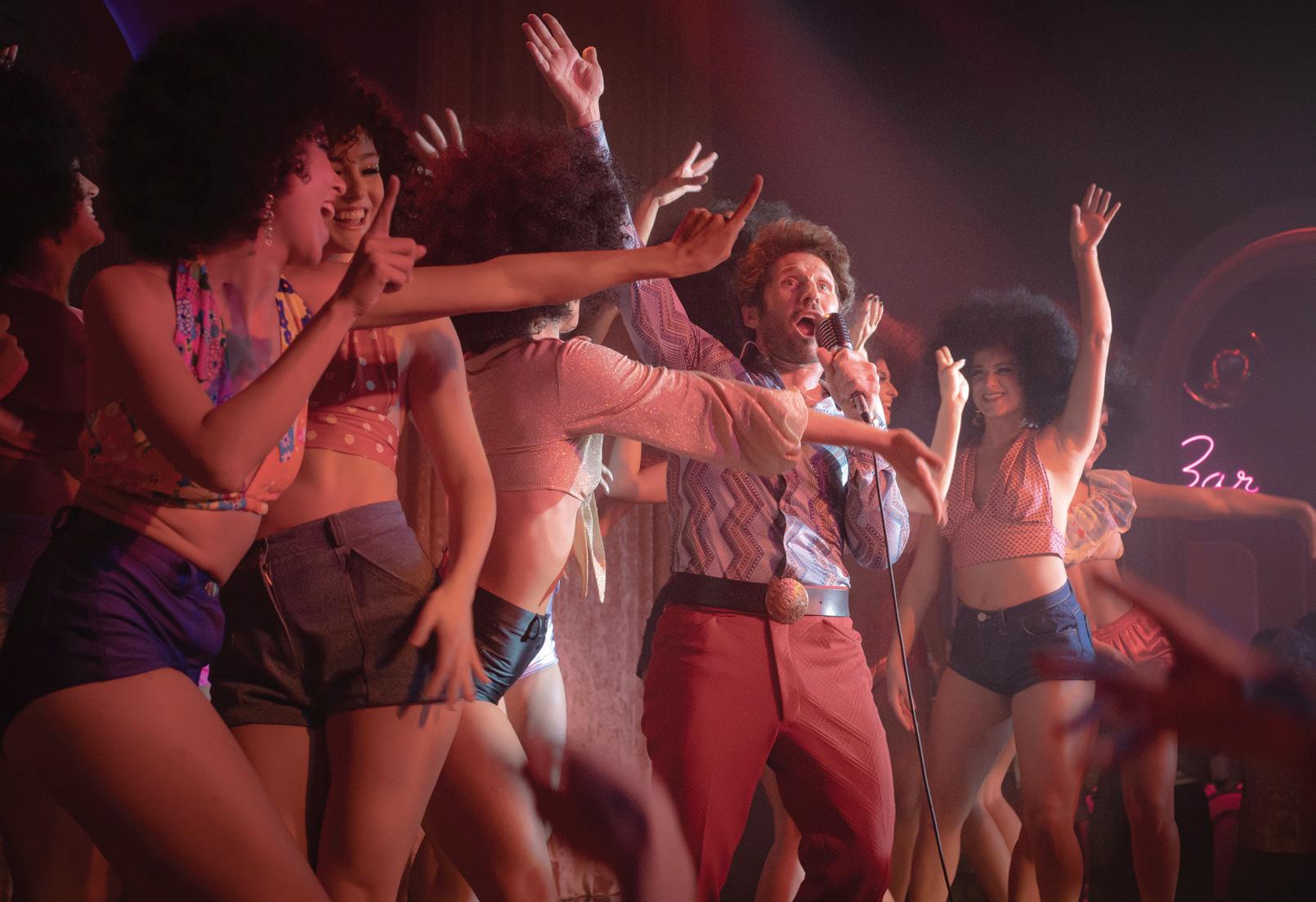
The production design used a vibrant colour palette to recreate 1970s Miami
writers’ strike. “But we couldn’t have anticipated the actors striking as well,” Brancato continues. “So as that was getting closer, we knew then we were headed for a shutdown. In particular, the gains made by the guilds with regard to artificial intelligence were what necessitated the strikes. So now it’s over with, and now it’s time for everybody to get back to business.”
During the shutdown, several stages were left standing at Pinewood Dominican Republic Studios, which is home to the production. “But my main concern during the break was the fact the crew, which was a couple of hundred people, were out of work, or at least out of work on our production. Obviously the strikes had ramifications far beyond just actors and writers. So I’m happy everybody’s back to work, making money,” Brancato says.
Commissioned by US streamer MGM+, the series focuses on Roman Compte, a Cuban exile and general manager of the Mutiny Hotel, the glamorous epicentre of the Miami cocaine scene in the late 1970s and early 80s.
Described as ‘ Casablanca on cocaine,’ the glitzy nightclub, restaurant and hotel complex sees Florida businessmen and politicians rub shoulders with international narcos, CIA and FBI agents, models, sports stars and musicians.
And at its centre is Compte (Danny Pino), who is doing his best to keep the party going while trying to fulfil his own American dream. That dream is put under threat, however,
when DEA agent Zulio (Michael Chiklis) vows to make life difficult for him unless he infiltrates the compound of his estranged brother Nestor Cabal (Yul Vazquez), one of the city’s biggest coke dealers.
With the story largely told from Roman’s perspective, viewers will also get an insight into the Cuban-American experience, which Brancato identifies as very different from other immigrant experiences in the US.
“Most immigrant groups came to escape from poverty in their homeland or were forcibly brought to the US. In this case, Cuban Americans were welcomed because they were leaving a communist regime, and so their immigrant experience is very different from the one that has befallen other cultural and racial groups,” he observes. “We explore that and we also set the stage for a second season where Roman’s journey is further affected by his past. You always want to be using the past to create drama in the present.”
Brancato is no stranger to this kind of subject matter, having previously created Netflix’s Narcos and Narcos: Mexico . It was while filming Narcos that he first heard about the real-life basis for Hotel Cocaine , when actor Maurice Compte mentioned that his father had been the manager of the Mutiny Club.
The showrunner was immediately intrigued by the idea of a series that could be pitched as Casablanca against the backdrop of Miami’s war on drugs, but at that time his focus was on Narcos . Five years later, Compte sent Brancato some notes on his father’s life.
“I realised that his father’s true experience needed to have some fictional creations in order to create drama, i.e. an older brother who was a drug dealer, which Maurice’s father did not have, and a DEA agent pursuing him,” Brancato says. “So with the fictional construct and using his father as inspiration, I mentioned it to Michael Wright, the president of MGM+. I just said, ‘This is Casablanca on cocaine’ and he said, ‘OK, I’ll buy it.’”
By then, Brancato was overseeing another MGM series, Godfather of Harlem , so he put it on the backburner. A first draft of the script also proved to be a little too comedic. Across several more drafts, he leaned more into the “muscularity” of the concept to create a dramatic historical fiction series that is rooted in authenticity, even if it doesn’t fully reflect the full reality of life during that period.
“I tried to stay true to the spirit of what Roman was doing then, which was managing a big club and being surrounded by drugs, which was true,” he says. “I created the fictional constructs of the DEA agent, and the task of spying on his drug-dealing older brother at the potential cost of losing custody of his child, and then tried to operate within the spirit of the times and obviously to create the drama that is necessary for good television.”
Brancato wrote the pilot before overseeing a small writing team that included Michael Panes, Alfredo Barrios Jr and Kyle Hamilton, who worked together to shape the show’s eight-episode arc. Then it was a race against time to finish the scripts before the impending writers’ strike.
“We weren’t sure whether there was going to be a strike, but we moved very quickly,” he notes. “And then of course, we went to shoot what we had written. Once the strike finally ended, we were able to go back and work on the last four, which were written a little hastily.”
The other key element to developing Hotel Cocaine was bringing on board director Guillermo Navarro, as Brancato
DQ . Spring 2024
<
recognised that a story about Cuban Americans needed to be heavily influenced by Latin American creatives. Mexican filmmaker Navarro has spent many years working as a DOP on Guillermo del Toro’s movies – he won an Oscar for Pan’s Labyrinth – and worked with Brancato on Hannibal, Narcos and Godfather of Harlem. Brancato sought him out again for Hotel Cocaine and o ered him the chance to take a lead on many of the decisions that would normally be the reserve of the showrunner.
“I said, ‘Guillermo, I want you to direct this pilot, and because we’re likely going to hire crew in a Latin country, I’m going to cede to you a lot of the decisions about who we hire, costuming and production design, because many of those people will either speak English as a second language or won’t speak English at all.’ What I did was something that I would very rarely do unless it was a very trusted colleague,” Brancato says. “Guillermo has a 40-year filmmaking career all over the world, so he was able to pull people on to the team who are really the very best in whatever department they lead. We had a spectacular crew.”
As an executive producer, Navarro has an overview of the whole series. But directing the first and last pair of episodes,
“Get ready for a ride. It’s a fantastic story and a very engaging drama. It has all the glitter of the 70s, the colour and the music and that aesthetic.
Guillermo Navarro Director
not documenting, it’s building scenes and building that narrative. If I cannot create a film language, there’s no point in doing it. The camera is what makes this possible.”
When it came to recreating the past, the Dominican Republic was chosen because it best represented Miami during the 70s and 80s – more so now than Miami itself.
“Because Miami’s been built up, you couldn’t possibly shoot in Miami and replicate the 70s without incurring enormous expense,” Brancato says, adding that the show’s version of the Mutiny is also grander than its real-life inspiration.

he wanted to create a world that leans into the nostalgia of the time in which the show is set, rather than shooting the reality of the period. “We’re definitely creating an atmosphere of our own,” Navarro says. “It’s today’s interpretation of what it would have been like then, with the resources we have now. I’m not trying to imitate what was shot in the 70s. If you see Scarface, you’re surprised how di erent it is from your memories. Here we’re using a colour palette that is very rich in wardrobe and production assignments, helping tremendously to make you feel at home in the 70s. It’s very well accomplished.
“This is a very strong drama between brothers but it’s also about how a load of cocaine from Colombia changed the city, going behind the curtain of what’s happening in Miami. It’s very exciting to reproduce a period of time in history and have a perception and a reflection on that.”
Leaning on his cinematography background, Navarro also used lighting and production design to create a film language that helped to build the narrative of the story. “I like the camera to tell most of the story, so it’s a camera that moves and is flowing with the story,” he says. “It’s
”But despite the show’s title – and the large quantities of cocaine taken by characters in the series – Brancato was clear that he didn’t want the show to become an advertisement for drug use. Instead, he sought to show the juxtaposition of people using cocaine for pleasure without any regard to the violence and brutality behind it.
“The tagline of Hotel Cocaine is ‘Pleasure has a price.’ The goal here is, number one, to create something very entertaining for the viewer and, number two, to allow the show to explore themes about legality and the immigrant experience in America,” he says. “Further to that, it is to understand that for every line of cocaine that’s done in a pleasure setting, there’s actually a trail of dead bodies that leads all the way back to South America. Nobody considers that when they’re sitting there at a table in a club using cocaine, and maybe they should. Maybe if they did consider that, they’d be less likely to use it. I always think about the ramifications of presenting drug use.”
Brancato says the show’s club setting also serves to highlight how “harmless” many people viewed cocaine in the 1970s as use of the drug exploded in the US without knowing its true cost. But more than just a ‘drug show,’ Cocaine – distributed by Amazon MGM Studios – is also a family series and a dark, comedic show that skewers the 1970s. Following its premiere at Series Mania, it is set to debut this year.
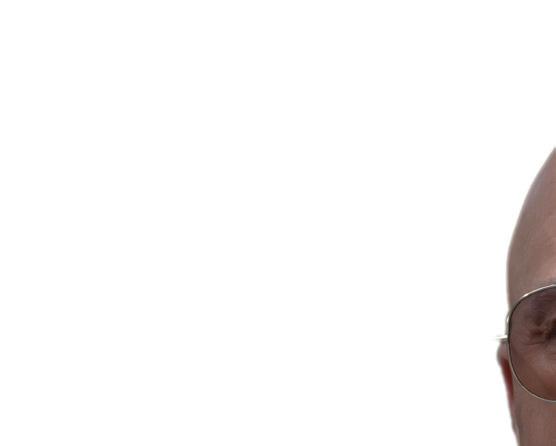

highlight how “harmless” many people viewed cocaine in the 1970s as use of the drug exploded in the US without knowing its true cost. But more than just a ‘drug show,’ Hotel family series and a dark, comedic show that skewers the 1970s. Following its premiere at Series Mania, it is set to
While Compte is based on a real person, Chiklis’s Agent Zulio is a fictional character
“I believe the show is a little bit of a unicorn in this sense,” he says. “We do the standard stu you would do in a drug show, where people are fighting for dominance and there’s violence and tension. We also have the owner of the hotel [Mark Feuerstein’s Burton Greenberg], who exemplifies the ‘me decade,’ this relentless self-absorption, and that adds a comedic element to the show. And then through Roman, there’s a familial element. I hope those di erent tones work together in the same hour, because you don’t often see that blend of tones attempted.”
“We the there’s a familial element. I hope those di erent don’t often see that blend of tones attempted.”


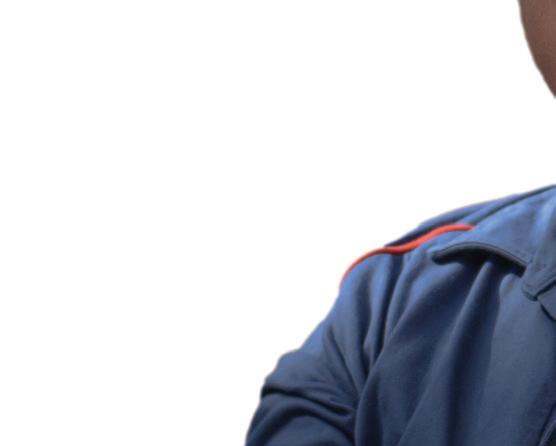



Navarro adds: “Get ready for a ride. It’s a fantastic story and a very engaging drama. It has all the glitter of the 70s, the colour and the music and that aesthetic. There’s

Navarro adds: “Get ready for a ride. It’s a fantastic story and a very engaging drama. It has all the glitter of the 70s, the colour and the music and that aesthetic. There’s a lot to look forward to.”


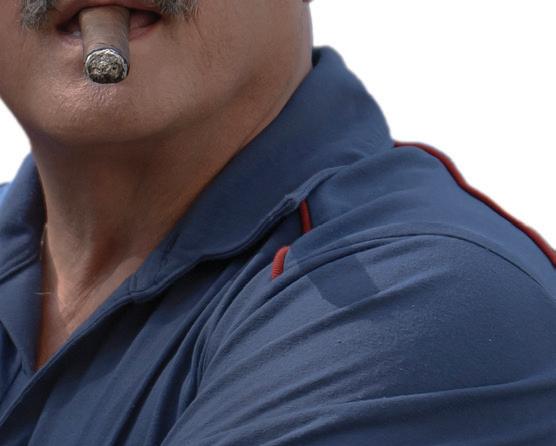
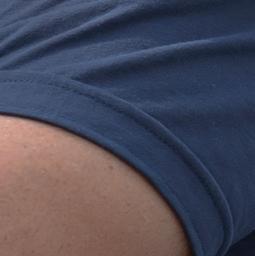
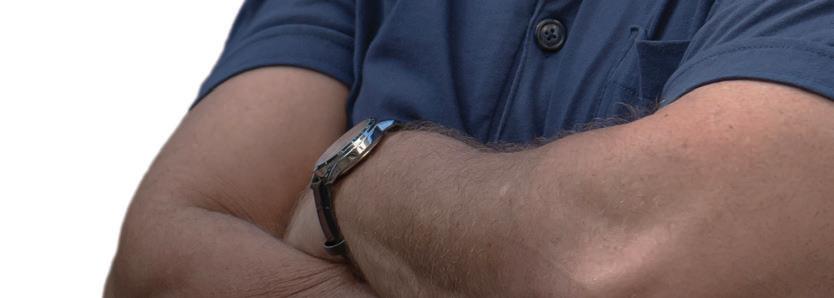
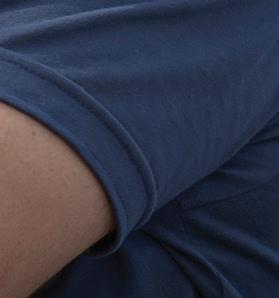
IN FOCUS: Hotel Cocaine DQ . Spring 2024 27
The series centres on Roman Compte (Danny Pino), manager of the Mutiny Hotel
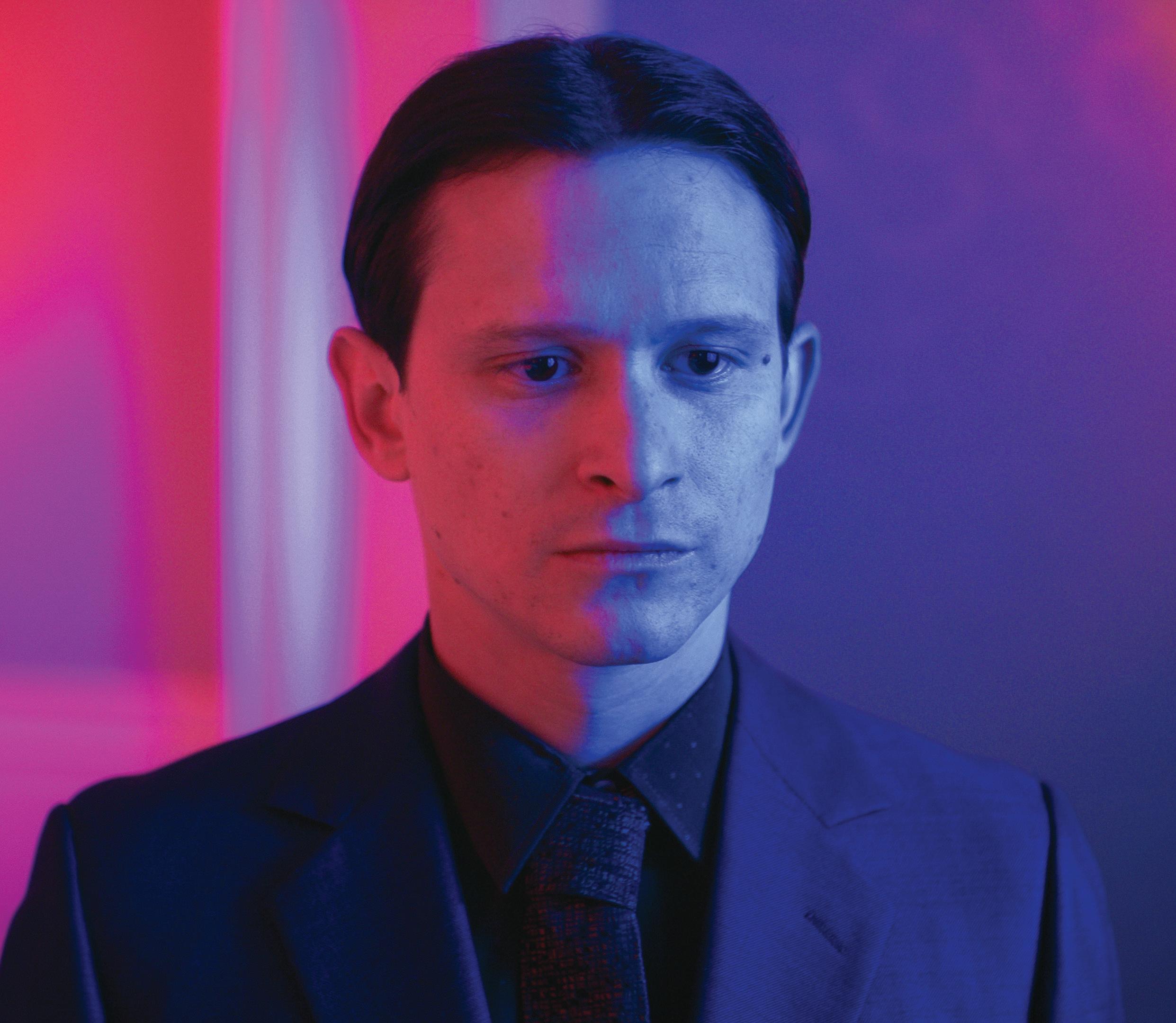
A FRESH PERSPECTIVE ON

Director David Schalko and writer Daniel Kehlmann join NDR head of fiction Christian Granderath and ORF head of features Klaus Lintschinger to reveal how they came together for a biopic of Franz Kafka, airing in the centenary year of the celebrated novelist’s death.


uch like Franz Kafka himself, a six-part biopic of the iconic German-language writer has some pretty big ideas. Rather than following his existence from cradle to grave, each episode of Kafka comes from the perspective of someone who played an important part in his life, while numerous devices – from narration and flashbacks to title cards, flash-forwards and breaking the fourth wall – are used to tell his story.
Director David Schalko (M – Eine Stadt sucht einen Mörder) and writer Daniel Kehlmann (Das letzte Problem) never intended to tell Kafka’s story in linear fashion. Instead, they wanted to create a darkly comic series that explores his life, love affairs and friendships with an eye on his legacy as the author of stories including The Castle, The Trial and The Metamorphosis.
Debuting in March, Kafka is a coproduction between Vienna-based Superfilm, Germany’s ARD and ORF in Austria, with a cast that includes Joel Basman in the title role, David Kross, Nicholas Ofczarek and Liv Lisa Fries. ORF Enterprise is handling international distribution.
As Schalko, Kehlmann, NDR head of fiction Christian Granderath and ORF head of features Klaus Lintschinger explained during a panel at this year’s Berlinale Series, a unique set of circumstances came together – as did ORF and all nine of Germany’s ARD regional public broadcasters, led by NDR – to ensure this series would debut in the year marking the 100th anniversary of Kafka’s death.
It was 10 years ago that David Schalko first contacted Klaus Lintschinger with the idea to create a television series about Franz Kafka, based on the biographies by Reiner Stach.
Lintschinger: Imagine there’s a phone call saying, ‘I’ve just read this amazing book; it’s only a couple of thousand pages and we have to do a series about it.’ It’s an irresistible proposition for entertaining, primetime television, which is what we do.
Schalko: That was 10 years ago. I called Klaus, and he was saying it would be so easy, everyone will do Kafka. This was not the case, of course. It took 10 years between the phone call we had, and the phone call we had when Christian told me he had heard about the project and he wanted to give it a chance. He said he needed two weeks to call all the ARD channels because everyone should spend a little on the project, which, against all odds, happened. We were working for this project for years; Daniel wrote it, and different constellations were trying to make it happen. Now it has found the perfect channels, because public TV is where it belongs.
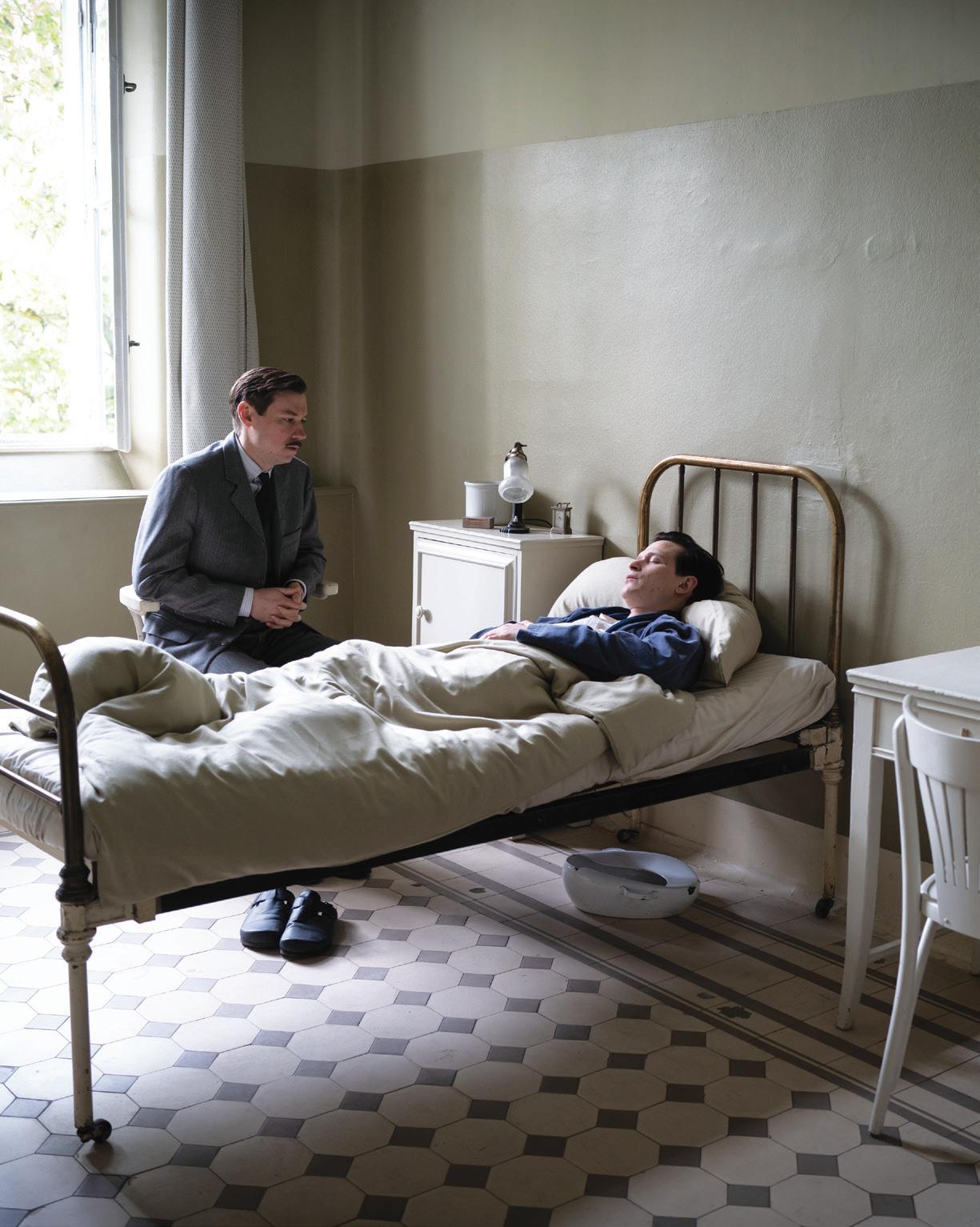
Stach’s biographies were the inspiration behind the series, which seeks to dramatise not only Kafka’s life but also the way his writing evolved and took shape.
Schalko: When I read the biographies, I thought they were some of the best biographies I’d ever read, not only because of Kafka. It has something to do with the way they are written. It’s so much more than the world of Kafka; it’s a disappeared world that you dive into with these books. What also interested me and Daniel is that it made it so clear how great literature rises out of life and how it works. That’s what interested us because there are so many other biopics about the life of writers but we never see the process of writing in that way, how the story is developed.
IN FOCUS: Kafka DQ . Spring 2024 29 >
Starring Joel Basman (opposite), Kafka tells the writer’s story from the perspective of different people in his life
“You don’t have to have read Ka a to see the series. That’s the most important thing about it. It was very important for us to find an entertaining way to tell the story, with humour but without losing the intelligence.
David Schalko Director
”Kehlmann: Kafka is the world’s most famous writer. Even people who have never read him, they have a notion of him. He’s the defining writer of our time and many times since he led his life – and that’s the point. It was a rather small and unassuming life in many ways. It was much more interesting than people know, but also it wasn’t a big life. But the amazing story that Reiner Stach tells is how out of this small life came those amazingly big, nightmarish ideas that captured the world. That, I felt, is really a story worth telling.
Three “miracles” needed to take place before the longgestating series could get a green light.
Lintschinger: Miracle one is David believed this could be done. Miracle two is that Daniel gets to write it and make 1,000-plus pages into a primetime television experience. But miracle number three, no less a miracle, is that somebody actually pulled it together. The broadcaster that made it happen was NDR, with ARD support, and Christian made it happen.
Granderath: It was really simple in the end. I got a call from Klaus one day and he asked me to participate in a movie, which we would have done 30 years ago but it wasn’t the right project for us now. Shortly before, I’d read there will be the centenary of Franz Kafka’s death and had said to colleagues that we should do something for that date. Then









One of the broadcaster stipulations was that the series should be entertaining, and not an art house project specifically for the ‘Kafka crowd.’
Schalko: You don’t have to have read Kafka to see the series. That’s the most important thing about it. It was very important for us to find an entertaining way to tell the story, with humour but without losing the intelligence. And it was clear to me that Daniel should write it because of his ability to make something complicated, deep and serious into something entertaining, with humour, and for everyone to understand.
The first decision was to tell the story from the perspectives of the important people in Kafka’s life, rather than making a traditional biopic.
Kehlmann: The first episode was about [author and journalist] Max Brod and their friendship, the second was about Felice Bauer and their never-ending, weird relationship. That then led to another thing, where the style of the show is constantly shifting. For example, the fourth episode is called The Office and it’s a workplace comedy. The fifth episode, about Milena Jesenská, is a romantic story that takes place in real time, in 45 minutes, in the woods. The last episode is called Dora [after his final lover Dora Diamant], but it’s also about him writing The Castle. It’s very visual and fluid and mythically powerful. With the different perspectives came the different styles of the episodes. For the things Kafka develops in his mind, David uses horror film elements. All that came from the idea to not do a traditional biopic, and we arrived at that very quickly because we really knew what we didn’t want it to be. Then we were off and running. Reiner Stach was always there to help us, but
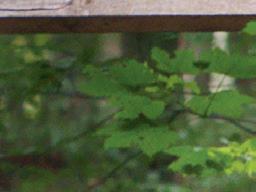











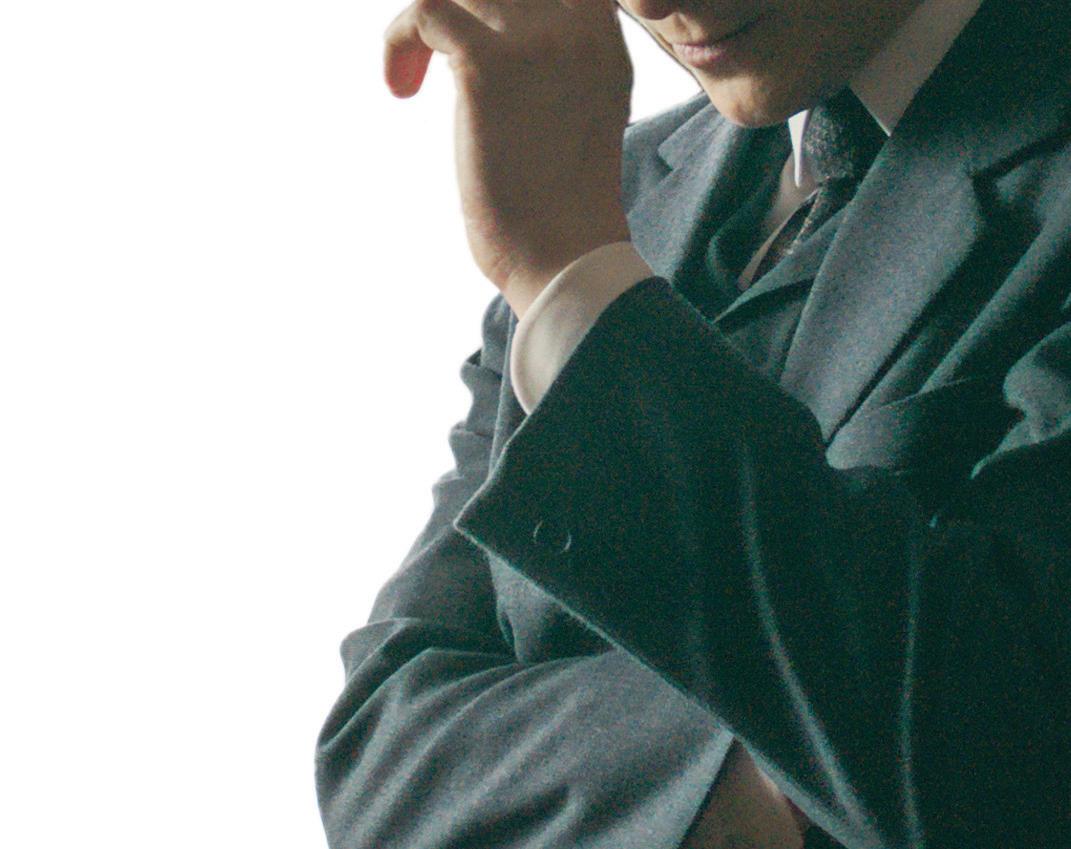


Klaus said, ‘I know two guys who are really suffering, would you like to meet them?’ We met a week later in Berlin and everything started rolling for one-and-a-half years, and then shooting began. That’s only a short time for a complicated project. We weren’t able to finance it ourselves, so the whole of ARD, which is a little miracle in these times, decided to do it together, and the nine channels of ARD coproduced together with ORF and [producer] Superfilm.

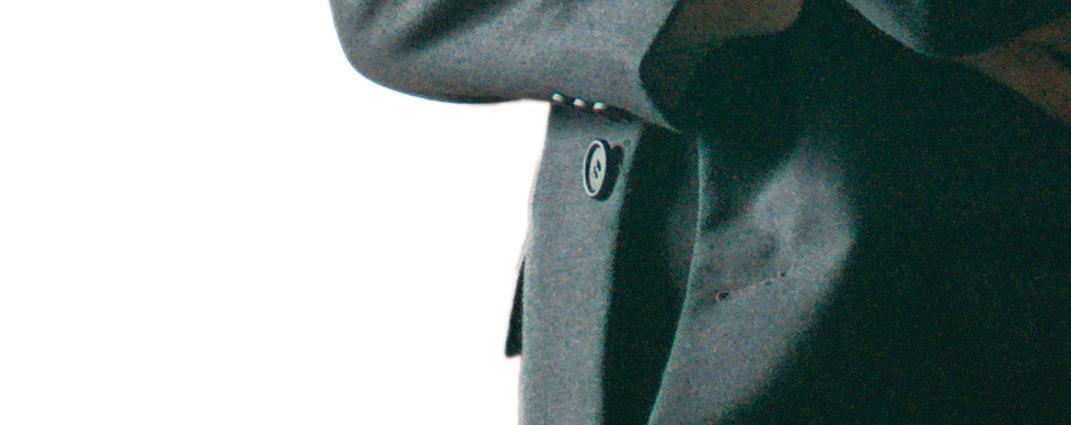

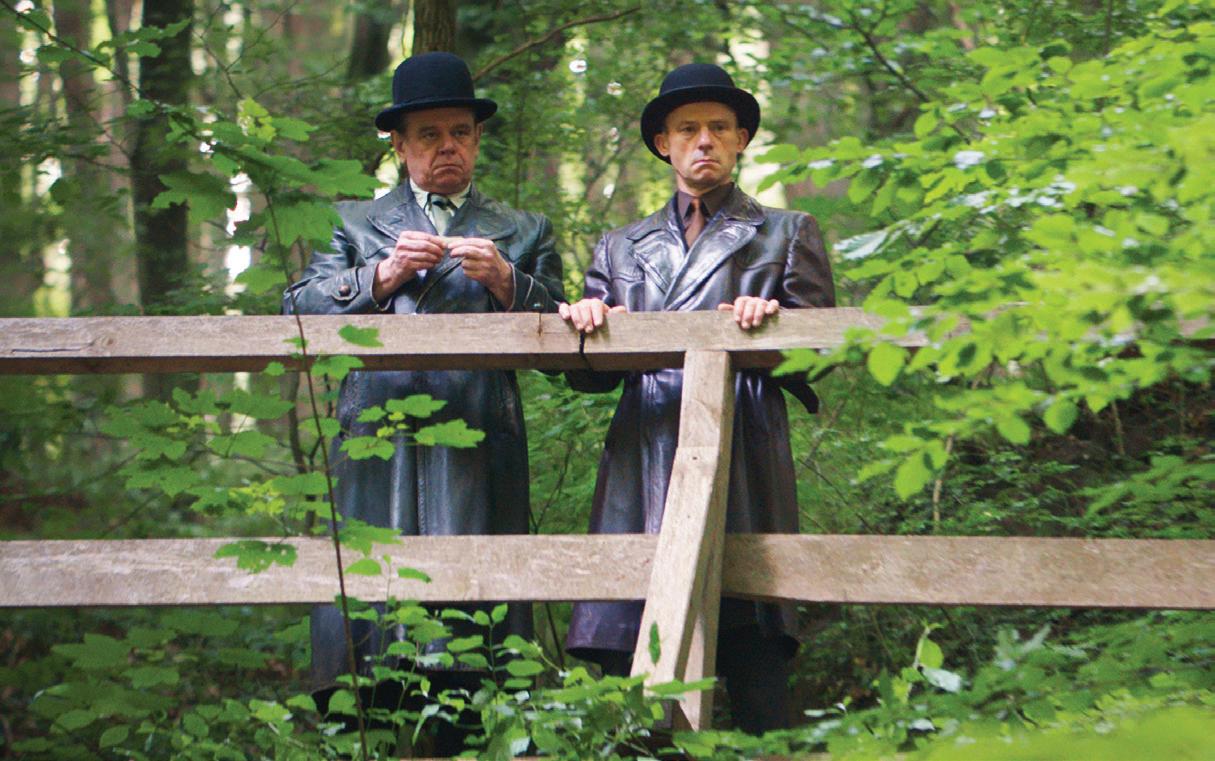


the most important thing was an idea about style and comedy. Kafka was a guy who liked to have a laugh and had a real sense of humour, even though it was a strange sense of humour, as you can see in the show. It was a very joyful collaboration.


Schalko: A lot of Kafka clichés aren’t true, like the idea that the company he worked for was always very dark, like hell. It was the complete opposite – it was a very light place, a lot of writers went there and they all adored Kafka. Another and [producer] Superfilm.




IN FOCUS: Kafka DQ . Spring 2024 30 >
was <
The creative team describe Franz Kafka as ‘the defining writer of our time’
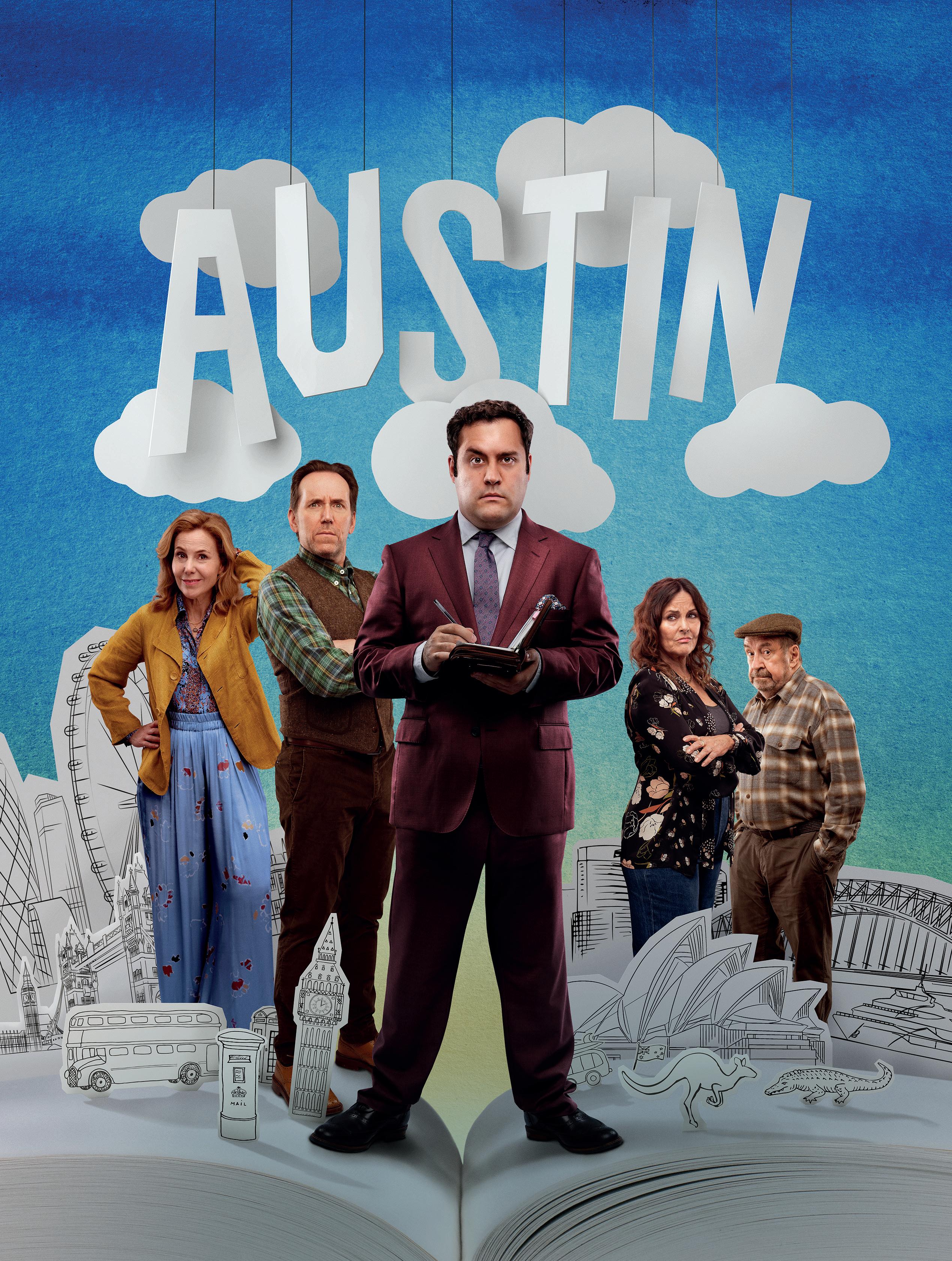 SALLY PHILLIPS BEN MILLER
MICHAEL THEO
SALLY PHILLIPS BEN MILLER
MICHAEL THEO
Born in Prague, Germanspeaking author Kafka died in June 1924






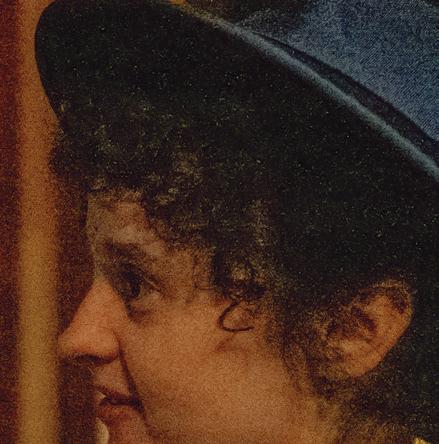

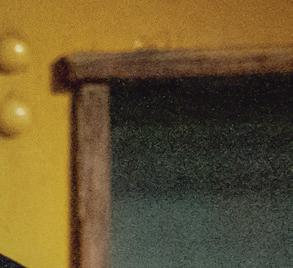
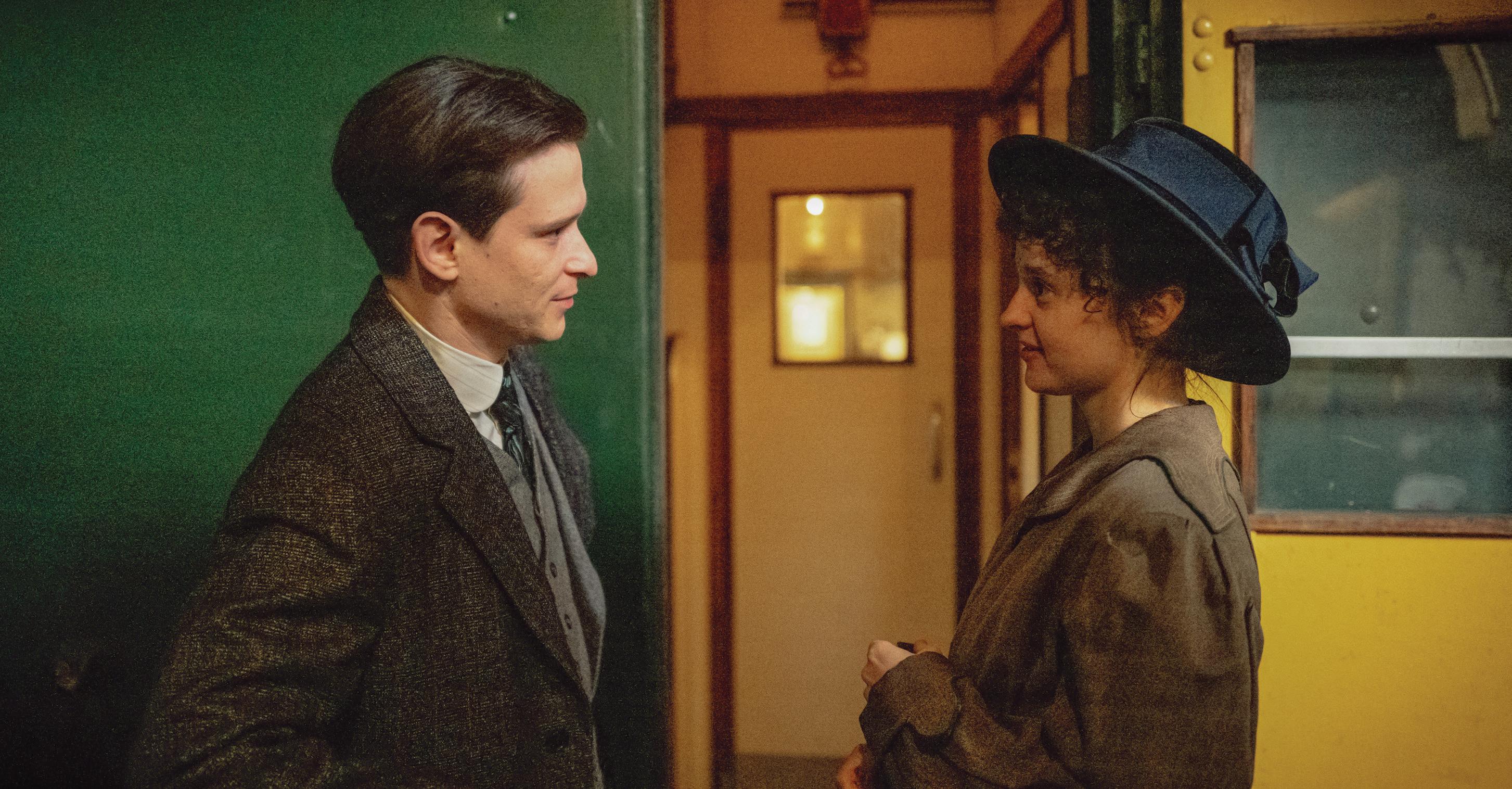
<
cliché is maybe that he was an outsider, which is also not true because he had a lot of friends and knew a lot of famous people in the world of literature. He was not sitting at home all day writing and suffering from what he wrote. He was a very social man with a lot of friends.
The period drama also drew inspiration from an unlikely contemporary source.
Kehlmann: The stylistic model for it was a show that was very big when I wrote this and I still really love: Fleabag. You have a story that could be depressing but, from the style and the way it’s told, it’s hilarious. That’s why we decided to use a device from Fleabag, in which the main character turns to the camera and talks to the audience. In Kafka, he never does that, but everyone else does. He’s the miracle everyone is trying to solve. I was always aware of that as a model for how to do comedy about a dark topic.
The biggest challenge facing the creative team was how to tell Kafka’s life story, a task mirrored in the series by the narrator stopping and starting again, unsure how to begin.
Schalko: We were talking a lot, then Daniel wrote it. It’s not very easy to write a life story, because it’s not a story, it consists of fragments. What do you leave out and what do you tell? A lot of things are not in the series, but we decided the most interesting things are all the things connected to his literature. That was what interested us and what’s maybe different from other biopics.
Kehlmann: You really get to know his writing. We do have the bug [from The Metamorphosis] in episode three, you do see the castle, you see the torture machine [from In the Penal Colony]. We felt like this couldn’t just be something in the background because this is what his life is all about, finding these images. It was incredibly harmonious. We never had a serious argument. We’re still friends. We were always on the same page, and Christian was unbelievably supportive. Sometimes there were notes, like you have to have, and we were very grateful and took them and it became better and better, but there was never any pressing moment. It was one of those times when all the stars seemed to align.
Schalko: The great luck we didn’t anticipate was the Kafka


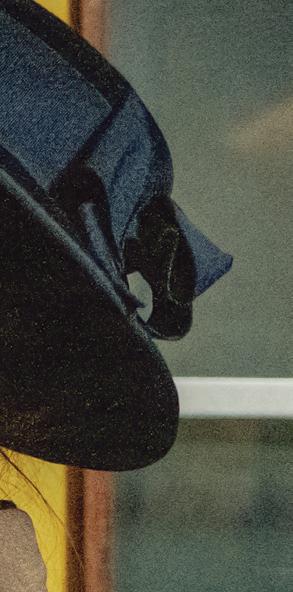
centenary, which made it possible. We had the project long before and we didn’t quite think of it, but the centennial made it possible.
There was also the question of who would play Kafka.
Kehlmann: Joel was such a piece of luck. What he does is just unbelievable. When I talked to people in the beginning, everyone said, ‘Who’s going to play Kafka?’ He’s the only writer who has his own brand. Everyone knows his face, everyone has an idea of his profile, so who’s going to play that? It was such a piece of luck.
Schalko: For eight years – maybe this is why it didn’t happen for so long – I had no idea who should play Kafka. The scripts were perfect, but who would play him? Then Joel came like a miracle. My casting director suggested him – I had worked with him before but I wasn’t thinking about him as Kafka – and Daniel’s friend had mentioned him. So [his name] came from different sides. There was no alternative. It was so clear it would be him, and not just to do with him looking similar to Kafka. It has something to do with soul. He has a Kafka in him.
Kehlmann: A huge highlight is Liv Lisa Fries, who plays Milena, Kafka’s great love in an affair that only lasted four days. Lars Eidinger is [poet Rainer Maria] Rilke. Christian Friedel is Franz Werfel, and he is in [2023 film] The Zone of Interest. Even in the fourth episode, Kafka’s landlady is played by the great Katharina Thalbach and it’s a very small part. It has a lot to do with David – when he asks people, they come and there are very few directors who can do that now, who can ask Lars to do just one scene and he will do it.
Kafka stands out as an example of edgy, risk-taking television – and as an example of why traditional broadcasters still have a future in the age of streaming.
IN FOCUS: Kafka DQ . Spring 2024 32 DQ
Granderath: It’s necessary to do projects like this and to be aware of cultural heritage, and to do it in an entertaining and original way. It’s really fun to watch the actors, it’s something I didn’t expect, being so perfect. It’s a joy to see that because for me, [Stach’s work] is the best biography I ever read and it’s worth reading it beside our series. And the future? As long as something like Kafka is possible, I’m happy to be part of the future. :
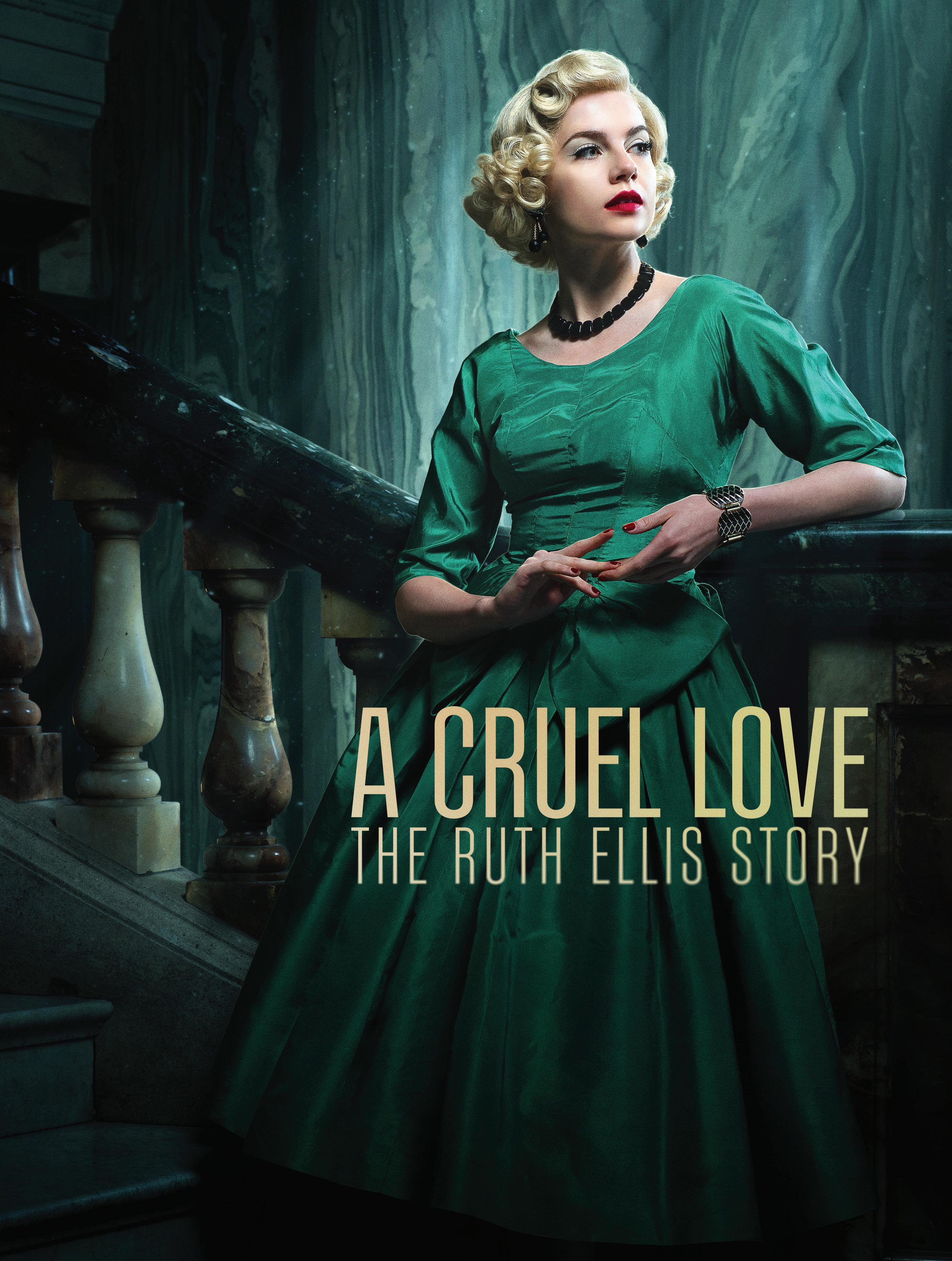

IN CRIME
Filmmakers – and twin brothers – Damiano and Fabio D’Innocenzo write, produce and direct Dostoevskij, a melancholic police thriller about a detective hunting a serial killer. They speak to DQ about their debut series, their partnership and why they won’t tell viewers what to think.


With their first three feature films, Italian directors, screenwriters and twin brothers Damiano and Fabio D’Innocenzo have built a reputation for telling stories with a unique voice.




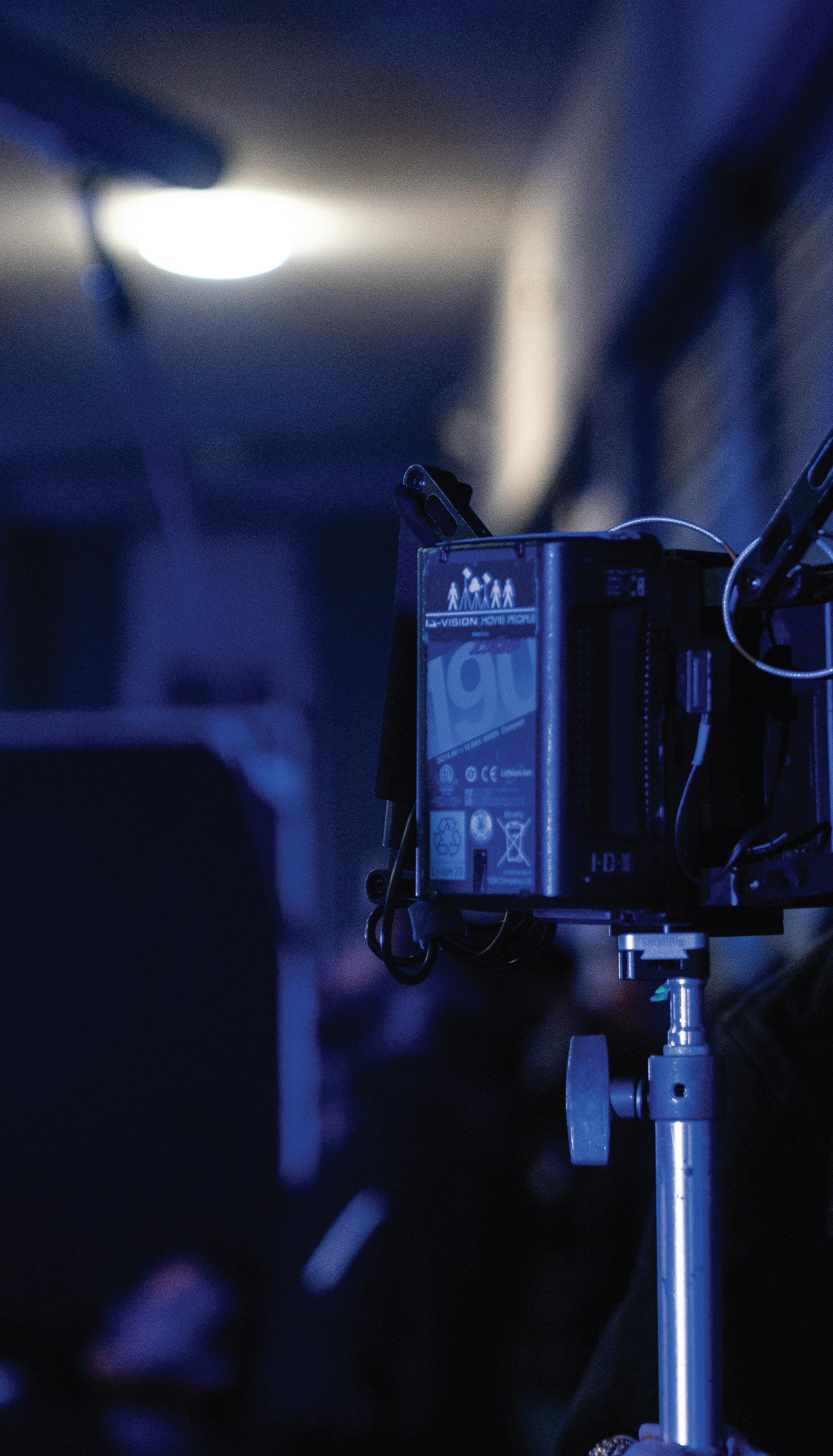





Their 2018 debut, La terra dell’abbastanza ( Boys Cry follows two childhood friends who become hitmen under the stewardship of a local clan leader, while 2020’s Favolacce ( Bad Tales ) revolves around a group of families whose seemingly uneventful lives hide who they really are – and their façade could be brought down at any time. Their third feature, 2021’s Latina , told the story of a happily married dentist who finds a girl tied up and gagged in his basement, asking for help.

), revolves America capital


Both Boys Cry and Bad Tales debuted at the Berlin International Film Festival, where the latter won the Silver Bear prize for best script. And this year, the brothers returned to the German capital with their first television project.


DIRECTOR’S CHAIR: Damiano and Fabio D’Innocenzo

DQ . Spring 2024 35
Fabio (right) and Damiano D’Innocenzo on the Dostoevskij set
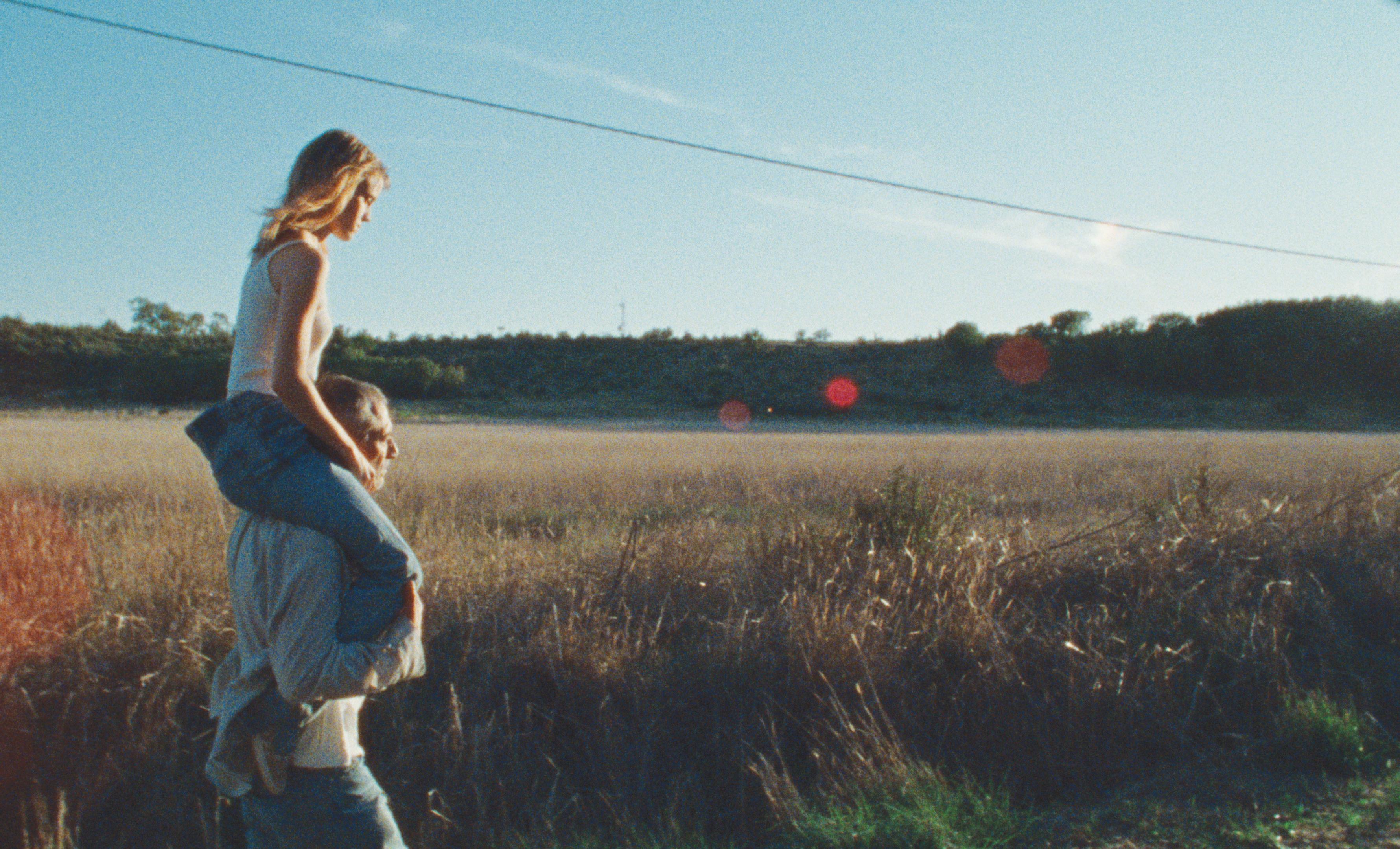
< Six-part series Dostoevskij ( Dostoyevsky ) follows the life and investigative work of Enzo Vitello (played by Filippo Timi), a policeman with a dark past who becomes obsessed with the titular serial killer, so called because of the letters – filled with gruesome details – they leave at their crime scenes. Haunted by the killer’s words, Enzo is pushed to embark on a dangerous solo investigation, getting closer and closer to the disturbing truth.
Produced by Sky Studios in association with Paco Cinematografica, the show also stars Carlotta Gamba, Federico Vanni and Gabriel Montesi. NBCUniversal Global Distribution is handling international sales of the series, which will premiere in cinemas in Italy before airing on Sky this summer.
Here, Damiano and Fabio tell DQ about transitioning to TV, how their collaboration works and what they want viewers to take away from their filmmaking.
Dostoevskij marks your first television series. What was the experience like?
“We made up a story in 10 minutes and then we sent Sky the idea in a WhatsApp message – and they didn’t block us, which meant they accepted it.
Damiano D’Innocenzo
”
Damiano : We worked with acts in a mathematical way, with each episode made up of four acts. As we are self-taught, we started reading a text by Pamela Douglas, a manual on how to write or make TV series. But the truth is we started with a TV series divided into four acts because at the time, there were three pauses [for adverts] so you needed four acts for each episode. But we didn’t start saying, ‘OK, a TV series is a longer film.’ No way. A series has its own rules and you have to know the rules if you want to work on the depth of the characters, and have respect for the medium and respect for the audience.
As self-taught filmmakers, have you broken the rules of traditional television production?
Fabio : I do believe the very fact Sky enabled us to shoot this TV series is a way of breaking the rules. We have our own twisted way of looking at things, our own vision. We define it as a melancholic dirtiness.
How did you partner with Sky for the series?
Damiano : Sky came to us the very day after we won the prize in Berlin for the screenplay
of Bad Tales . They came to us and we signed the contract. It’s like everything for us at the beginning of our career – it starts and ends at the Berlin Film Festival. We talked with Sky and we asked what kind of series they wanted. We were open to everything, and they said they wanted a thriller, a crime story. We made up a story in 10 minutes and then we sent them the idea in a WhatsApp message – and they didn’t block us, which meant they accepted it. It was very similar to a coming together of two artistic visions, because they never asked us for a treatment or synopsis. It was a far-sighted vision. They could understand the way we work. It’s a sign of being great producers, when people know when it is better to interfere and when not to.
What was your interest in telling this story and in Enzo as a character?
Fabio : The main interest for us was to tell a story where the basic principle was the opportunity and possibility of change. Today, it’s not something that is very common. We are afraid of change and deprived of any change. So the story of Enzo is he hunts this killer because he has to, but also because he wants to. This need to hunt is what keeps Enzo alive. I always loved films where there is a second chance. Once upon a time, it was quite common; now we are too nihilistic to have that.
You describe it as a thriller, but it’s very slow-paced and takes its time. Is that your style or just the way you wanted to tell this story over six hours?
Damiano : I do not believe in a style in cinema. Maybe in music, but style in cinema is something that is a distraction for the viewer. We didn’t make a series that was in line with the times and the pace that is required by today’s society. We are very happy we made an unfashionable series that goes against today’s fashion, like an Eastern European film from the 1970s. It’s not our style but our way of dealing with the images. We want the viewer to live and dwell in the images. Otherwise, with another pace, the viewer cannot interfere with the image, they don’t have the time to absorb it and make their own interpretation of it. They don’t have time to give something of themselves to the image. That’s what we want to do. We want to be generous with the viewers
DIRECTOR’S CHAIR: Damiano and Fabio D’Innocenzo DQ . Spring 2024 36
The series has a distinctive grainy look
so they can formulate something. They can add something of themselves into the image.
How did you decide on the location for the series, which features lots of run-down buildings and vast landscapes, and create its grainy, textured look?
Fabio : Firstly, we shot in Super 16 film. The setting and the places of the film are strictly in line with the initial idea we had that the story is of the winter of a human being. These settings and places and human relations cut to the bone, and the setting is very opaque. It’s a very melancholic place. We wanted to have strong dialogue between the story and the setting. In the world, there is only the possibility of one state of mind, and within that state of mind, change is possible. We were born in the periphery in the slum areas [of Rome] and have the privilege to do this great, fantastic work of being directors, so we are evidence and proof and witnesses that it’s not places that make human beings, but human beings that make places. This wasteland is where the change is possible. It’s like the story of a flower that is blooming.
You write, direct and produce. How do you do your work – and how do you work together?
Damiano : We are totally together. We are totally united when we work. We spend all our time together, not leaving or empowering one task to the other. It’s a harmony – and it does not end on set. Rather, we keep working once shooting is over for the day. We keep working on drawings, a kind of storyboard, drawings with colours like miniature paintings. Our approach to cinema is like when a child has a blank page in front of them, it’s total freedom. You can do whatever. The first thing we do is exclude or remove anything that the camera is not going to visualise. That is important;
that is our modus operandi. In order to work in this way, we need to stay together, to have a common and constant flow of verbal and nonverbal exchanges, and we are very happy about that because it allows us to spend a lot of time together. If we had another job, it would be different. We once worked as gardeners – each one of us had our own garden and we only met at night.
How do you think viewers will react when Enzo reveals some difficult secrets about himself? Is he as much of a villain as the person he is hunting?
Fabio : We don’t want anything [from the audience]. We wrote and directed the series so we don’t expect a specific reaction from the audience. Our approach to the AV world is absolutely democratic. We want the viewer to
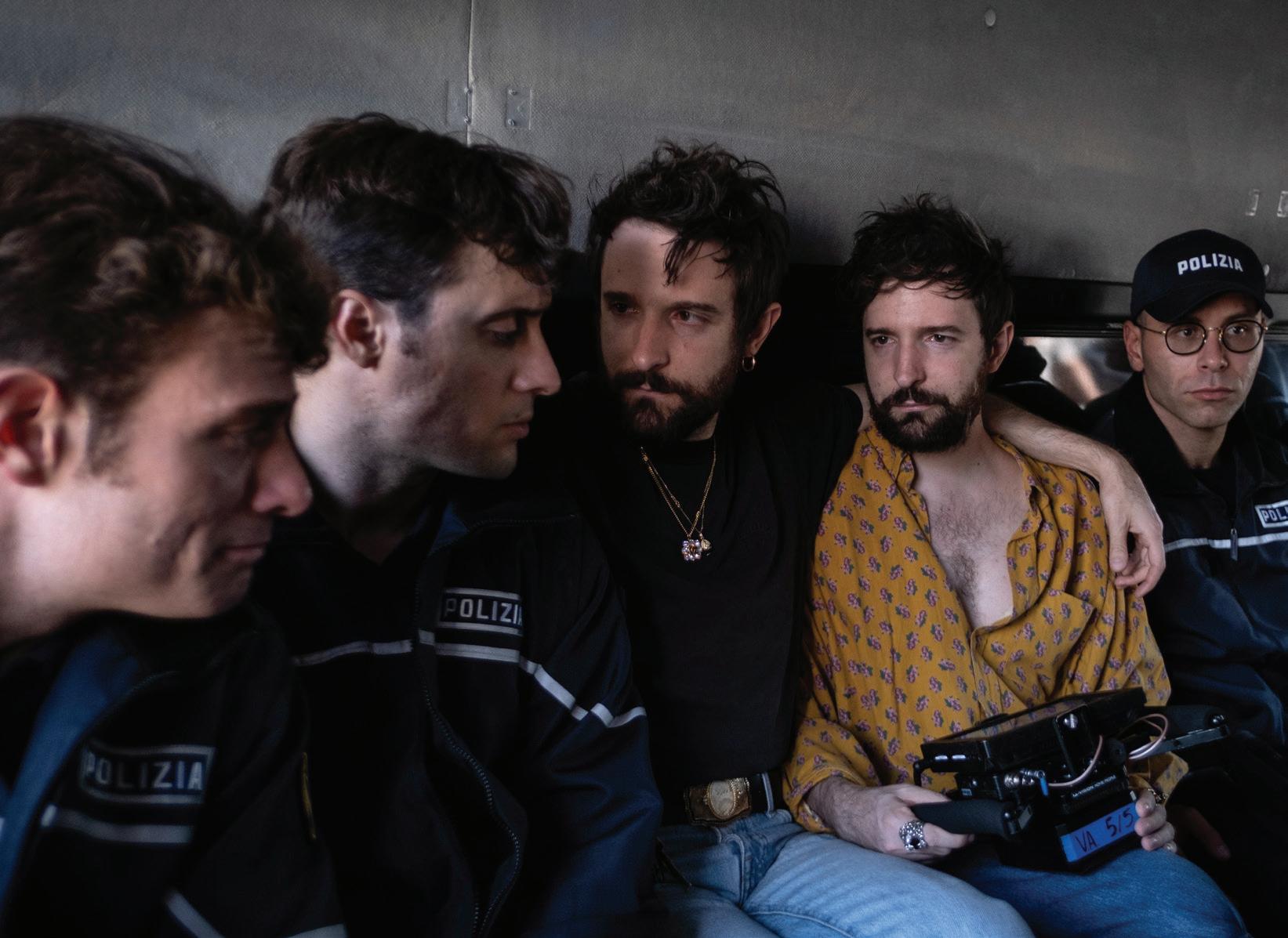

express or formulate or conceive their own idea about what they’re watching. It would be easier to ask the viewer to have a certain idea, but I like a world and characters that have contradictions, that are maybe shocking sometimes. So as storytellers, we need to have the courage to create characters that are complex and complicated, because the world is complicated. The world is full of chaos, and so are our characters. What we need to keep and preserve is the autonomy of thought, free thoughts about things, so we are not going to say what someone should think about a character.
CHAIR: Damiano and Fabio D’Innocenzo DQ . Spring 2024 37 DQ
DIRECTOR’S
Filippo Timi leads the cast
The D’Innocenzo brothers have made three feature films together


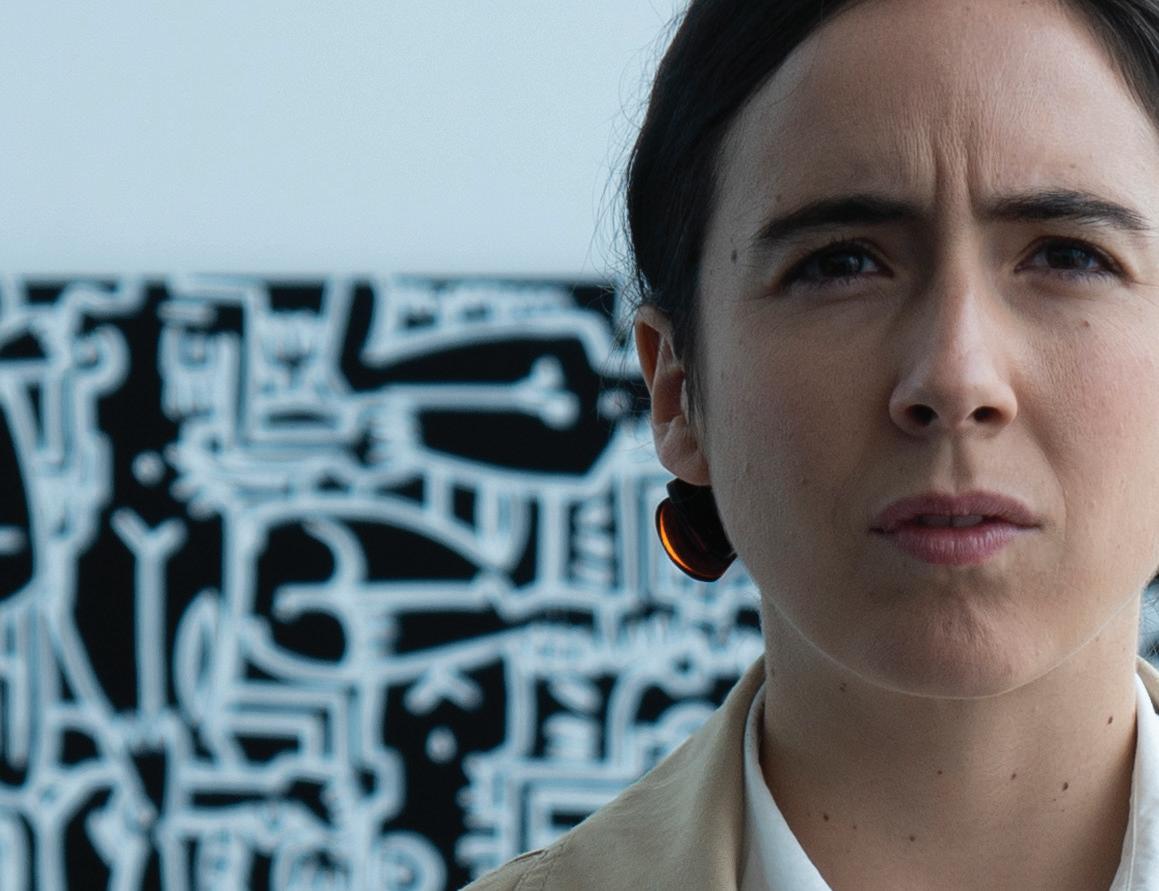
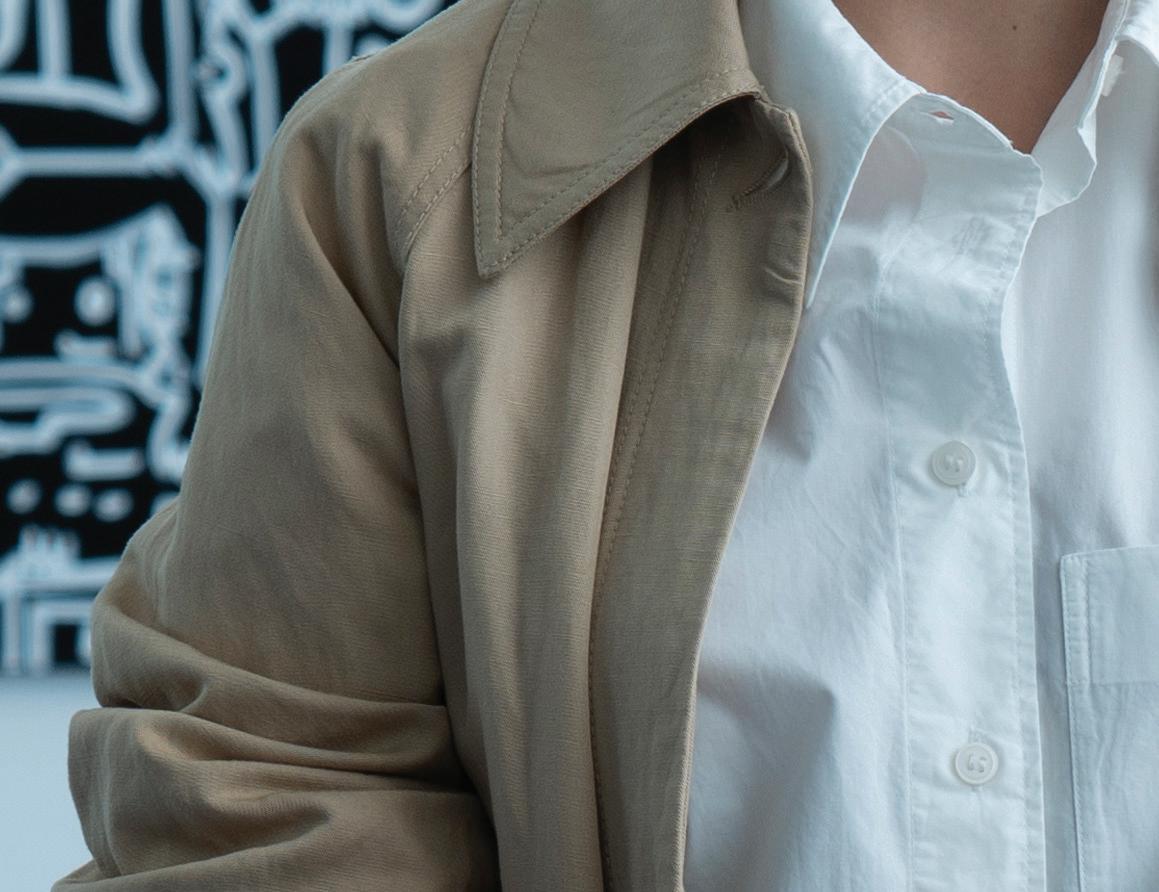
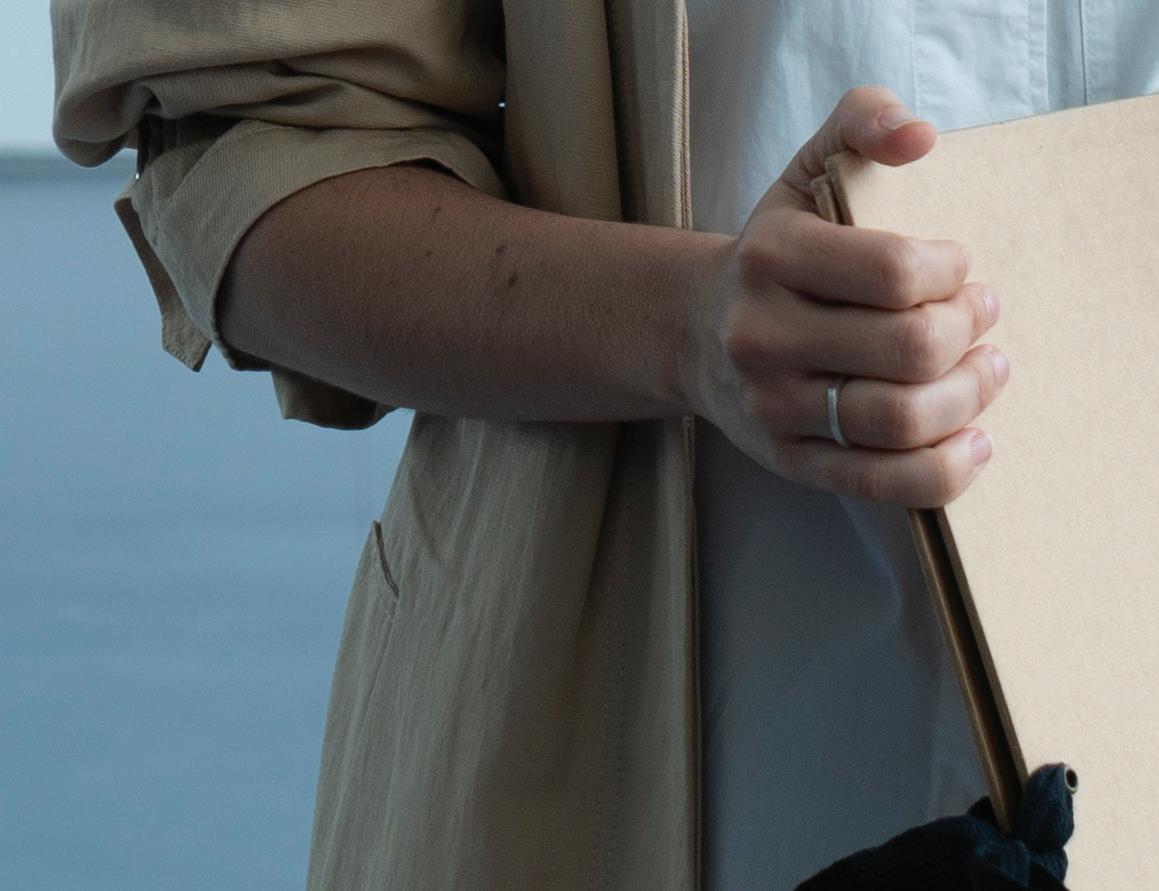
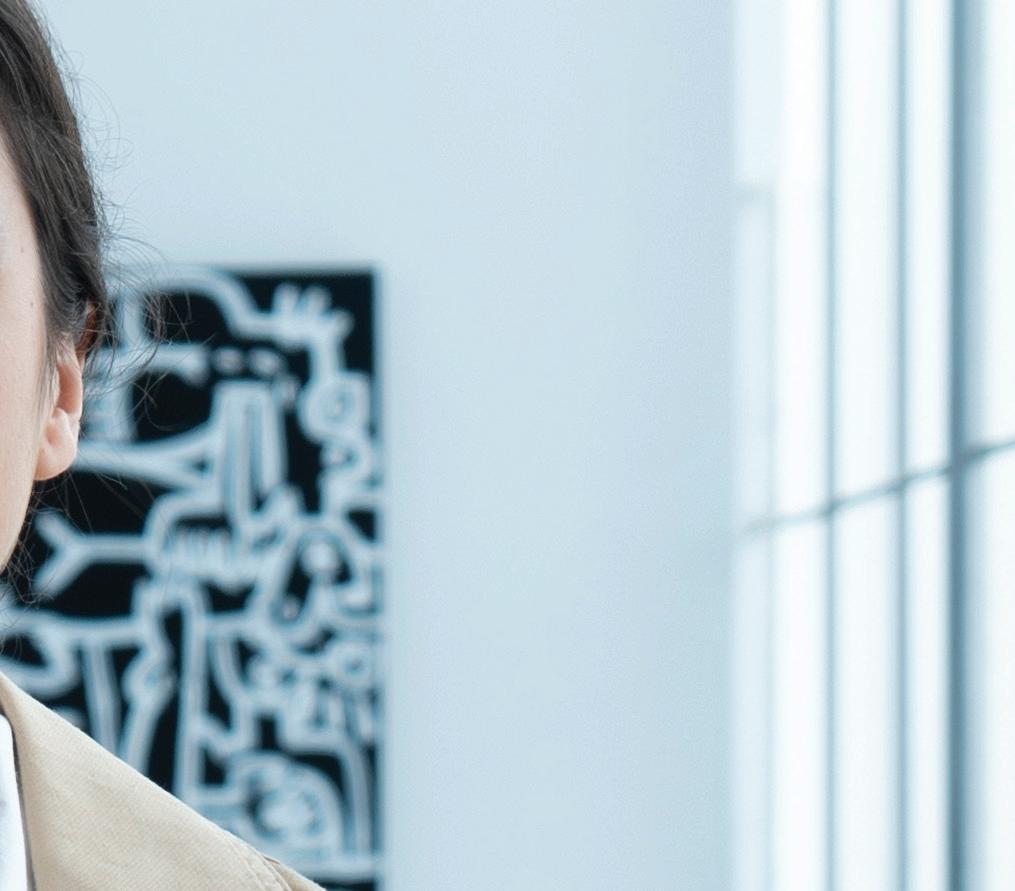
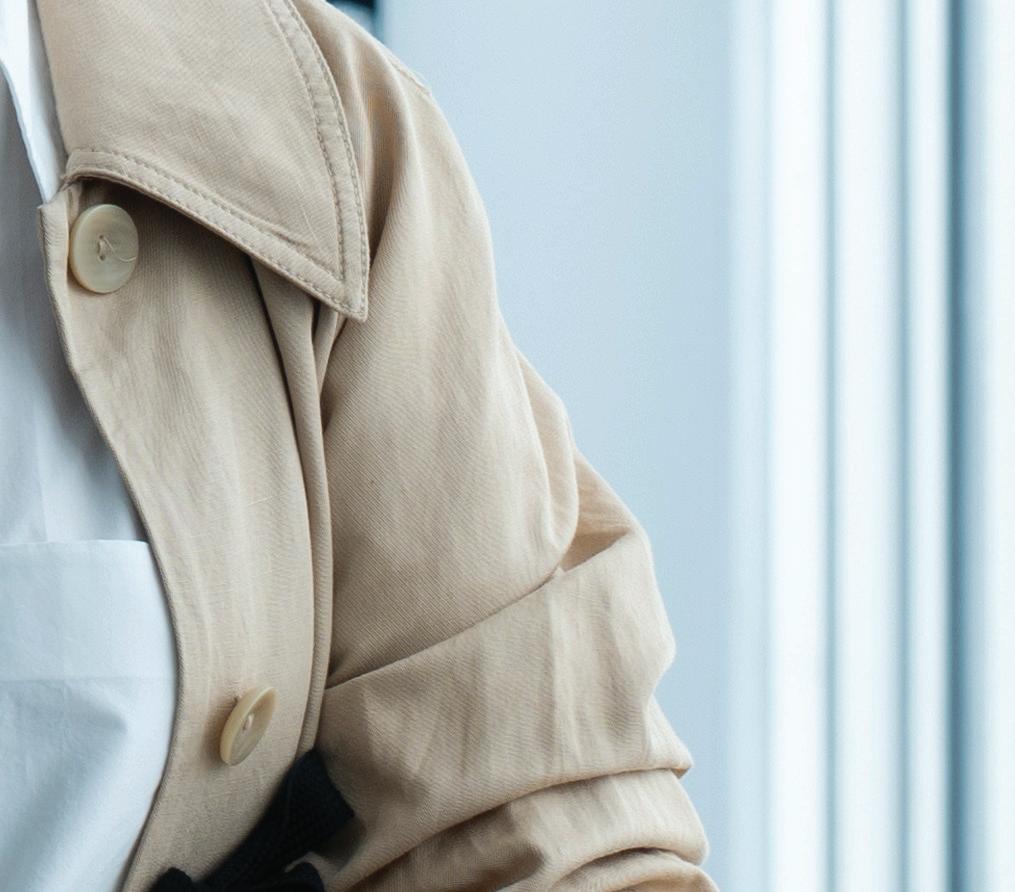
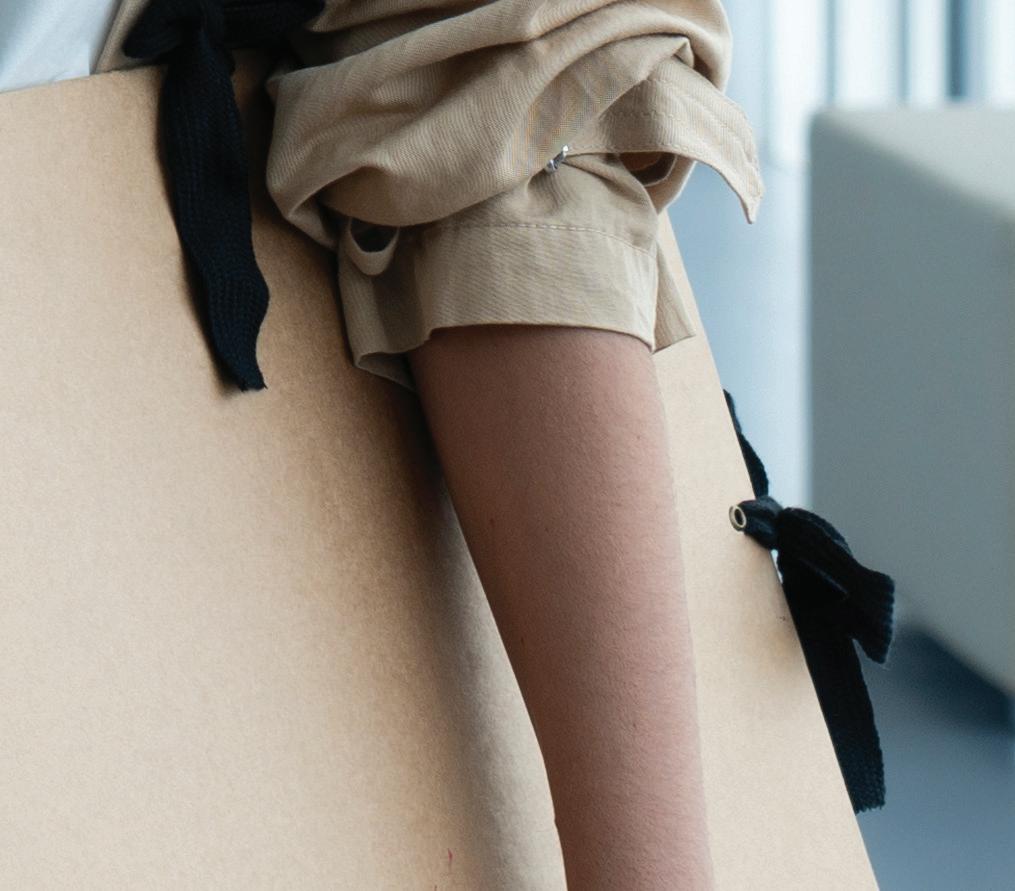
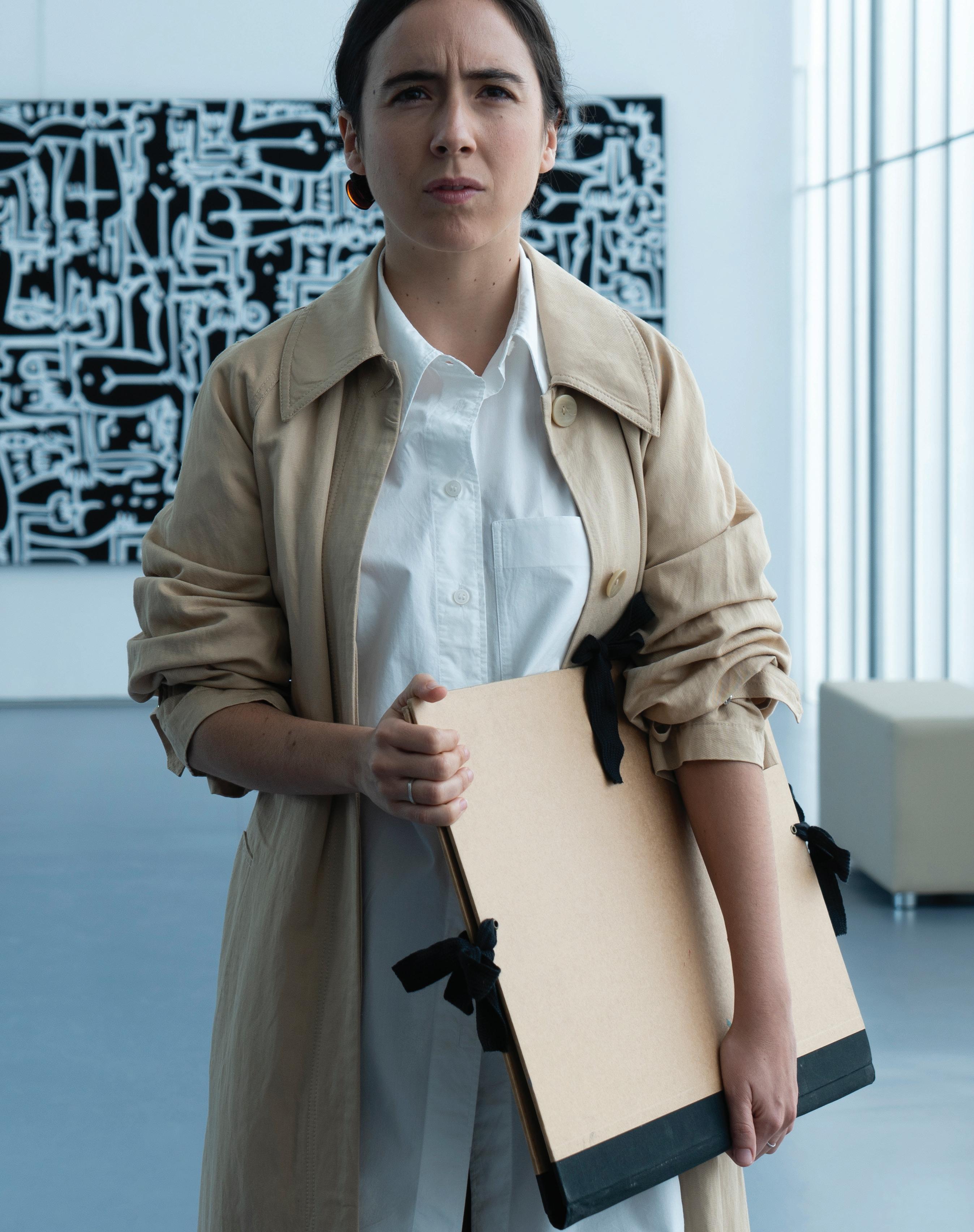
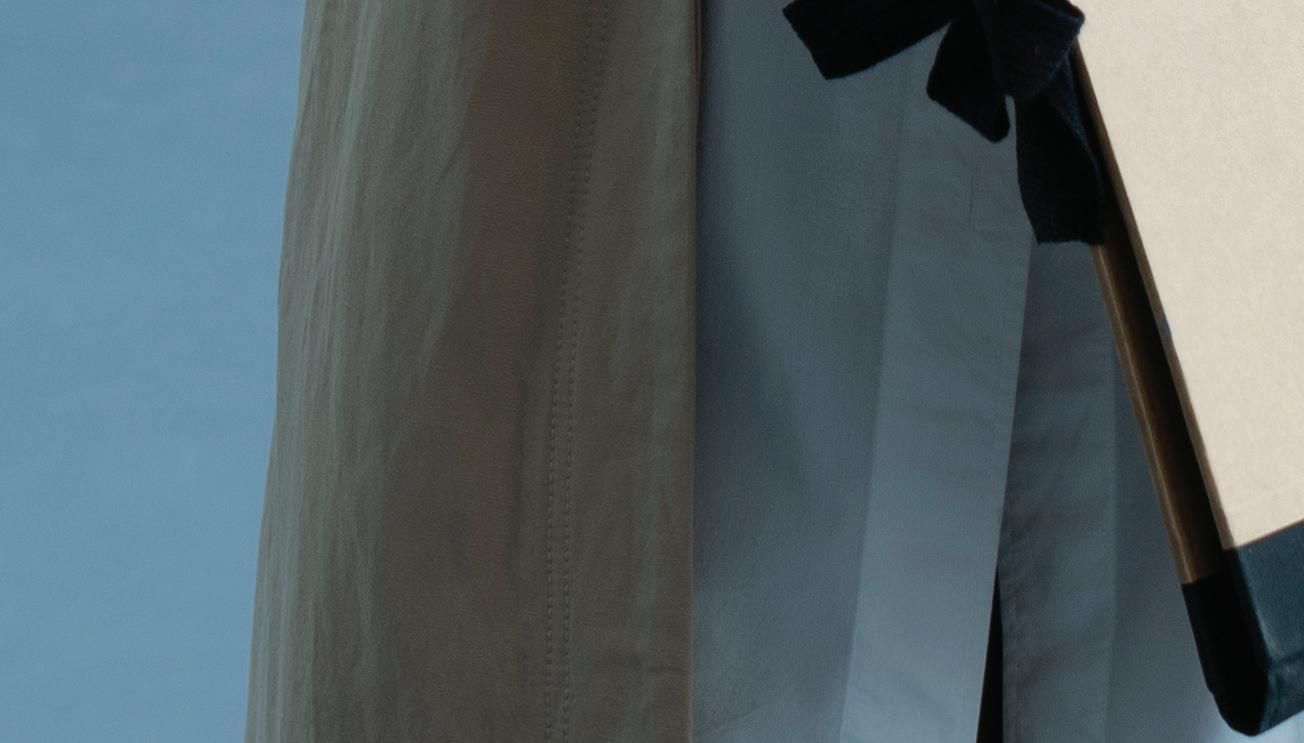


 Macarena Sanz as Ana in Spanish series Déjate Ver (Show Yourself)
Macarena Sanz as Ana in Spanish series Déjate Ver (Show Yourself)
SHOWRUNNER: Álvaro Carmona

Déjate Ver (Show Yourself) writer and director Álvaro Carmona takes DQ inside the making of this idiosyncratic dramedy, in which the protagonist begins to disappear, forcing her to reconnect with a world she doesn’t quite understand.
It’s a medical diagnosis no one would ever expect to get. But when artist assistant Ana is told she is suffering from early-stage invisibility, she’s not shocked. It’s just a condition she thought only affected older people.
Still, the disappearance of a single toe prompts Ana to change her ways and start life all over again, in a hugely original, dystopian and sometimes absurd comedy-drama from award-winning filmmaker Álvaro Carmona (Gente Hablando/People Talking).
Fading
force
Screening at Berlinale and Series Mania after its debut on Spain’s Atresplayer last year, the eightpart series is written and directed by Carmona, with Macarena Sanz as Ana, Joan Amargós as her brother Tomás and Irene Minovas as her best friend Álex. The show is produced by Buendía Estudios and Atresmedia TV, with Atresmedia TV International Sales distributing.
Here, Carmona tells DQ about the background to the story, his close partnership with Sanz and how his experience as a stand-up comedian and writing for late-night television influenced the series.
What are the origins of Déjate Ver?
As abstract as it may seem, the idea was to create a series whose leitmotif was ‘how strange life is nowadays,’ even before considering framing it in the world of art, imagining the character of Ana or finding the tone.
I often see things that nowadays we have accepted as normal because we have gradually arrived at them. However, if you step back a bit and look at them from a different perspective, you realise they are crazy. Hence the idea for a series that looks at our reality from a different angle, one that is just a little bit distant, just enough for us to see ours with some distance.
How do we meet Ana, and what can you tell us about her journey through the series?
Well, it’s difficult to talk about her journey without giving away too many spoilers. I’m afraid I can only say that Ana is the right hand of Bassil, one of the most important conceptual artists in the world. Ana is organising a new exhibition when we discover that something ‘supernatural,’ for lack of a better word, is happening to her in our world, though not so much in the world where the series unfolds.
What were the main themes or ideas you wanted to discuss?
The series explores various ideas: the concept of identity, technology, artistic integrity and family. However, the overarching theme I aimed to permeate throughout the series was the need to feel seen; the pursuit of recognition, and the frustration and absurdity that surround it.
How did you want to balance the blend of sometimes absurdist comedy and dystopian drama?
Well, I guess it was a matter of having the tone very clear from the beginning. When it came to writing, I encountered many challenges, but that was never one of them. With a clear understanding
>
DQ . Spring 2024 39
SHOWRUNNER: Álvaro Carmona
of the feeling the world surrounding Ana’s character should evoke, I always had the dramatic compass, so to speak, well in place. As for comedy, coming from the stand-up world and writing for late-night TV have given me a good intuition for anticipating which lines will work and which won’t.
The series has been compared to Black Mirror. Were you inspired by anyone or anything in making Déjate Ver?
The influences have been more negative than positive because I didn’t want Déjate Ver to resemble or have a similar tone to existing works. So when writing, I always tried to steer clear of anything that sounded like a cliché or reminded me of another series. I understand the comparison with Black Mirror since technology is present in both projects. However, in Déjate Ver, the intention was for technology not to be the protagonist of the plot. Instead, like how we experience it today, it is a constant presence accompanying the characters.
How would you compare this project to the other series and films you have worked on?
Are there common themes among them?
One of the rules I set for myself before starting to write was that the series wouldn’t resemble anything that already existed, especially not Gente Hablando, my previous project. Obviously, I assume there’s a certain style of dialogue or filming that anything I do will inherently have. However, both formally and in terms of themes, I wanted to continue growing as a director

The show is produced by
and screenwriter and explore new territories compared with Gente Hablando
What was the writing process on the show? Tough. Writing is always very challenging. I had the immense fortune that both Atresmedia and Buendía Estudios believed in me wholeheartedly. Despite having only a pilot, they gave me the trust and space to discover the story as I wrote it. At first it was a bit daunting, but looking at the eight episodes now, I believe the series would never have reached the places it has if I had to define everything from the beginning. I know it’s an unconventional way of working, but it suits me best. I hope I can always write like this because, although I acknowledge it’s somewhat stressful, it’s much more rewarding in the long run.
And what kind of visual style did you imagine for the show? How was this achieved through the camerawork and production design? I’m fortunate to have a very close relationship with Robert Carrera, the director of photography, so while I was writing, we were gradually developing the visual world of the series. By framing the series in a dystopian world, we ran the risk of getting carried away and creating a futuristic setting, something we wanted to avoid entirely. The idea was that the dystopia would always be in what the characters say. If someone watches the series with the sound muted, they should never imagine that it takes place in another universe.
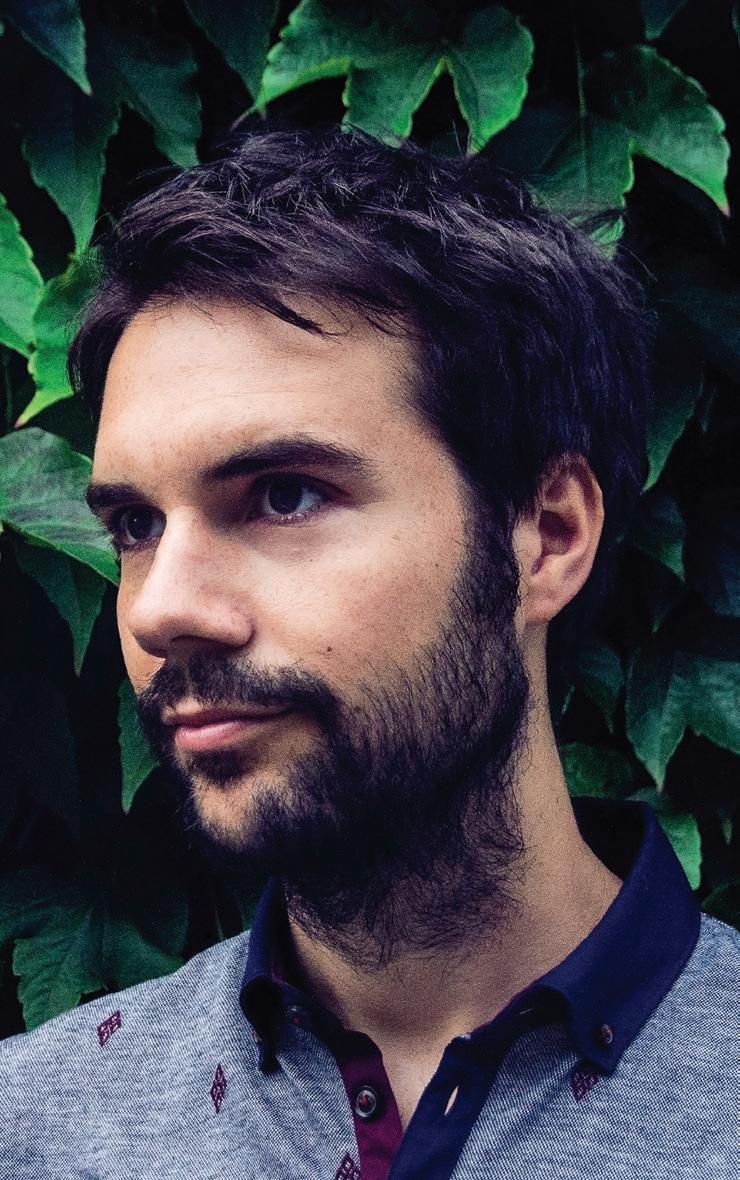
The idea was that the dystopia would always be in what the characters say. If someone watches the series with the sound muted, they should never imagine that it takes place in another universe.
Álvaro Carmona
“ ”
Where was the series filmed and did you use a lot of locations during filming?
 Buendía Estudios for Atresplayer
Buendía Estudios for Atresplayer



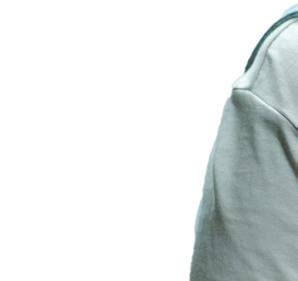
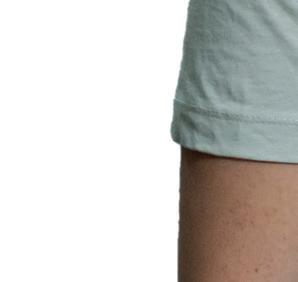

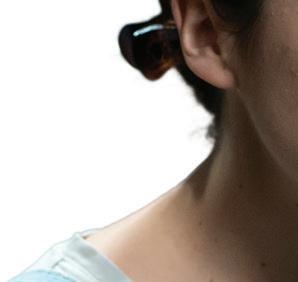

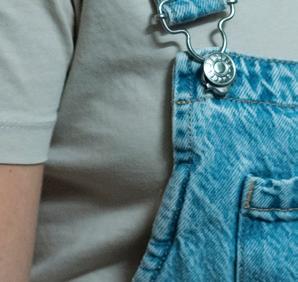

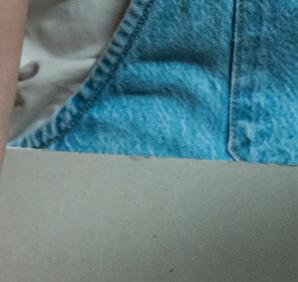
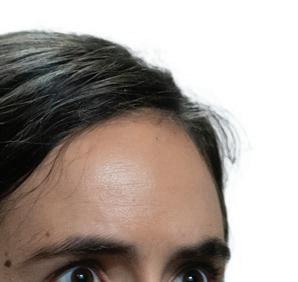


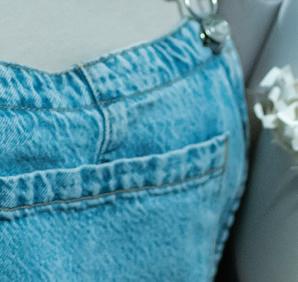
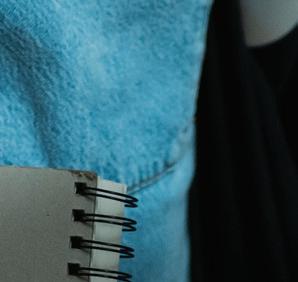



On the other hand, from the very beginning, we were clear the series was about Ana, her sensitivity and her point of view, and everything else had to revolve around her. I feared this might be restrictive in terms of planning the camerawork, but on the contrary, it was very liberating and simplified things a lot. Every time we encountered a doubt or a problem, we would always go back to Ana’s character: what is she feeling at this moment? What does she want to achieve? What is her point of view? And we always found our answer there.



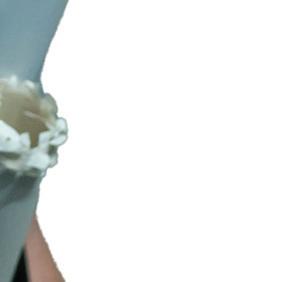





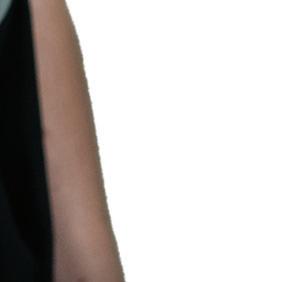
else had to revolve around her. I feared this to achieve? What is her point of view? And we absolute protagonist of the series; her perspective the character and her journey to a very specific level of detail. It was a joy for me to convey
The series was filmed in Madrid and its surroundings, and yes, there were many locations. Furthermore, they were hardly repeated, which was a challenge given our budget constraints. Fortunately, we had the best production team in the world, and somehow they managed to facilitate the shooting of everything, even allowing for a day of reshoots.
Is there a way you like to work with your cast, particularly Macarena Sanz in this case? Working with Macarena has been one of the best experiences I’ve had as a director. Ana is the absolute protagonist of the series; her perspective is the viewer’s perspective, so Macarena had to carry the entire weight of the project on her shoulders. It was a significant responsibility, and even today, I am still amazed at the professionalism, energy and talent she brought to each day of filming.

What have you made of the reaction to the series since it launched last year?
We are thrilled with the reception the series is receiving and how people connect with it. I am particularly pleased that so many people highlight the fact it is unlike anything else. In a world where hundreds of series are released every week, creating something that feels unique is an achievement that we are very proud of.
Why do you think the series might appeal to international audiences?
On a technical level, both Macarena and I are very meticulous, and that allowed us, during rehearsals and later during filming, to fine-tune the character and her journey to a very specific level of detail. It was a joy for me to convey all the intentions and subtleties of the script without leaving any behind, thanks to Macarena understanding the tone of the series and who Ana was from the very beginning.

was from the very beginning.



I suppose it’s because the themes it addresses are universal. From the beginning, we wanted Ana’s existential angst and search not to be tied to any specific place or type of character. Feeling understood, connecting with your family, striving to be authentic in a world designed to be superficial – these are experiences that happen to everyone, whether you were born in Spain, Australia or China.
40 DQ <




AI academy Harness the power of AI
AI can enhance your creativity and productivity, and should be embraced, not feared. The AI Academy runs courses designed to help every part of the content business understand the opportunity, but also the threat, and integrate AI into daily operations.
TheAIAcademy.tv





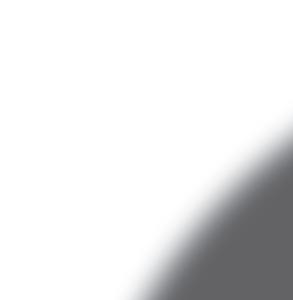





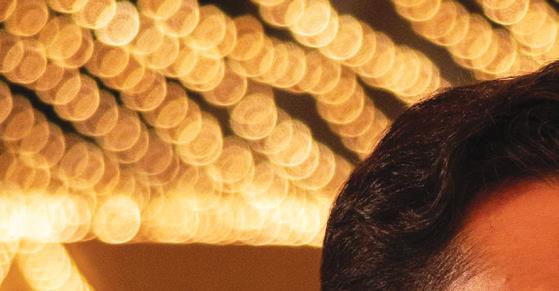
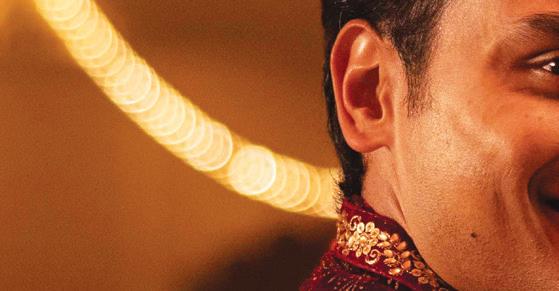
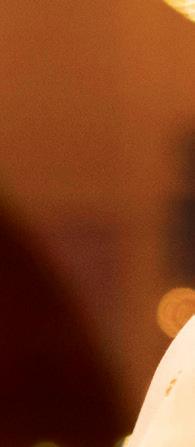
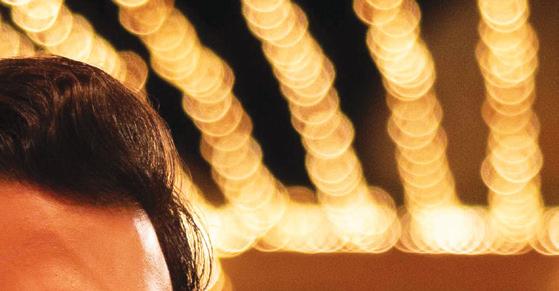

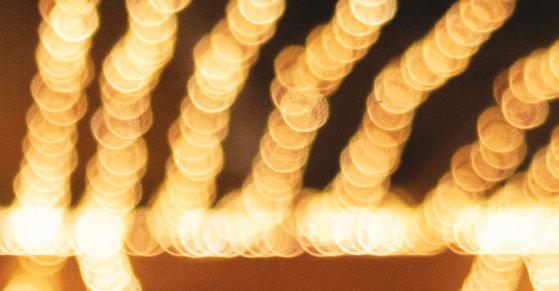
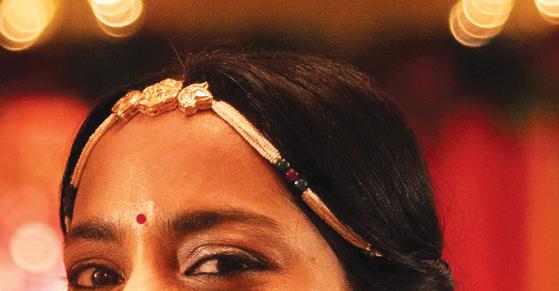






In the first part of the DQ100 2024/25, DQ picks out a range of shows to tune in for and the actors, directors and writers making them, as well as some of the trends and trailblazers worth catching up with.


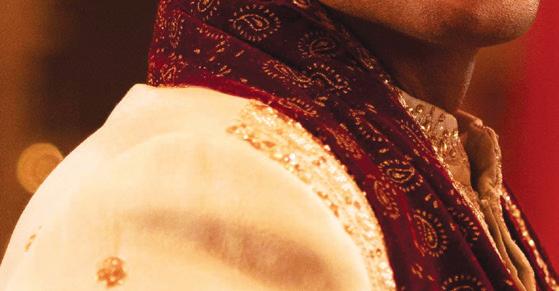



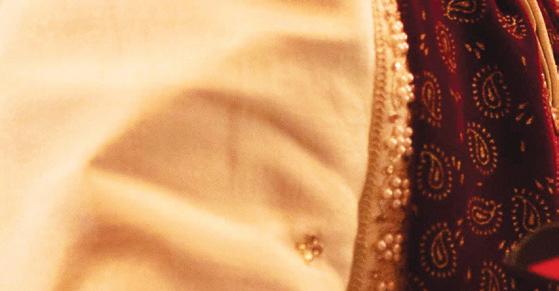

FOUR YEARS LATER
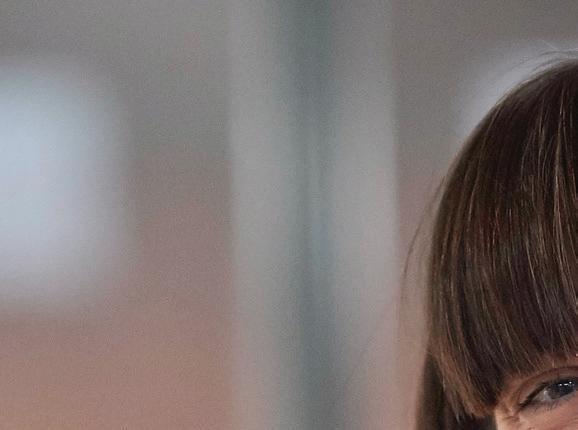
AUTHOR AND SCREENWRITER MADSEN (RITA, FOLLOW THE MONEY) HAS CREATED SIX-PART CRIME SERIES OFF THE RECORD, which follows a team of journalists from a highly respected documentary programme as they unravel a story of injustice and abuse of power, all while their broadcaster threatens to close them down. The series stars fellow Rita alum Mille Dinesen, with Madsen writing alongside Anton Breum. Produced by Nordisk Film for TV2 Denmark and distributed by TrustNordisk, it is due to debut in autumn 2024.

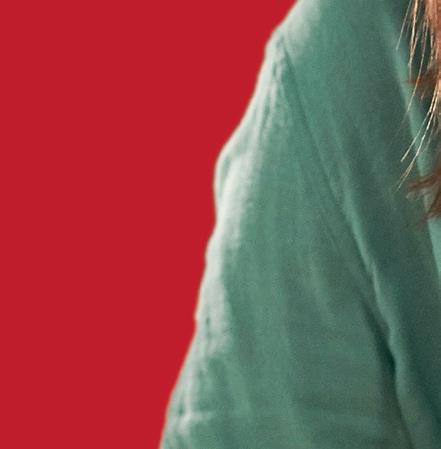

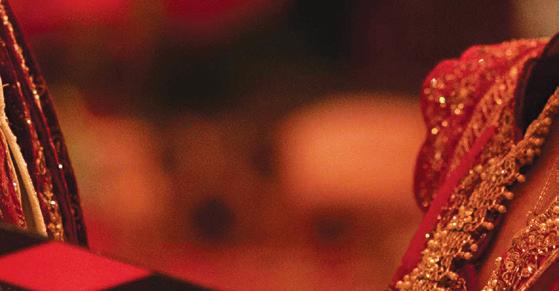
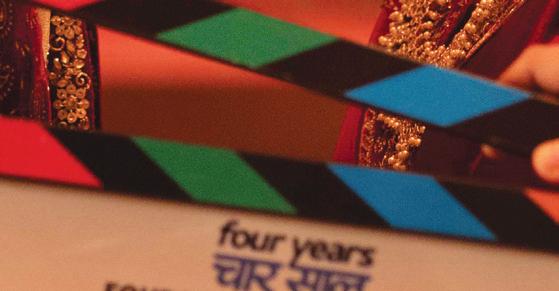

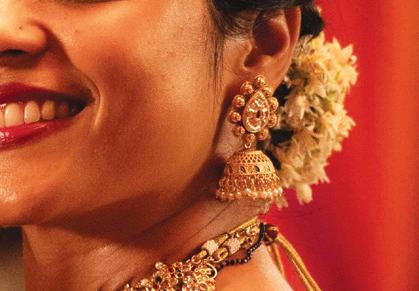



THIS SBS AUSTRALIA DRAMA FOLLOWS THE TURBULENT MARRIAGE OF TWO YOUNG INDIAN LOVERS, Sridevi and Yash (played by Shahana Goswami and Akshay Ajit Singh), as they try to find each other again after being separated for four years. Discussing topics including intimacy, desire and power dynamics in a relationship, the story is told through two timelines, unfolding in two worlds, from two perspectives and in both English and Hindi. Created by Mithila Gupta (Five Bedrooms) and directed by Mohini Herse and Fadia Abboud, it is produced by Easy Tiger Productions (Colin from Accounts).
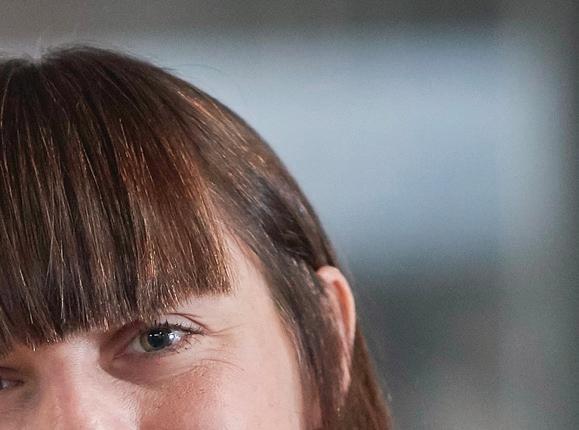
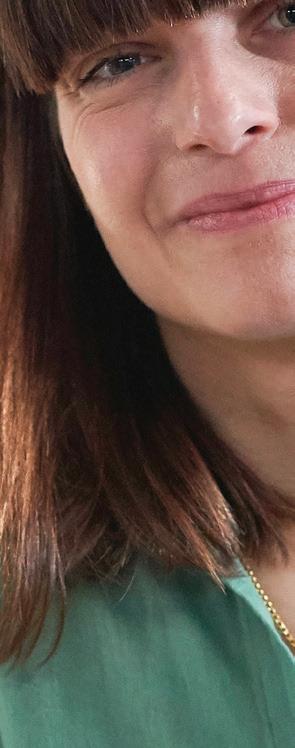
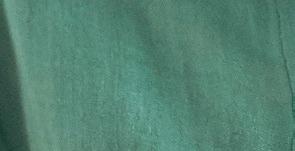
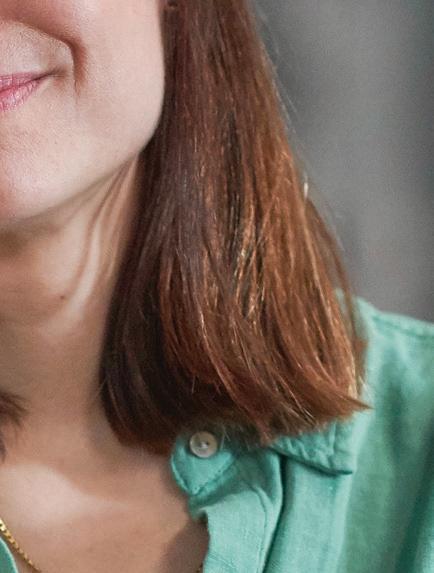
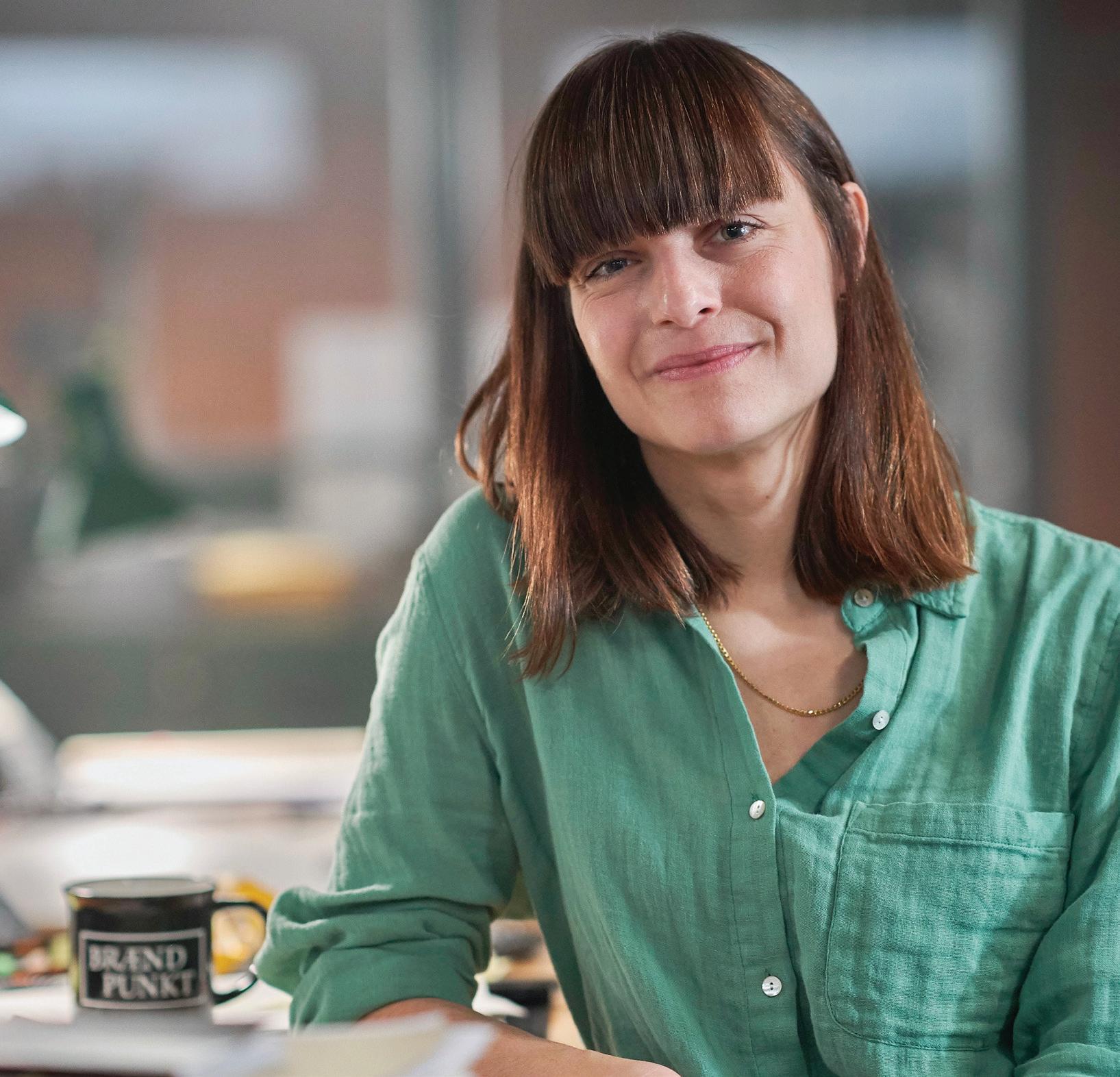



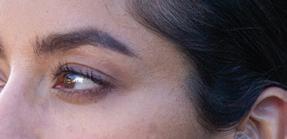

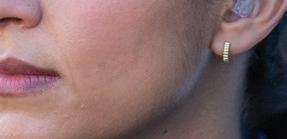


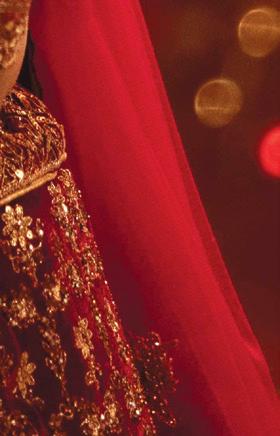
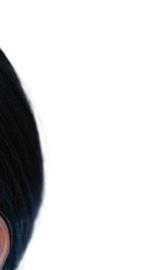
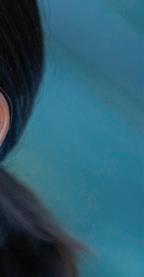
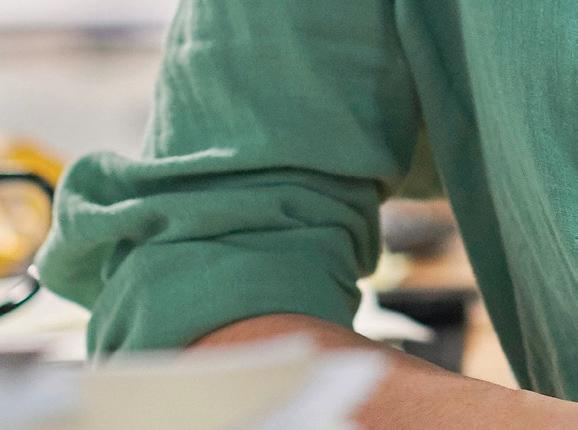
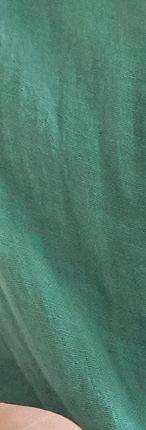

JENNY LUND MADSEN
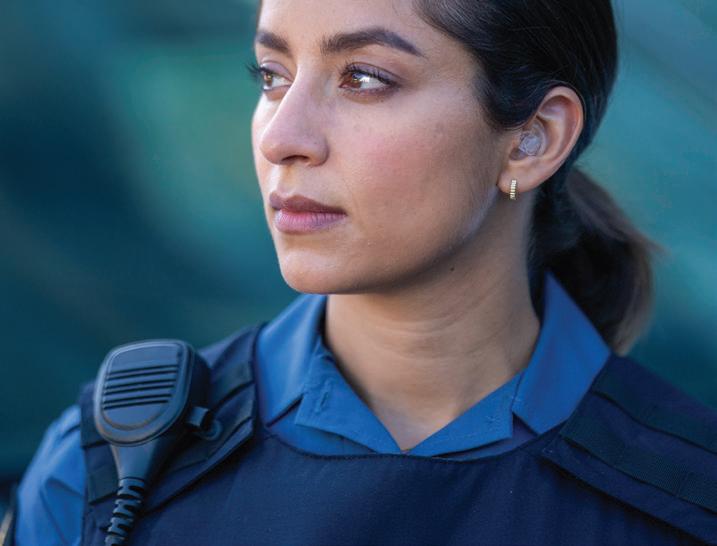
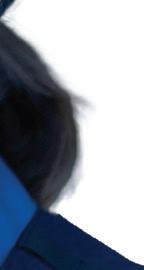
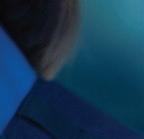
SUPINDER WRAICH
SORT OF, GUIDESTONES AND COPPER STAR WRAICH TAKES THE LEAD IN ALLEGIANCE, a Canadian police procedural from Anar Ali, the creator of medical series Transplant The actor will play Sabrina Sohal, a star rookie officer who must grapple with the limits of the justice system as she fights to exonerate her politician father, in the story of a young woman caught between her allegiance to her flag, her badge and her family. Lark Productions and Universal International Studios are producing for CBC, while NBCUniversal Global Distribution is shopping the drama internationally.
ONES TO WATCH: DQ100 42 100
DQ . Spring 2024
BALTASAR KORMÁKUR
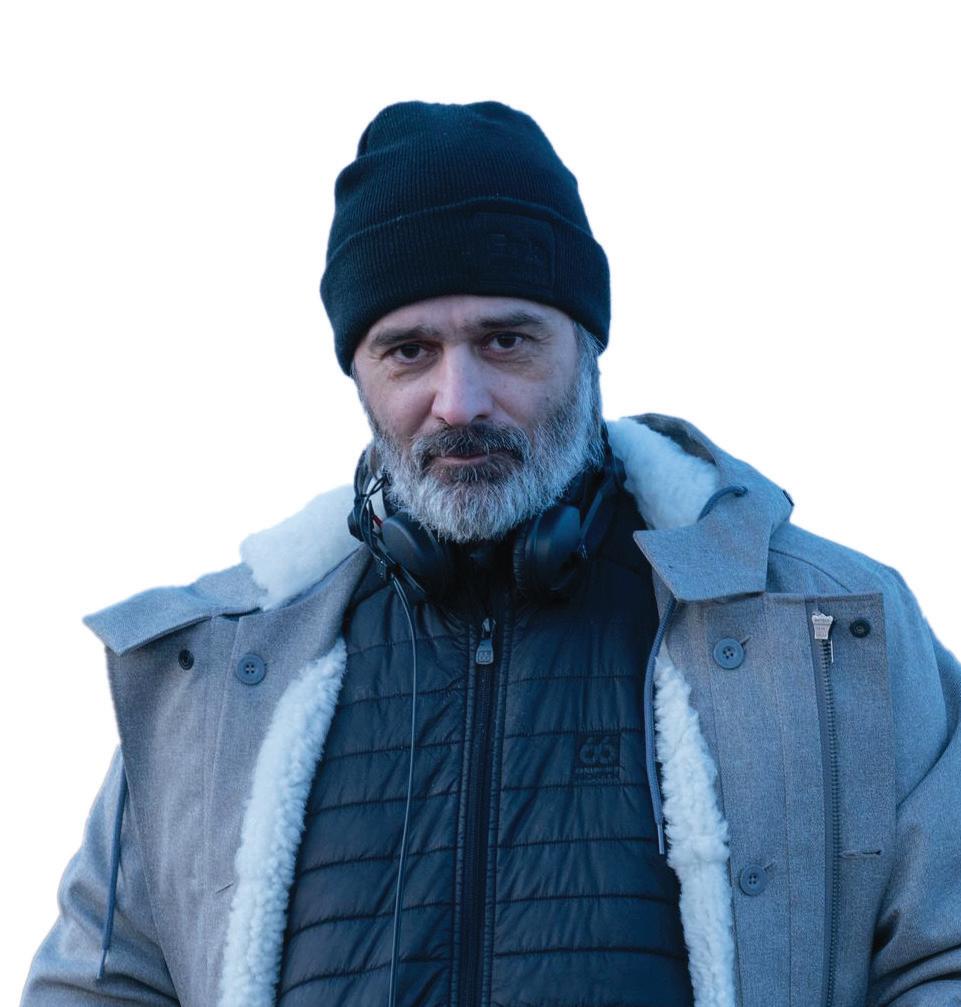

EVEREST, ADRIFT AND THE DEEP DIRECTOR KORMÁKUR HAS PARTNERED WITH ACTORS JAMES NORTON AND NIKOLAJ COSTER-WALDAU FOR HIS LATEST PROJECT, historical drama King & Conqueror. Written by Michael Robert Johnson (Sherlock Holmes), it tells the story of a clash that defined the future of a country – and a continent – for a thousand years, the roots of which stretch back decades and extend out through a pair of interconnected family dynasties, struggling for power across two countries and a raging sea. Harold of Wessex (Norton) and William of Normandy (Coster-Waldau) were two men destined to meet at the Battle of Hastings in 1066; two allies with no design on the British throne, who found themselves forced by circumstance and personal obsession into a war for possession of the crown. The eight-parter is produced by Rabbit Track Pictures, The Development Partnership, RVK Studios and Shepherd Content, in association with the BBC. Paramount Global Content Distribution is handling sales.
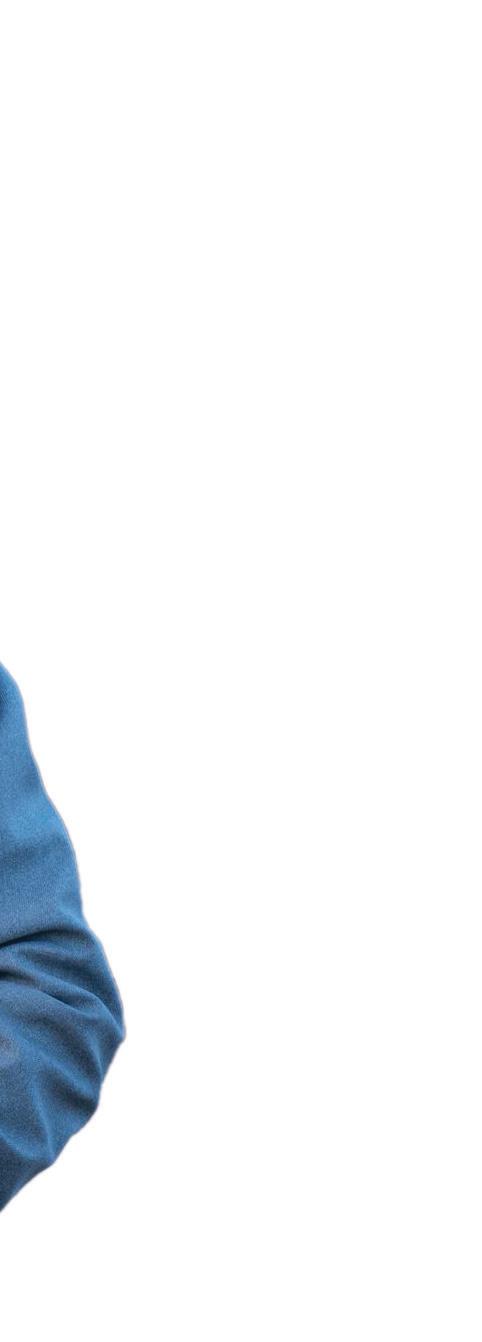
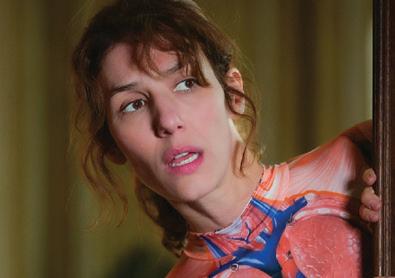
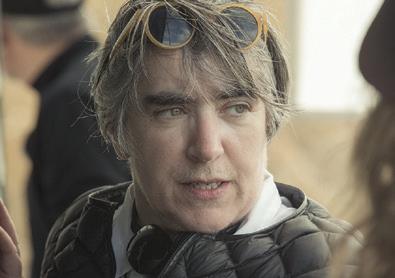

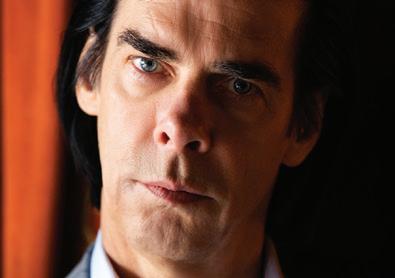
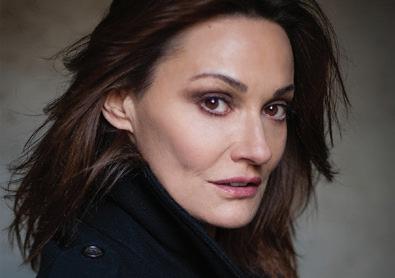
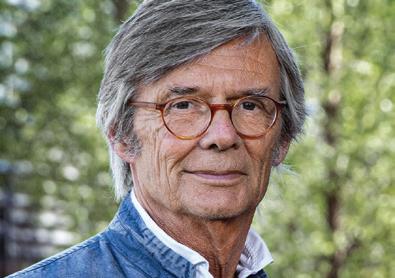
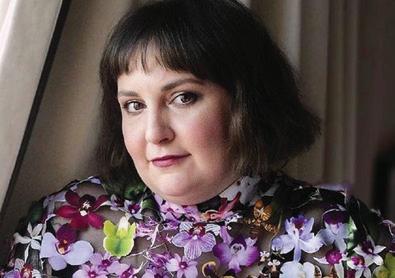

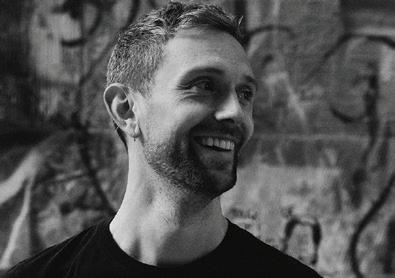
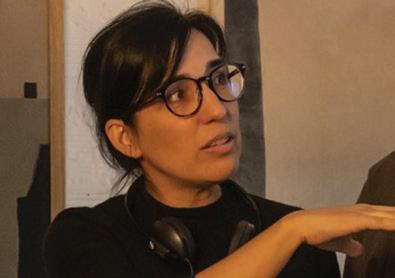
FASHION FORWARD


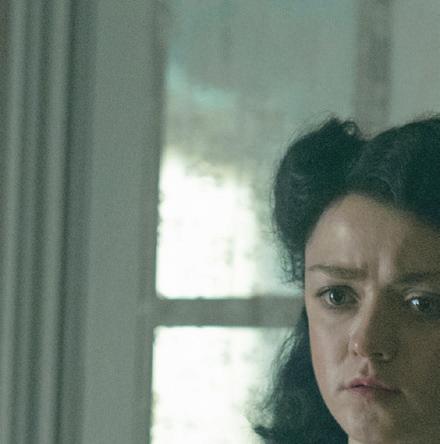


IN BIOPICS HAILING FROM MULTIPLE COUNTRIES, NO FEWER THAN THREE NEW SERIES SPOTLIGHT THE WORK OF ICONIC FASHION DESIGNERS Cristóbal Balenciaga, on Disney+, comes from Spain and follows the designer to Paris where he hopes his designs will build on trends led by Chanel, Dior and Givenchy. Meanwhile, Apple TV+’s The New Look (pictured) highlights a similar story, with the Parisset drama focusing on how the French capital led the world in fashion thanks to Christian Dior, whose work puts him in conflict with Chanel, Pierre Balmain, Balenciaga and more. Another Disney+ series launching this year, German drama Kaiser Karl, will chronicle the rise of Karl Lagerfeld through the world of 1970s Parisian high fashion.







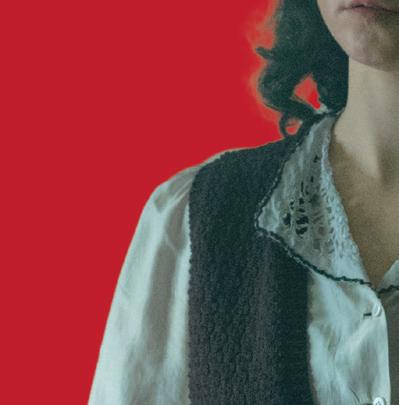

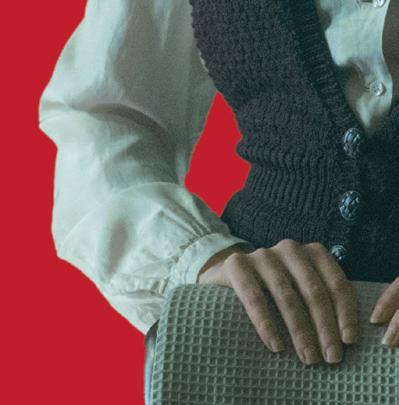





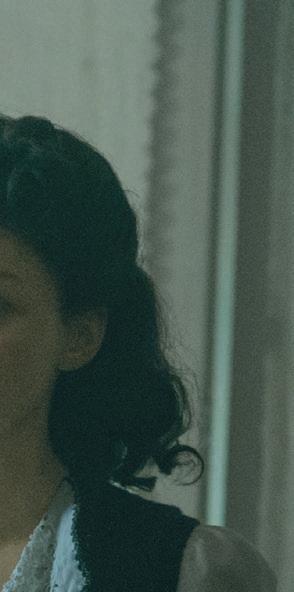
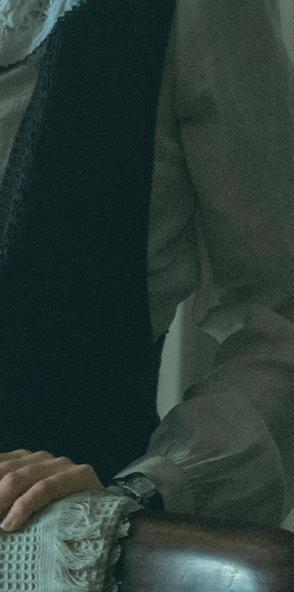

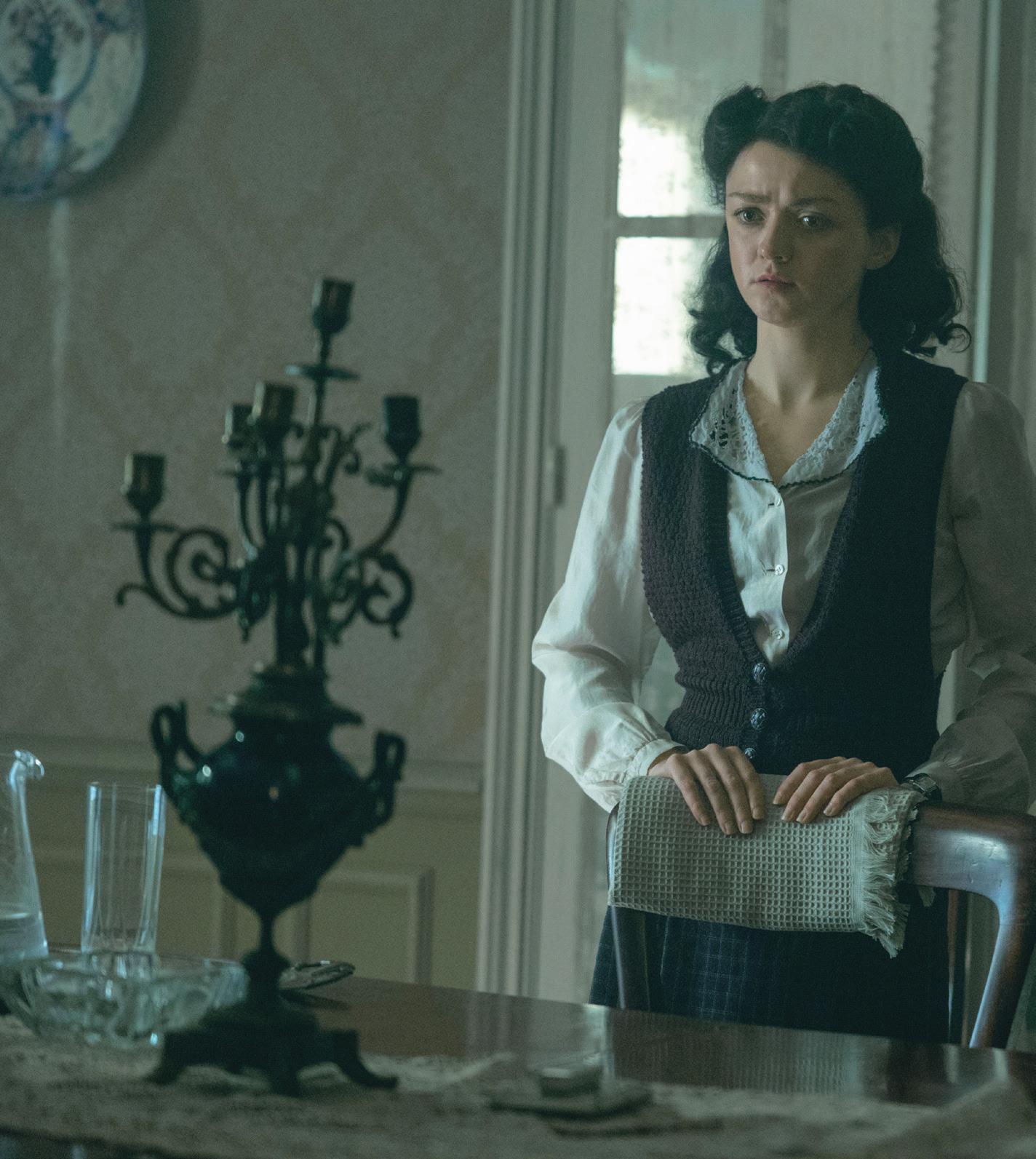
HEAD TO DRAMAQUARTERLY.COM FOR THE REST OF PART ONE OF THE DQ100 2024/25, FEATURING...
ACTORS
Alessandro Borghi, Doria Tillier, Joel Basman and Louisa Harland
DIRECTORS
Aisling Walsh, Alauda Ruiz de Azúa, Bille August and Sion Ifan
WRITERS
Grace Ofori-Attah, Kelly Jones, Lena Dunham and Samuel Jefferson
SERIES
Cicatriz (Scar), Curfew, The Death of Bunny Munro and Wolf Hall: The Mirror & The Light
TRENDS & TRAILBLAZERS
Harlan Coben, Issa López, Multi-season orders and Mr Bates vs the Post Office
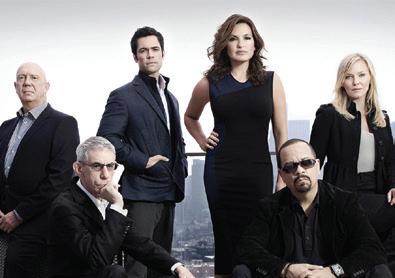
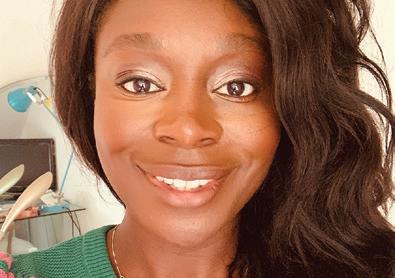

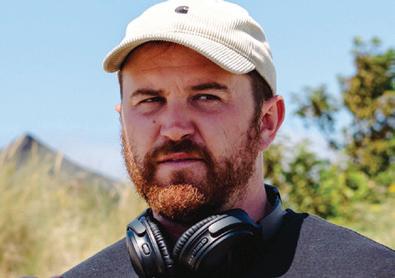

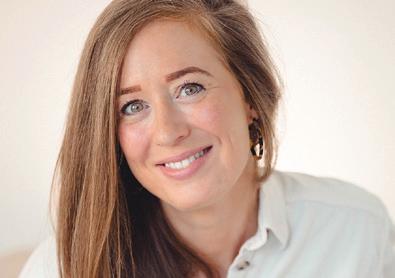
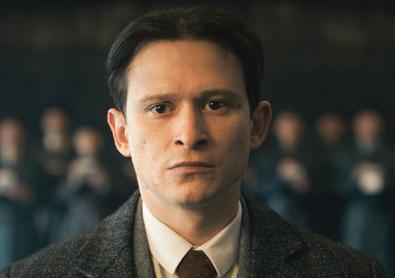
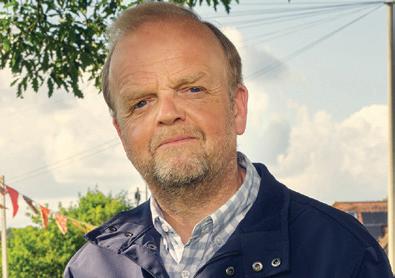
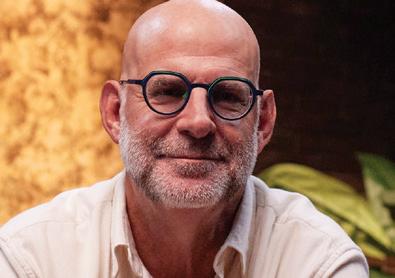
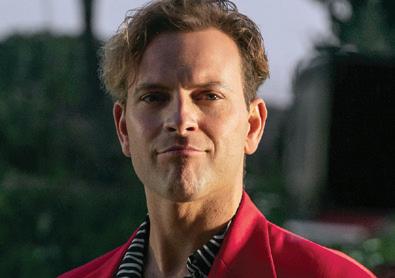
ONES TO WATCH: DQ100 DQ . Spring 2024 43
CONTENT LONDON 2023 DRAMA SERIES PITCH
SONG OF THE SUN GOD
FROM THE EXECUTIVE PRODUCERS OF THE CRY AND THE TATTOOIST OF AUSCHWITZ
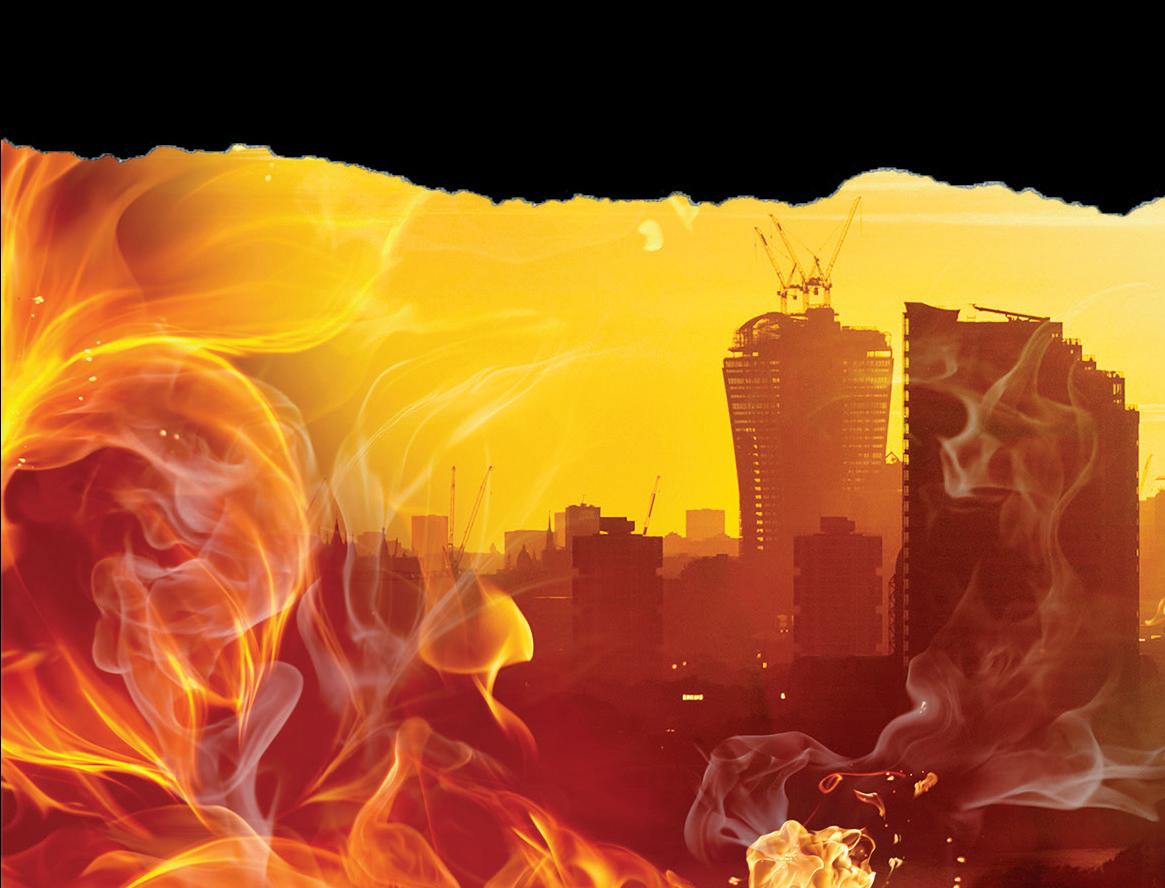
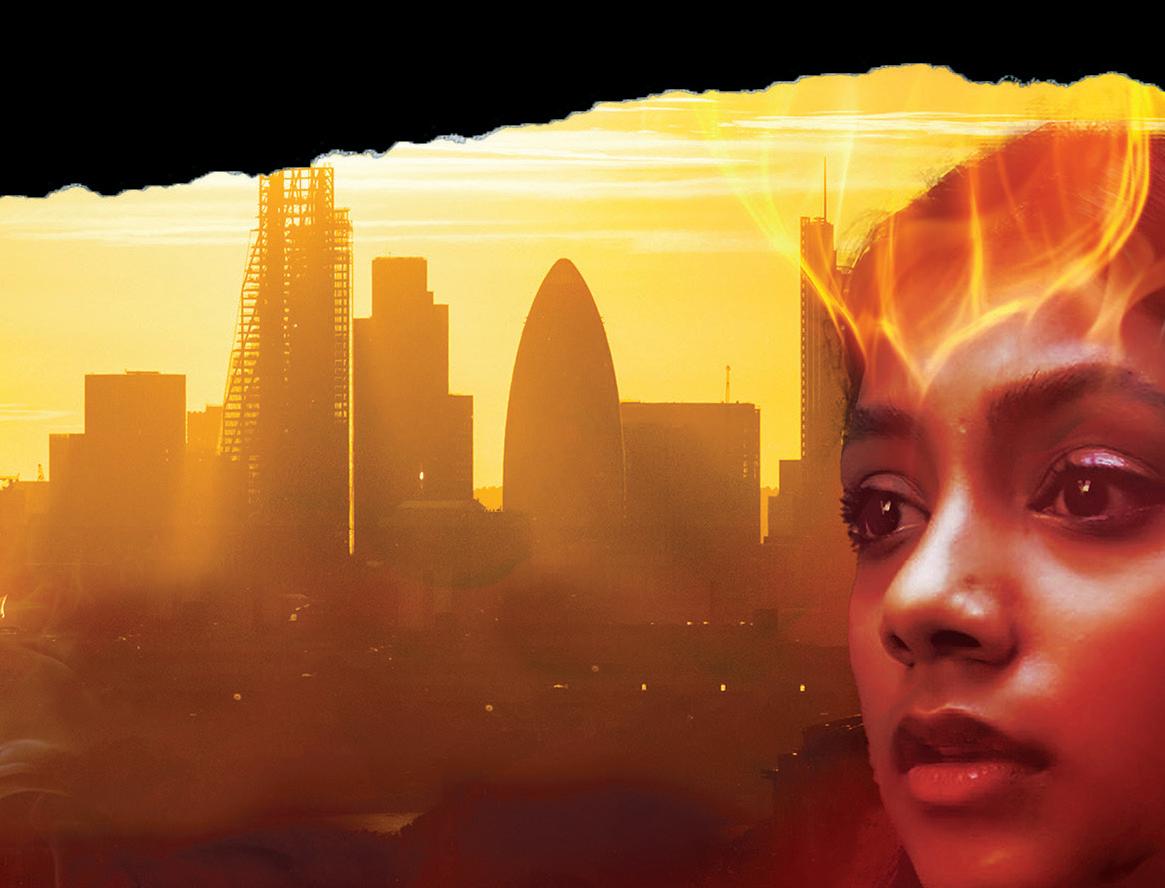


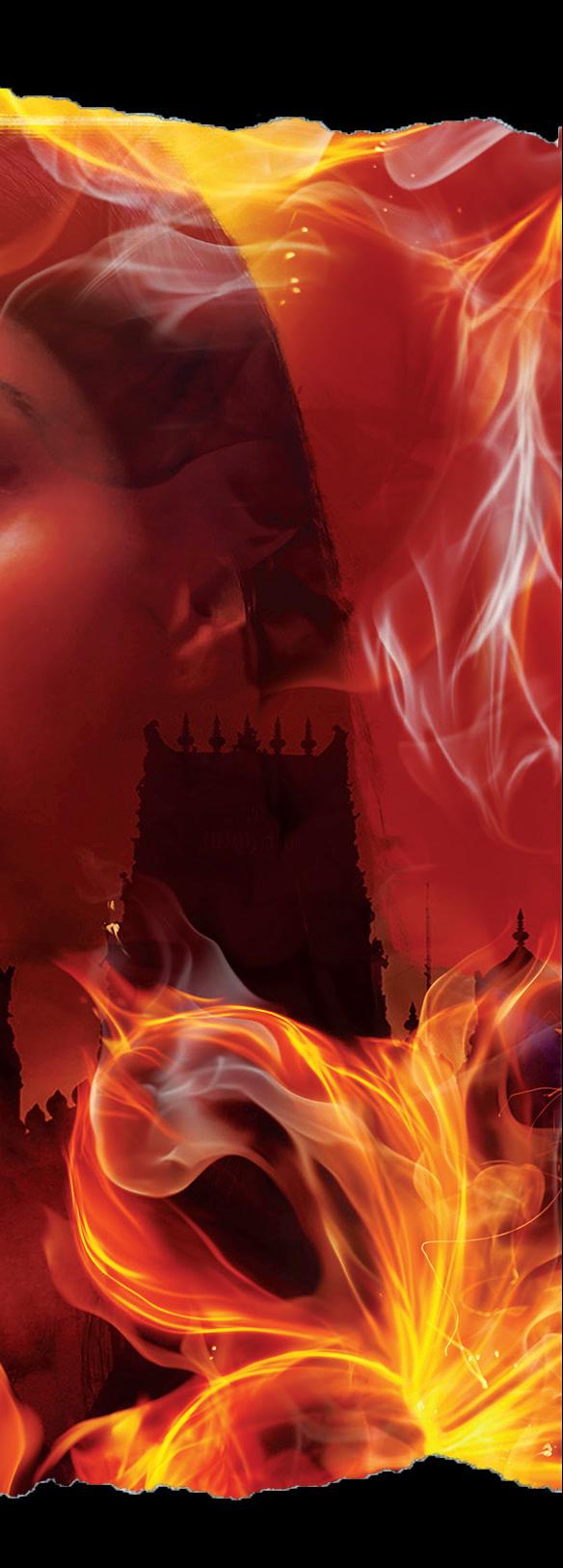
AN ADAPTATION OF SHANKARI CHANDRAN’S BEST-SELLING, AWARD-WINNING NOVEL
OLIVIA HETREED
WRITTEN BY (GIRL WITH A PEARL EARRING)
PILOT SCRIPT AND
STARRING (BRIDGERTON) CHARITHRA CHANDRAN
AVAILABLE

BIBLE NOW
WINNER
6 X 60’
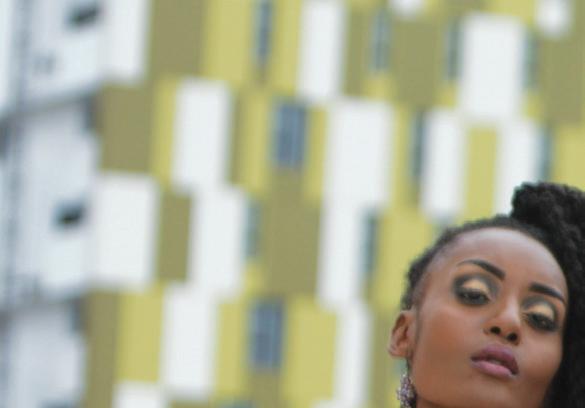
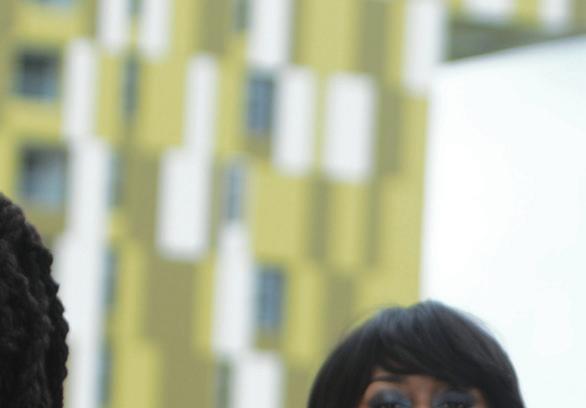

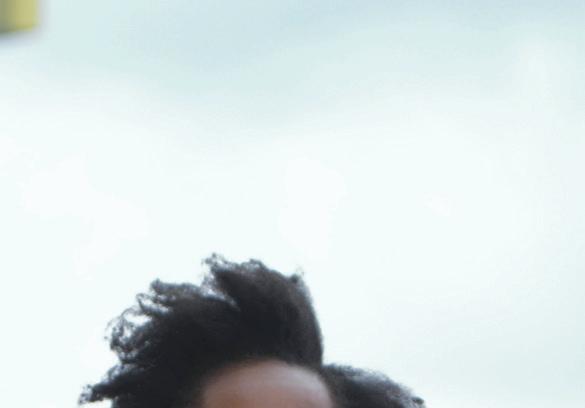

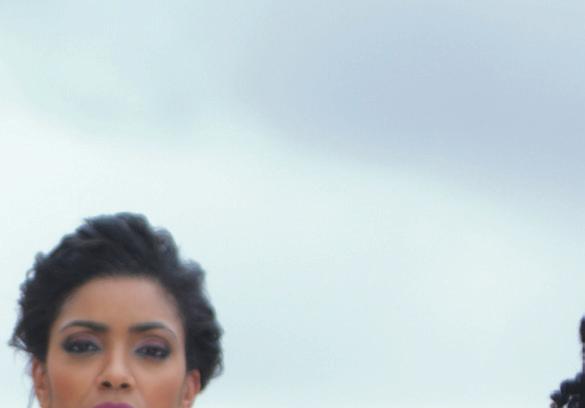
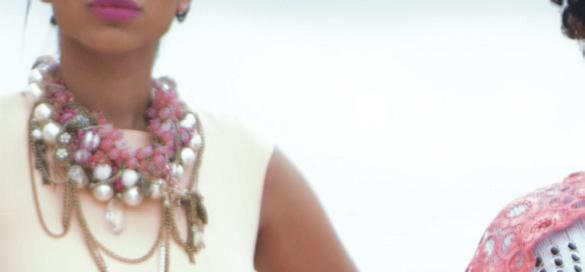
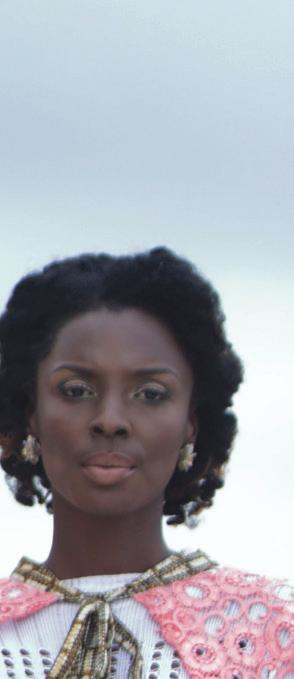
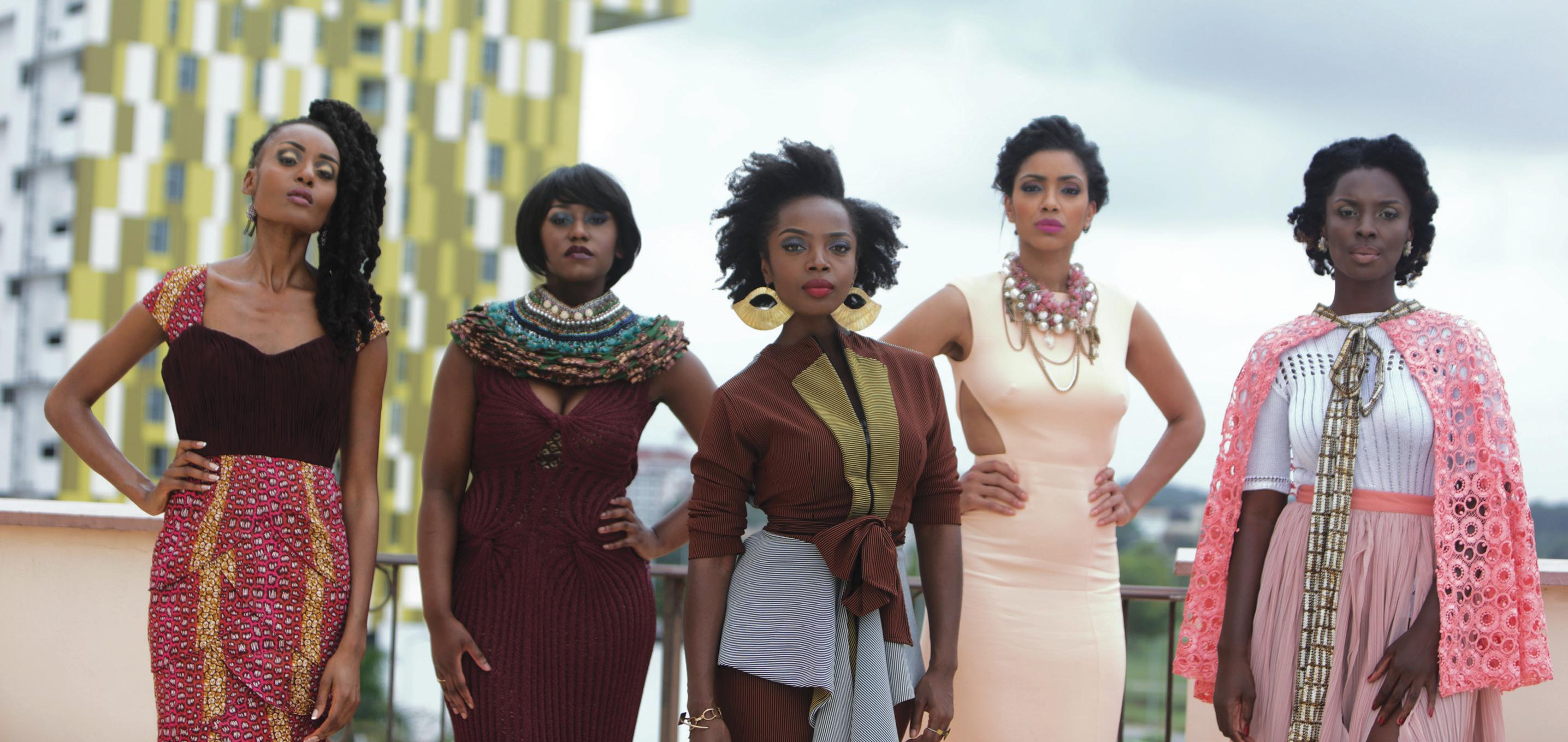
The Cosby Show
Growing up, I often had two afro puffs in my hair. Seeing someone like Rudy Huxtable, who also often had two afro puffs in her hair, was important – a reminder about the need for representation. Seeing Rudy on screen made me feel beautiful, smart and loved like her. There was a confidence she emitted that helped boost my own confidence every week. Watching all the women on that show gave me the gift of feeling seen. It’s a gift every girl needs. And now that I have a family of my own, I can’t wait to take my daughter to a fancy restaurant, where she’ll demand the burger flattened and the skin removed from the French fries. I hope so many of the memories of that show will become our own.
Saved by the Bell
SIX OF THE BEST
Nicole Amarteifio
Adams Apples
I’ll never forget the many times Adams Apples was mentioned to me in various circles among immigrants from countries such as Ghana, Nigeria and Ethiopia. Everyone was trying to get their hands on the DVD set. They would beg those coming from Ghana to pack the DVDs in their luggage when travelling to America. They would visit Ghanaian stores in the US and plead with the clerks to find and stock the latest season. In these circles, the creator, Shirley Frimpong-Manso, was more popular than Shonda Rhimes.
The creator of An African City explains how halfa-dozen television series inspired her career as a screenwriter and why representation on screen is so important.
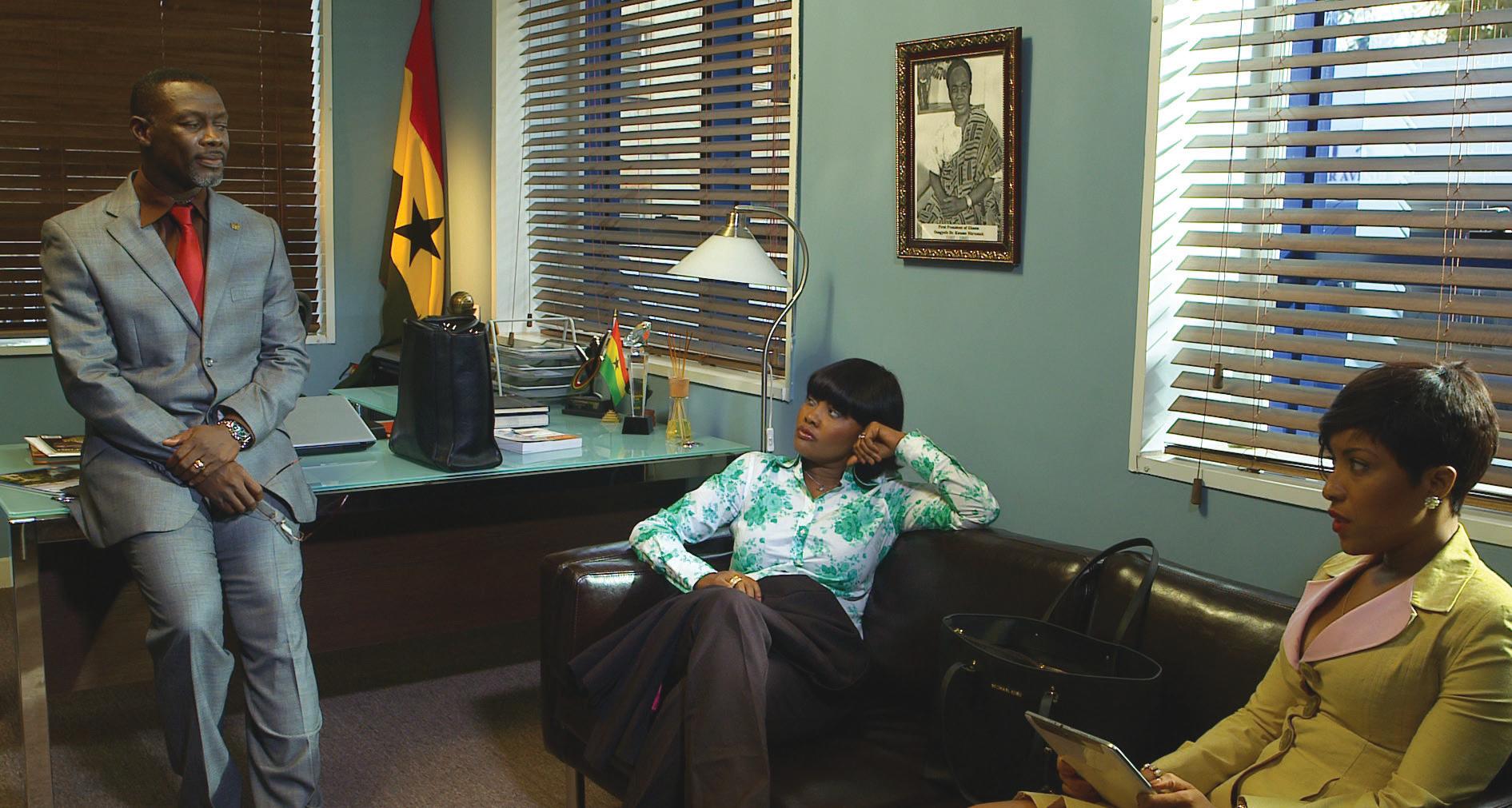

An African City is the first time I’ve seen women from Africa talk so openly and candidly about love, sex and relationships on TV.
US series often depict Africa in a negative light, but the Ghanaian family in this show was strong, interesting and layered. Immigrants from the African diaspora celebrated these depictions because it allowed for them to celebrate themselves.
telling beautifully layered stories about figuring out life. I appreciate depictions of Africa that stray away from war, poverty and famine; stories that highlight us in different ways, without even aiming to do so. The Other Guy does just that.
An African City
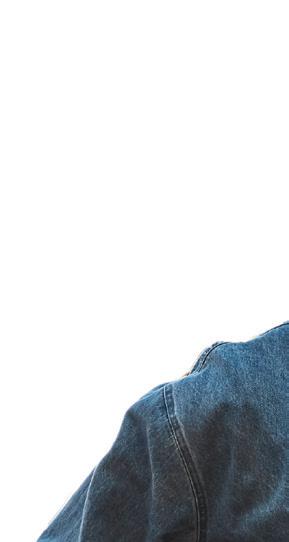
When I was young, Friday nights offered Thank God it’s Friday, a programming block of shows including Full House, Family Matters and Sister Sister. Each had characters finding their way and coming into their own – a reminder to me at that time that I was also finding my way and that, one day, I too will figure it all out. Then on Saturday mornings I would wake up to Saved by the Bell. For me, one character stood out: Lisa Turtle. She was the only black girl in the group and she was everything: smart, witty and beautiful. She was adored by the class geek but, nonetheless, still adored. So, I too felt adored. This show again reminds me of the importance of representation, especially among pre-teens.
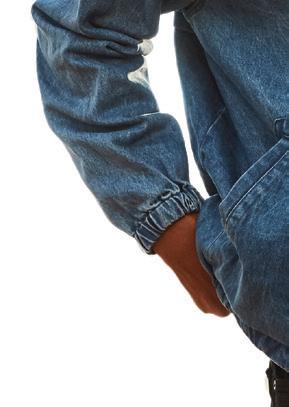
Skinny Girl in Transit

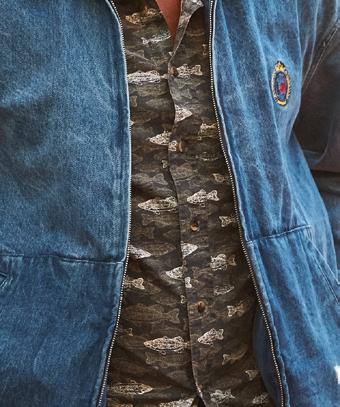
Nicole Amarteifio
This is a Nigerian web series by NdaniTV. It follows a young, plus-sized woman living in Lagos as she strives to find a balance between work, family and love. This show is especially interesting because of the story behind the story. For TV producers in Africa, it is hard to secure funding and distribution.
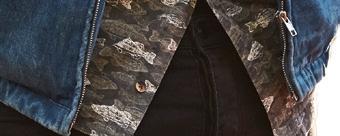
However, GT Bank sponsored this series. Plus, using their own website, NdaniTV offered a way to distribute the series. Skinny Girl is an example of a team not waiting for Hollywood to give them the green light, and of a creator, Temi Balogun, controlling their own TV destiny.
The Other Guy
This Australian series follows a successful radio host who breaks up with his long-term girlfriend after discovering she has been having an affair with his best friend. What really drew me to this show was the creator, Matt Okine, who is half Ghanaian and grew up in Brisbane. Because of my Ghanaian background, I’m intrigued by Ghanaians in the diaspora who are
Am I allowed to talk about my own show? Growing up in the US, the Hollywood depiction of Africa scarred me. I ended up in international development, where Ghanaian women were reduced to either an AIDS statistic or a maternal mortality rate. We are more than these data points. But, more importantly, we should be able to tell and own our own stories. These feelings drove me to create An African City, which CNN and the BBC dubbed as Africa’s answer to Sex & the City. In the show, five Ghanaian-American women return to Accra, Ghana, after years of living abroad, and confide in one another about their very complicated sex lives. It’s the first time I’ve seen women from Africa talk so openly and candidly about love, sex and relationships on TV. And for that reason, I love it!
END CREDITS: Six of the Best 45
DQ DQ . Spring 2024
“ ”
The Other Guy
Adams Apples
An African City

SCENE STEALERS
Catch Me a Killer
Kowalski Films’ Simon Howley, executive producer of South African true crime drama Catch Me a Killer, recalls the origins of the series and outlines one memorable interrogation scene involving the show’s protagonist, serial killer profiler Micki Pistorius.
Iam a huge fan of crime series and, as a producer, I know there’s an undeniable appetite for crime drama, especially in the realm of true crime. When I came across a true crime story set in South Africa that hadn’t been told, I was instantly interested, and this led to our first crime drama – Catch Me a Killer
The show is based around the pioneering work of the first criminal profiler in South Africa, Micki Pistorius. When the series is set, in the mid-to-late 90s, there were more serial killers per head of population in South Africa than anywhere else in the world. Across 10 episodes and eight serial killer investigations, our series follows Micki’s transformation from a university lecturer in Pretoria to one of the best profilers in the world. Needless to say, the ‘body count’ in Catch Me a Killer is high.
We optioned Micki’s book of the same name several years ago and began developing the series with South African writer Amy Jephta. Amy was the perfect writer to take on the pilot episode; not only is she a very experienced television writer but she also grew up in the area where Micki’s first case, the Station Strangler, unfolded – Mitchell’s Plain. Amy’s parents were also police officers in the area, so she already had an understanding of the world in which the series is set.
Micki Pistorius, the focal point of our series, is not only an exceptional profiler but also an extraordinary individual with a captivating persona. Catch Me a Killer isn’t your typical crime series; it’s a rollercoaster ride through Micki’s personal and professional lives, packed
with unexpected twists and turns. Coming from an academic rather than a police background, Micki brings a unique perspective to her work, and we delve deep into the profound impact these cases have on her psyche. Despite her prowess as a profiler, the relentless pursuit of justice across South Africa eventually leads Micki to a breaking point, highlighting the harrowing reality of the toll her profession takes on her life.
In our series, Micki, who is played by the wonderful Charlotte Hope, makes an extraordinary sacrifice by dedicating five years of her life to catching serial killers. Her invaluable contributions have undoubtedly saved countless lives, as her pioneering efforts filled a critical void in policing. Her trailblazing
“
Catch Me a Killer isn’t your typical crime series; it’s a rollercoaster ride through Micki’s personal and professional lives, packed with unexpected twists and turns.
Simon Howley
”
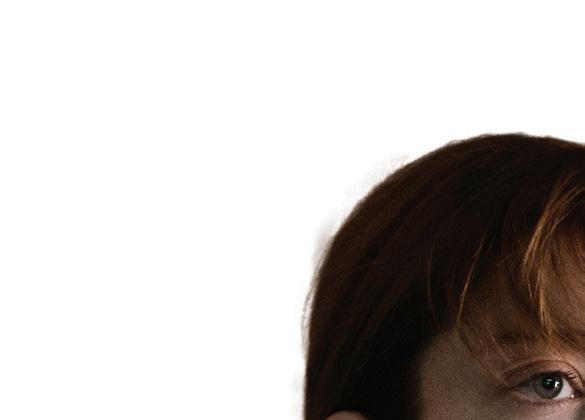


work not only led to the apprehension of numerous killers but also paved the way for the integration of profilers into the police.















While developing the series alongside our creative director, Aimee Rowling, I received an email from South African broadcaster MNet, which had initially contacted Micki herself because they also saw the huge potential in dramatising her story and hoped to option her book. Fortuitously for us, we already had the TV rights and, after several conversations with MNet, we went into development with them on the series.








In October 2020, we ran a remote writers room with Amy in South Africa and three exceptionally talented UK writers: Oliver Frampton, Sarah Hooper and Jessica Ruston. Alongside producer Brett Wilson, we spent three weeks building the series, structuring the episodes, choosing which cases to include and developing Micki’s arc for the show, before the writers went away to write the scripts.
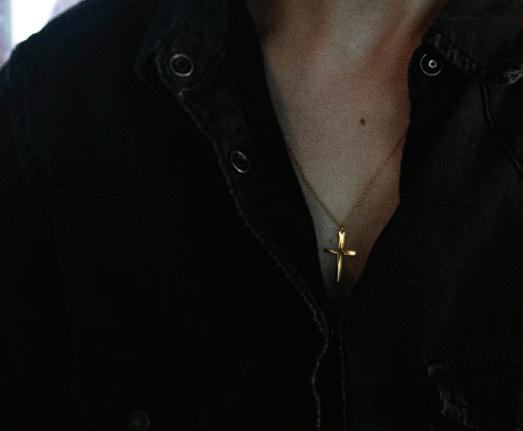












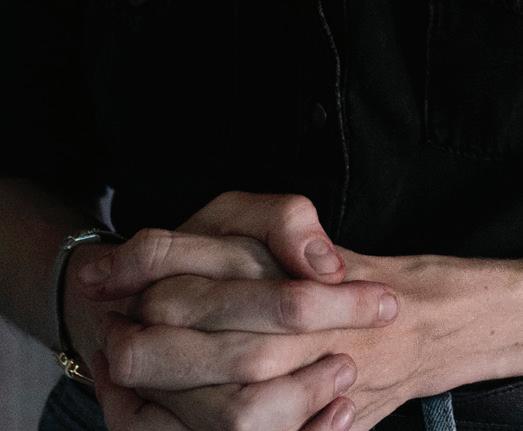

from the North of England speaks volumes


MNet has been an extraordinary partner from the very beginning. Allan Sperling, Nicola van Niekerk and Wikus du Toit have been incredibly supportive, providing invaluable insights and guidance. Their willingness to invest in an emerging production company from the North of England speaks volumes about their vision and commitment. I’m proud of the series we’ve delivered and I hope it’s a testament to the trust they placed in us.
While the creative development of the series was relatively straightforward, there were other obstacles we had to contend with. Along with Greig Buckle, our South African production partner, we raised the finance to produce the series via a tax credit from the South African Department of Trade, Industry and Competition, MNet and its streaming platform Showmax, and our distributor Abacus Media Rights, which secured a minimum guarantee from Germany’s Night Train Media. We also had investment from Northern Ireland Screen, as post-production was handled by Kaboom in Belfast.
We had three directors across the series – British director Tracey Larcombe and two South African directors, Brett Michael Innes and Rene Van Rooyen. All three brought something unique to the series while also sharing our creative vision for it.
Due to scheduling, the first episode we shot was episode six – The Cape Town Prostitute Killer. This was Rene’s first episode on the series (she did three more), and as her other work has mainly been in Afrikaans, this was her first English-language series. She brought an amazing energy, enthusiasm and intelligence to the whole shoot, and I still joke with MNet and Rene that she was the best thing that’s ever been foisted upon me.
There are so many great scenes in the series, but one in particular always stands out. In episode six, prime suspect William Truter is

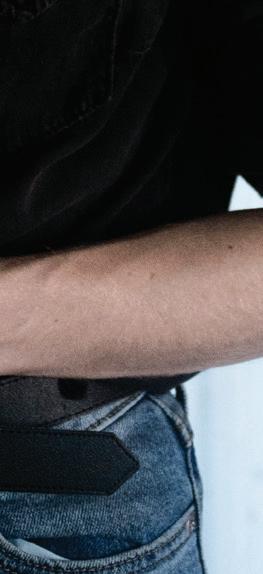








brought to the station to be interrogated by result

brought to the station to be interrogated by Micki. Rene always works closely with actors, and in this instance she briefed Charlotte on what she wanted her to do in English, and then briefed Carel Nel, who plays William, in Afrikaans, so Charlotte didn’t know what they were talking about or what was going to happen. The result was an electric scene, with Charlotte completely caught o guard when William leans in and suddenly pulls her towards him.





team had to be creative when building sets







rooms. With meticulous attention to detail, our production designer Warren Gray
To make our budget work, the production team had to be creative when building sets – our production offices in Cape Town were used in several episodes to create different police stations, prison cells and interrogation rooms. With meticulous attention to detail, our production designer Warren Gray and set decorator Anneke Botha created truly authentic sets that Kurt Oliver, our ex-police officer consultant, said bore an uncanny resemblance to the police stations of the 90s.






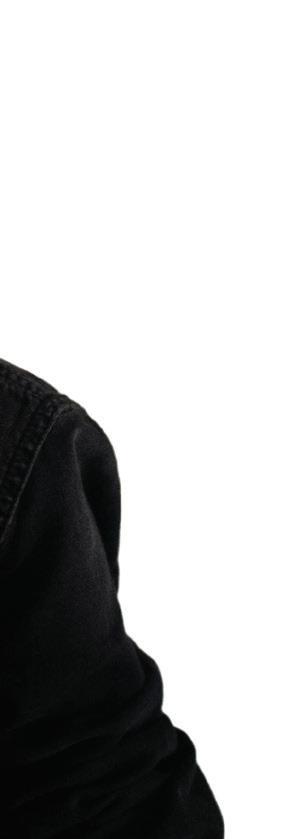











final pieces of the puzzle in bringing Catch Me a Killer

Our DOP Dino Benedetti’s camerawork, editor Claire Pringle’s superb cutting and Justin Lockey’s haunting score for the series were the final pieces of the puzzle in bringing Catch Me a Killer to life.




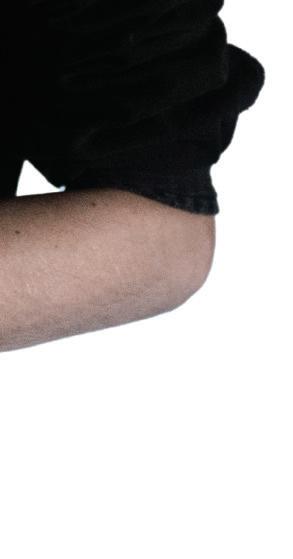
I am so proud of everyone who worked on this series. We had a fantastic team and we can’t wait to share across the world. DQ
I am so proud of everyone who worked on this series. We had a fantastic team and we can’t wait to share Catch Me a Killer with viewers across the world.

END CREDITS: Scene Stealers DQ . Spring 2024 47
Charlotte Hope (right) plays real-life serial killer profiler Micki Pistorius in Catch Me a Killer


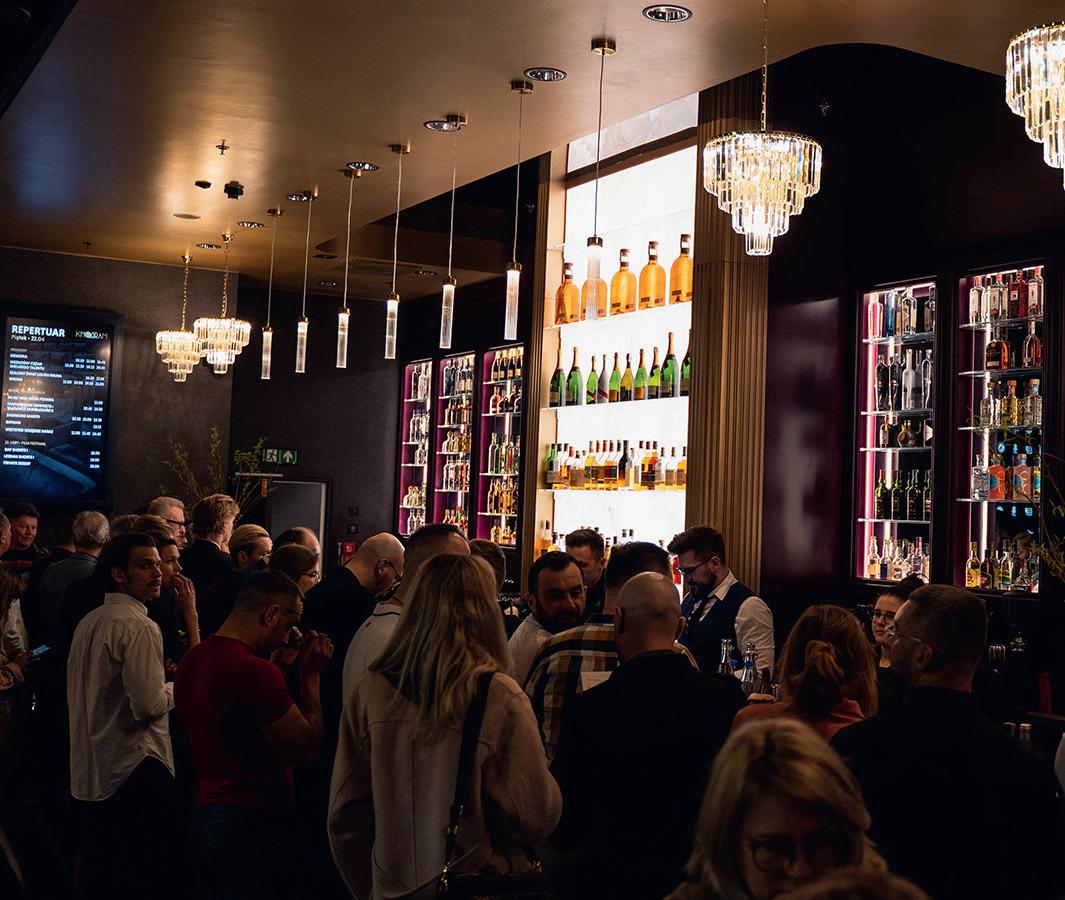
Connecting the CEE and international business in 2024 Kinogram • 3-6 June 2024 A three-day market, international screenings & conference at the heart of CEE business CONTENTWARSAW.NET
CONTENT WARSAW
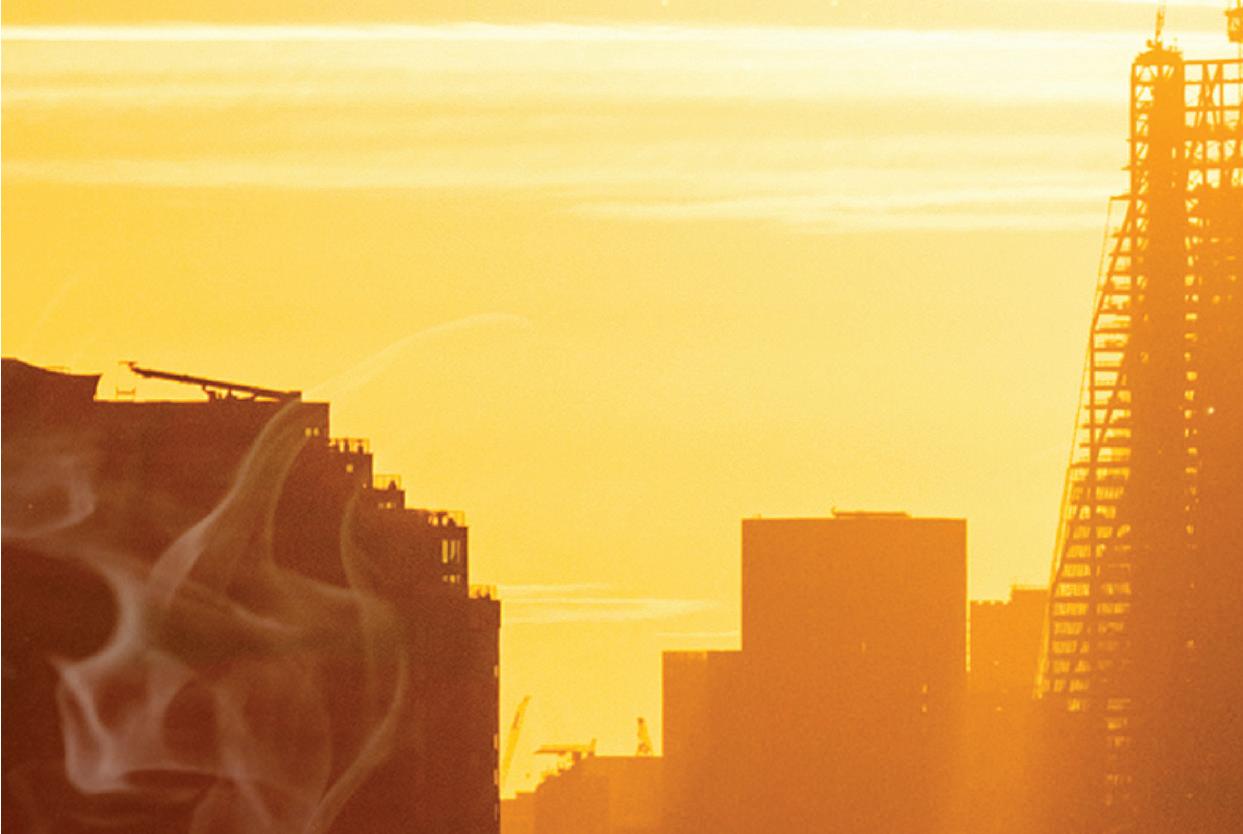
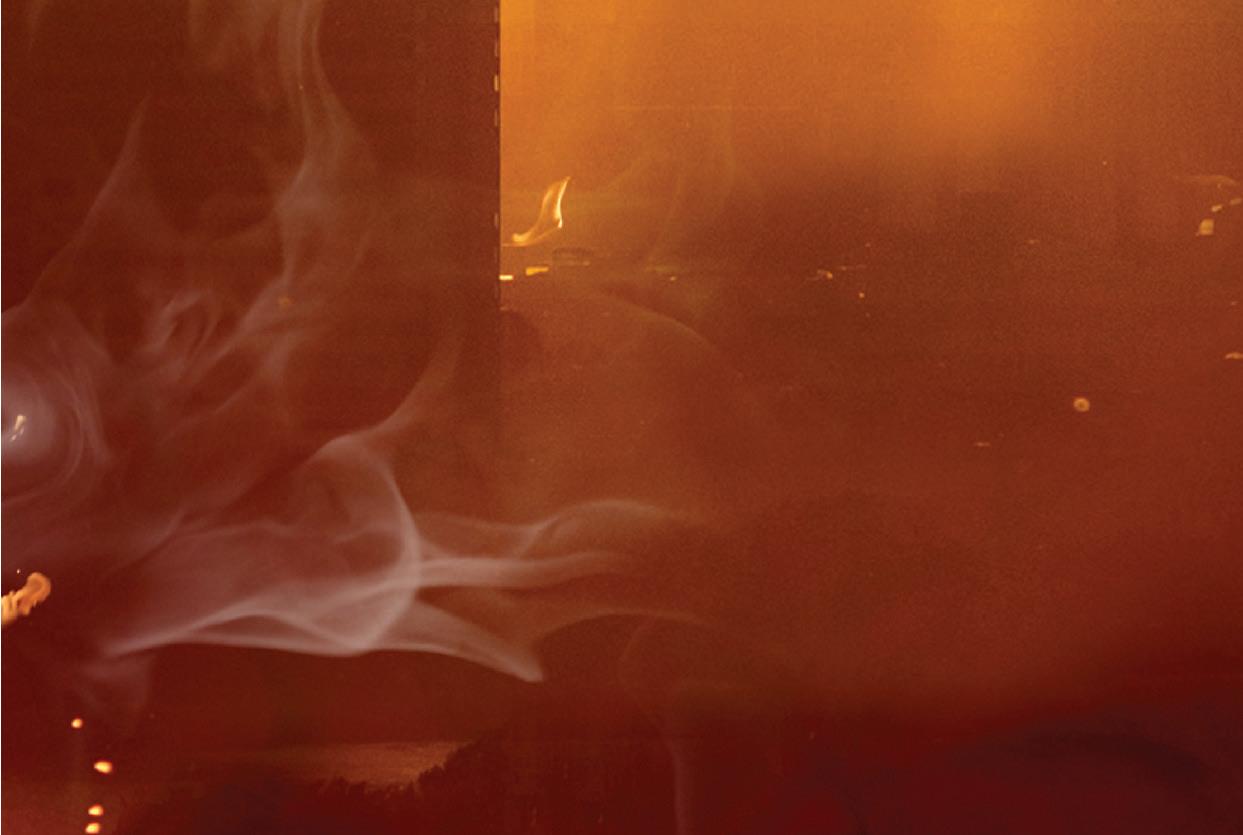
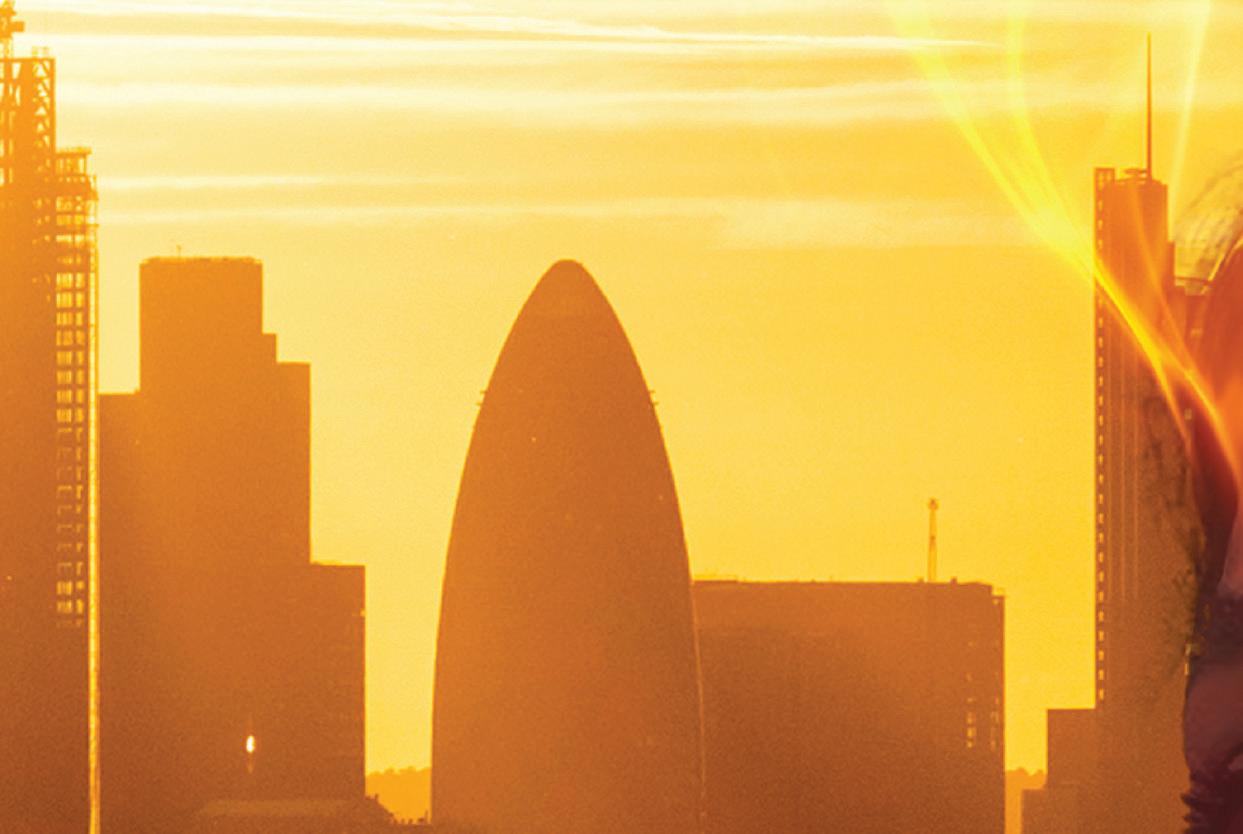
Song of the Sun God FACT FILE
Karen Radzyner, executive producer and head of development at Sydney’s Photoplay Films, tells DQ about upcoming drama Song of the Sun God, which is being adapted from Shankari Chandran’s novel of the same name.
Winning the Content London Drama Series Pitch Song of the Sun God won the C21 Drama Series Pitch Competition at the recently wrapped Content London. We’re in advanced development and have a pilot and bible ready to go. The judges described it as “gripping,” “sweeping” and “epic,” and loved that it was based on an award-winning book and being developed by “a team capable of delivering on its powerful ambitions.” This team includes lead writer and executive producer Olivia Hetreed (Girl with a Pearl Earring), lead actor and associate producer Charithra Chandran (Bridgerton); UK coproducer Synchronicity Films’ Claire Mundell (The Cry, The Tattooist of Auschwitz); and our super-talented author and executive producer Shankari Chandran.
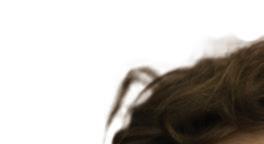

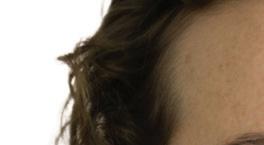
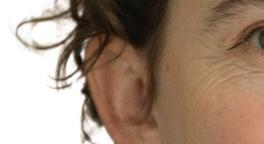
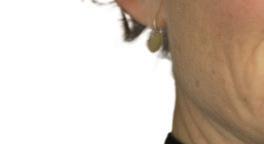
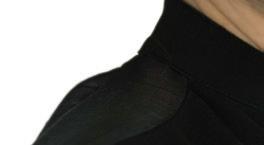
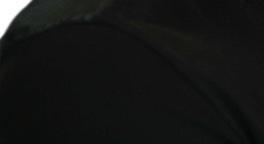

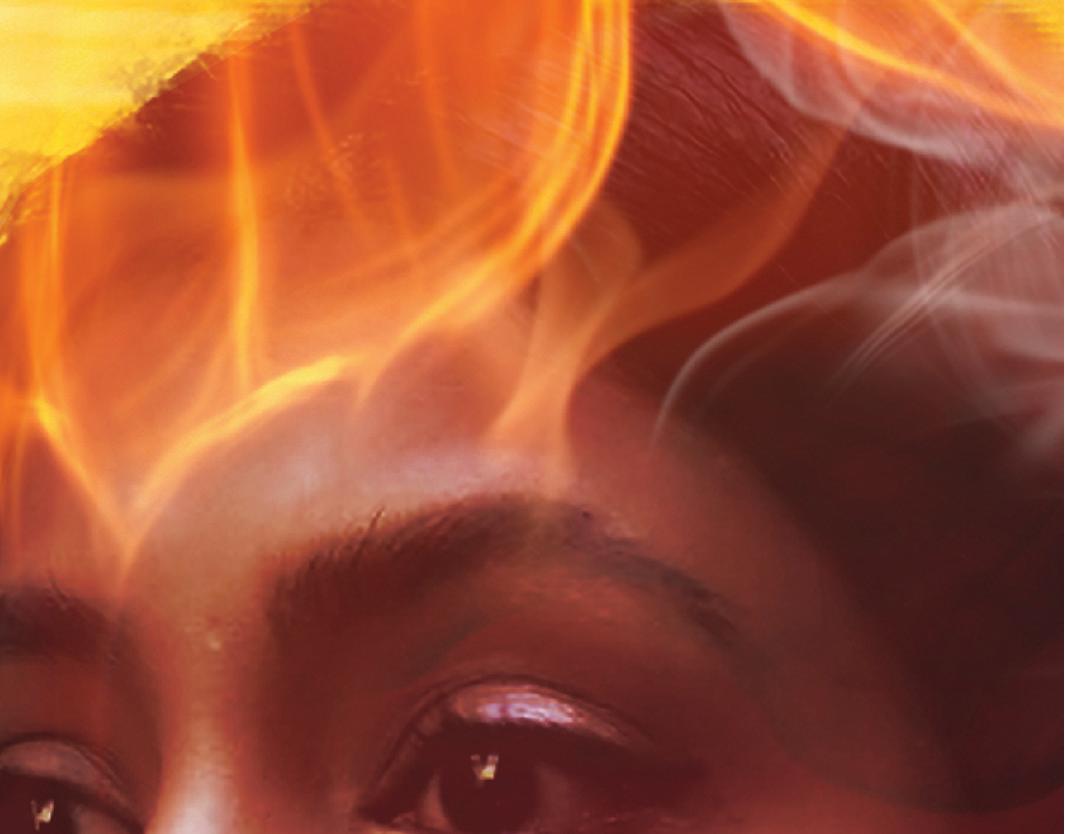
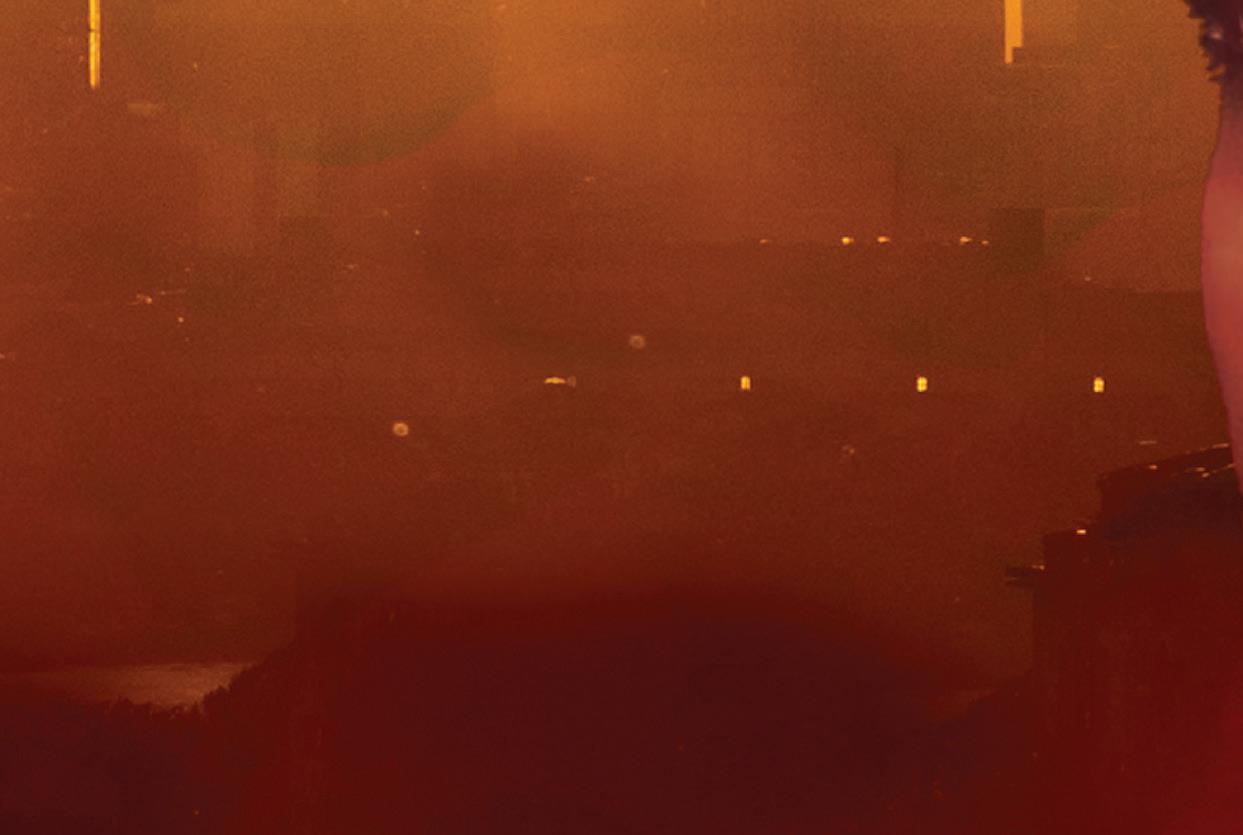
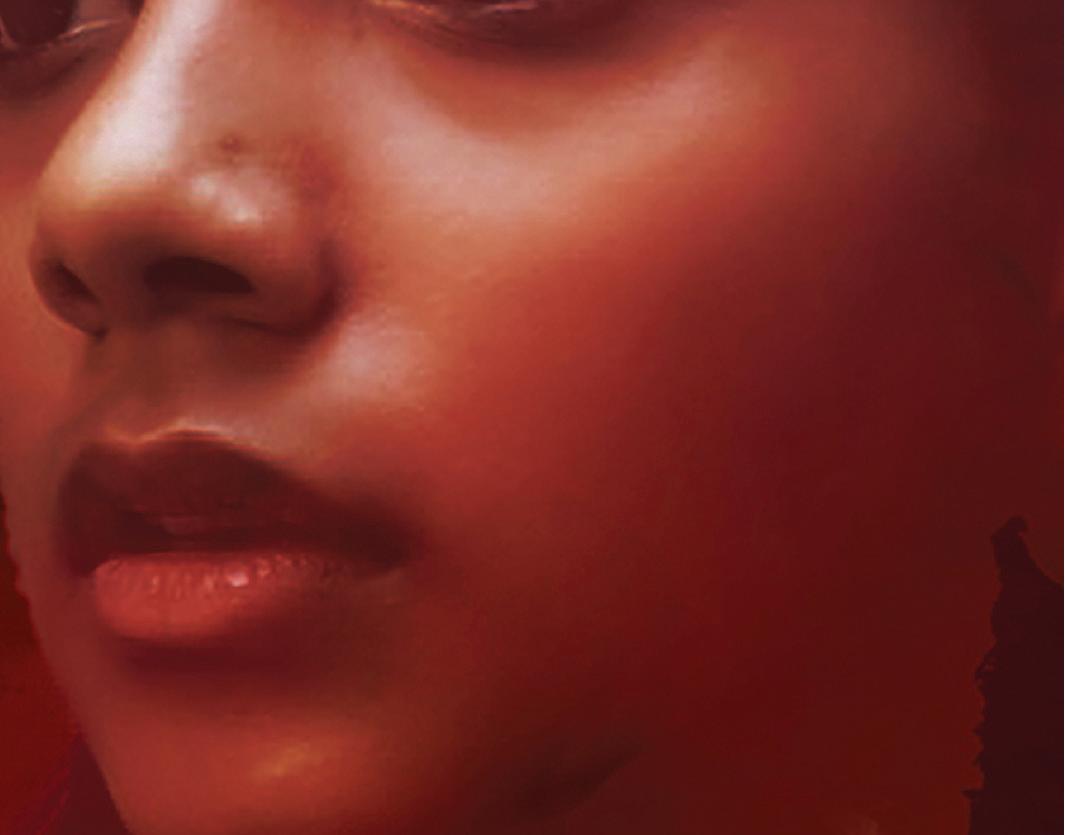
disappears. Leela, born and raised in London and now living in Edinburgh, has never questioned why her family concealed her cultural heritage – until events triggered by this visit threaten to bring her world crashing down.
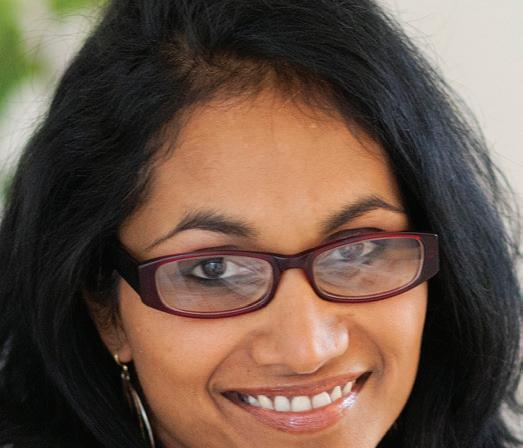

By the end of episode one, a sinister white van is waiting for Dhara in the shadows of Colombo General Hospital car park, far from Edinburgh, family or help. Leela’s search for her missing aunt will take her to Australia and on to Sri Lanka, in the midst of the dangerous and controversial 2019 presidential elections, where she quickly lands in serious trouble with the Sri Lankan government’s brutal secret police.
Charithra Chandran
Behind the headlines
Sri Lanka is this little post-colonial island that can’t stay out of the international headlines, but it has never been the subject of a TV drama. Through the lens of a Tamil family we fall in love with, who have so much to lose, this book and series reveal a little-known 21st century civil war. As it does for Charithra, this is a story that resonates for all 300 million Tamils around the world but also for all those who have welcomed the expansive Sri Lankan Tamil diaspora into their lives in new home countries, including the UK, US, Australia, Canada, France and Germany. But secrets buried in war have a dangerous habit of resurfacing.
Pachinko meets Tehran
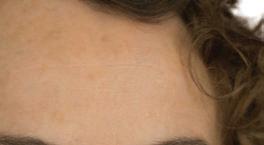
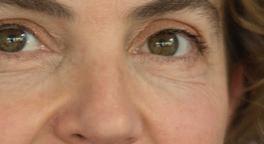
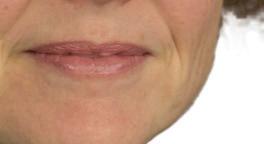
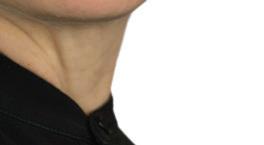






Song of the Sun God is a sixhour prestige thriller whose twists unearth decades of secrets in a British family, the Rajans. Everything will change for Leela after her aunt Dhara visits her briefly in Edinburgh, to speak at a conference, then
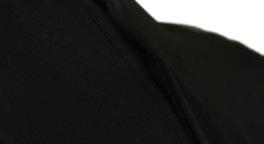
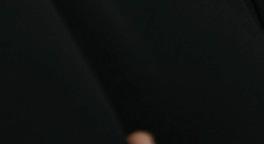

Adapting a bestselling novel I laughed my way through tears for the last 50 pages of Shankari’s incredibly moving – and somehow funny – book. Olivia’s script delivers the same punch. It is important to us to uphold the book’s powerful emotions. This is a touchstone we return to, even as we mess with chronology. The motifs, colours, Hindu mythology and themes that unfold through the book are being carefully crafted into a structure that grips a TV audience across six episodes, is rich in its British cultural foundation and is true to its Australian characters, all while telling a captivating South Asian story of resilience, displacement and love.


A creative team reflecting the story’s diversity











She is playing our lead and is one of two Tamil producers on the series (and is unrelated to Shankari Chandran). Gracing the cover of Teen Vogue when she starred as Miss Edwina Sharma in Bridgerton’s second season, she said her dream would be to produce and star in “a film about the crisis in Sri Lanka with the Tamil population… It’s near and dear to my heart because it’s my community.” We were already tracking her for our lead so it was thrilling to find out she was deeply invested in this story, and we reached out to her immediately. We’re a tight-knit team now and are loving developing this together, across continents.

“



I laughed my way through tears for the last 50 pages of the incredibly moving – and somehow funny – book. The script delivers the same punch.


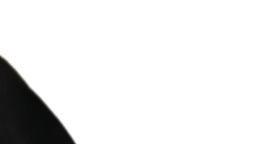

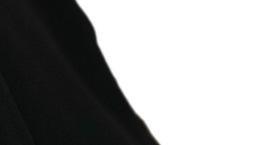 Karen Radzyner
Karen Radzyner


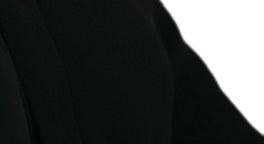
We’re developing a story set across three continents, with a creative team reflecting all three. It makes for an epic and expansive story experience, transportive and sweeping. Thanks to the support of development partners Cineflix Rights, Screen Australia and Screen NSW, we’ve been able to get the cross-continental team together in person several times, including a precious week of intense development in London just before the world shut down in January 2020. We hope our next meeting will be in Sri Lanka, Kerala, Goa or Tamil Nadu, places that will make authentic filming locations for the colonial mansions, jungles, beaches and wild war zones the series will depict.
END CREDITS: Fact File DQ . Spring 2024 49
DQ
”
for Leela after her aunt
Shankari Chandran
Song of the Sun God stars Charithra Chandran




Fortune favours the brave in post-Peak TV era
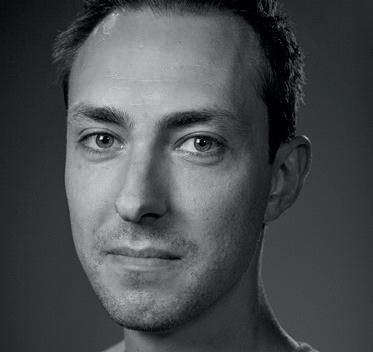
What is happening in the US is being mirrored around the world, as rising costs mean series orders are falling, with commissioners – particularly at traditional linear broadcasters –now holding all the power.
THE “MIRACLE” OF KAFKA, THE SIX-PART GERMAN-LANGUAGE SERIES BASED ON THE LIFE OF THE ICONIC 20TH CENTURY WRITER, IS THAT IT WAS MADE AT ALL
Director David Schalko toiled for a decade with the idea of adapting Reiner Stach’s noted biographies of Franz Kafka for the screen, and partnered with Daniel Kehlmann to develop and write the series.
But it was thanks to a unique broadcast partnership that they received the green light and finally got to work on the long-gestating project, after Austrian public broadcaster ORF’s initial backing was supported by the ARD group of regional German broadcasters – all nine of them, led by NDR (Norddeutscher Rundfunk).
“Miracle one is David believed this could be done,” ORF head of features Klaus Lintschinger said during a panel on the series at the Berlinale Series Market in February. “Miracle two is that Daniel gets to write it and make 1,000-plus pages [of biography] into a primetime television experience. But miracle number three, no less a miracle, is that somebody actually pulled it together. The broadcaster that made it happen was NDR.”
That 2024 marks the 100th anniversary of Kafka’s death certainly helped pave the way for a landmark series about the writer – the most widely read German-language author in history. But it was also Schalko and Kehlmann’s unique vision for the series that ensured the show wouldn’t follow the traditional script when it comes to making biopics. Each of the six episodes is seen through the prism of Kafka’s relationship with a significant figure in his life, while narration, flashbacks, title cards and other devices are thrown in for good measure.
When BBC director of drama Lindsay Salt recently unveiled a slate of 12 scripted series, she outlined a vision that suggested she too might have taken a punt on Schalko and Kehlmann’s unconventional approach to the biopic of a revered figure.
Announcing projects from creatives including James Graham (Sherwood), Alice Birch (Normal People), Aimee Lou Wood (Sex Education) and Kayleigh Llewellyn (In My Skin), Salt
spoke about her desire to push boundaries and “venture into the creative unknown.”
Graham is adapting his own stage play This England, about England football manager Gareth Southgate; Wood makes her screenwriting debut on romantic comedy-drama Film Club; Birch will write The Ministry of Time, a time-travel drama based on the novel by Kaliane Bradley; and Llewllyn is behind coming-of-age story The Dream Lands, about a woman who discovers life and love in a crumbling world, based on Rosa Rankin-Gee’s novel.
“I worry that risk-taking is becoming a dirty word and that, in less than a decade, the industry might be moving from Peak TV to Peak Caution,” Salt said. “But not the BBC… there’s something about this moment, the current climate in our industry, that makes our approach to risk even more essential. While others might become more cautious, we will go further and take the risks others won’t.”
It seems Peak TV is most certainly over. FX chairman John Landgraf, who famously coined the industry-defining phrase in 2015, revealed at the start of the year that there were 516 original series in the US in 2023, down from a record 599 during the previous 12 months.
Yes, the order book was hit by the dual writers and actors strikes in the second half of last year, but with streaming platforms now chasing profits rather than subscribers, it seems there’s little likelihood those numbers could hit 600 again. And what is happening in the US is being mirrored around the world, as rising costs mean series orders are falling, with commissioners – particularly at traditional linear broadcasters – now holding all the power.
It’s unclear whether Salt and the teams at ORF and ARD are the norm or the outliers in their willingness to take risks on challenging, complex storytelling. Their public broadcasting remit certainly gives them more scope to break new ground. But in a buyers’ market, stories everywhere will need something special to see the green light.
Michael Pickard Editor, Drama Quarterly
WHO’S WHO
Email format: firstname@c21media.net
EDITORIAL: Editorial director Ed Waller, Editor of C21Media.net Jonathan Webdale, Chief sub-editor Gary Smitherman, DQ chief sub-editor & head of design John Winfield, Senior sub-editor Steve Warrington, News editor Clive Whittingham, Channel21 International editor Nico Franks, DQ editor Michael Pickard, Research editor Gün Akyuz, North American editor Jordan Pinto, C21Kids editor Karolina Kaminska, Senior reporter Neil Batey
C21TV: Head of C21TV Jason Olive, Video editor/motion designer Adrian Ruiz Martin
SALES: Founding partner & commercial director Odiri Iwuji, Sales director Peter Treacher, Business development director Patricia Arescy, Telesales director Nick Waller, Sales manager Hayley Salt, Senior sales executives Richard Segal, Malvina Marque, Telesales executive Yasmin Connolly
EVENTS: Event programming director Ruth Palmer, Head of events Gemma Burt, Programming coordinator Erin Blackmore, Team assistant Mia Hodgson
OPERATIONS: Operations director Lucy Scott, Head of digital Laura Stevens, Office manager Katie Reilly
PRODUCTION: Production & events coordinator Courtney Brewster, Team assistants Caitlin Wren, Rory Mullan Wilkinson, Lily Miller
FINANCE: Group CFO Ravi Ruparel, Finance director Susan Dean, Finance manager Marina Sedra, Finance officer Shuhely Mirza Editor-in-chief & managing director David Jenkinson
DQ Magazine
C21Media Ltd
2nd Floor, 148 Curtain Road
London EC2A 3AT
Tel: + 44 (0) 20 7729 7460
Email: michael@dramaquarterly.com
Dramatic Question Spring 2024
”
“













































































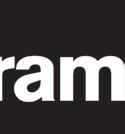














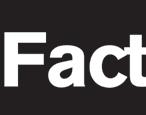



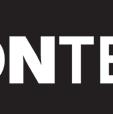






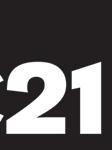


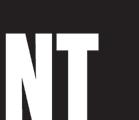




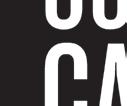

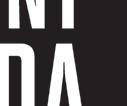







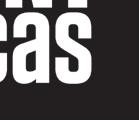

























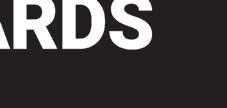

unfair advantage CONTENT STRATEGIES NIGERIA Content CONTENTL A
Your




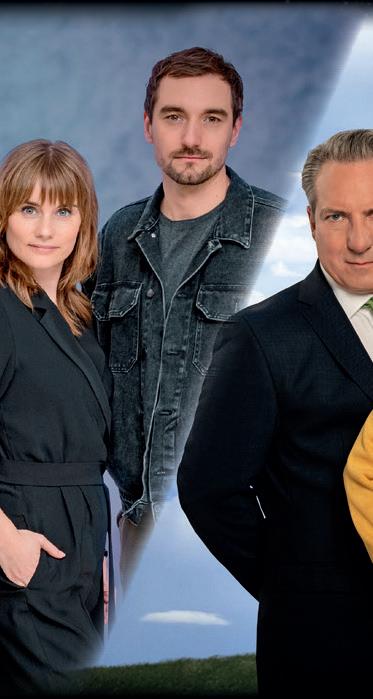
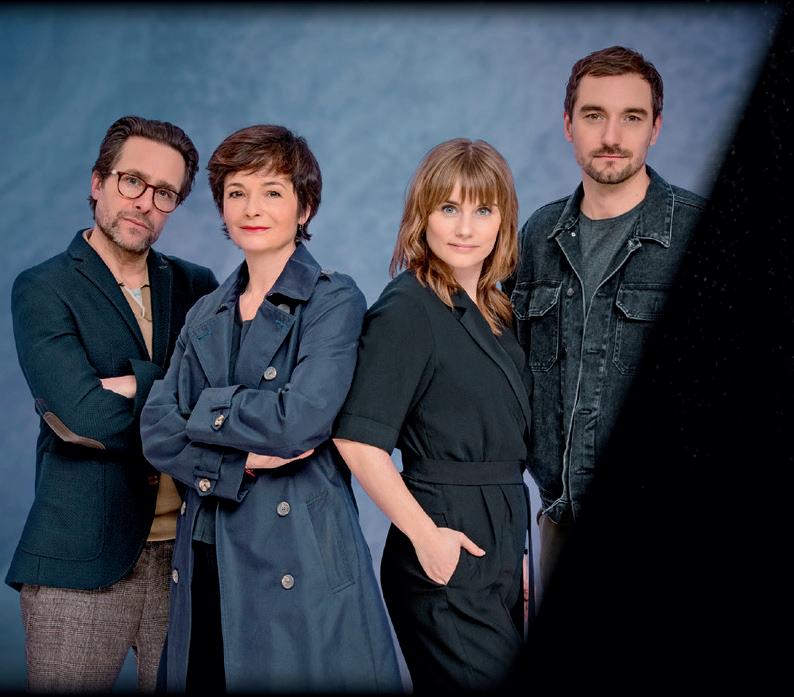
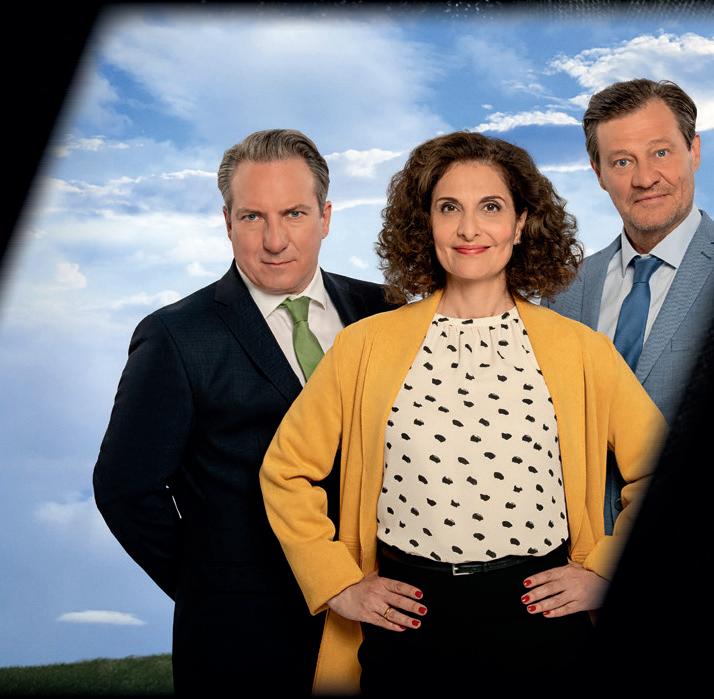
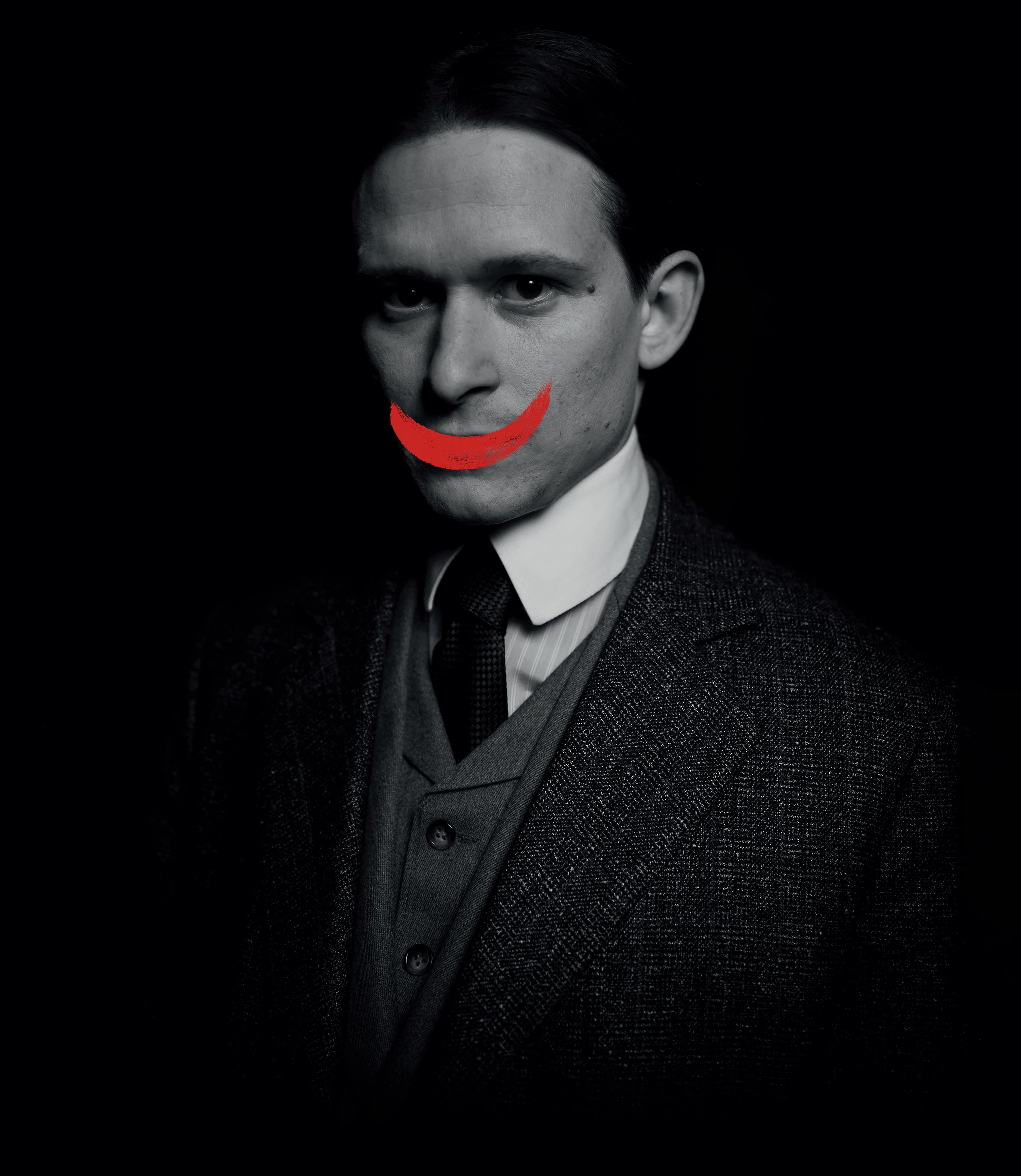
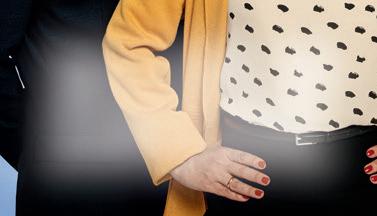

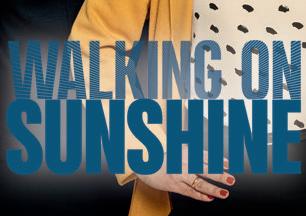








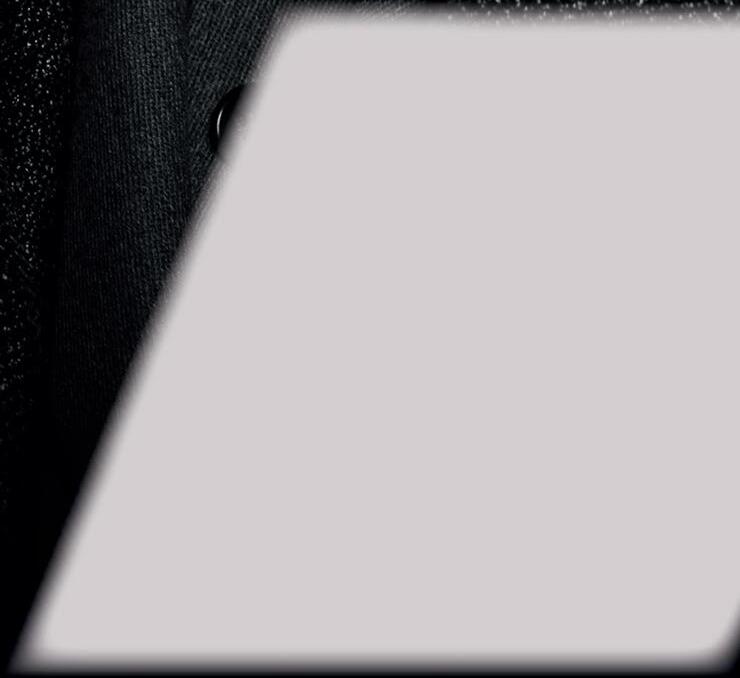
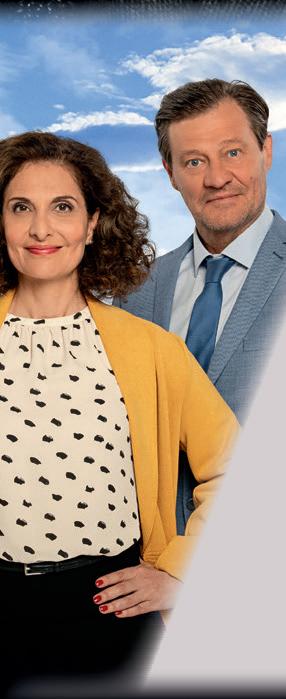


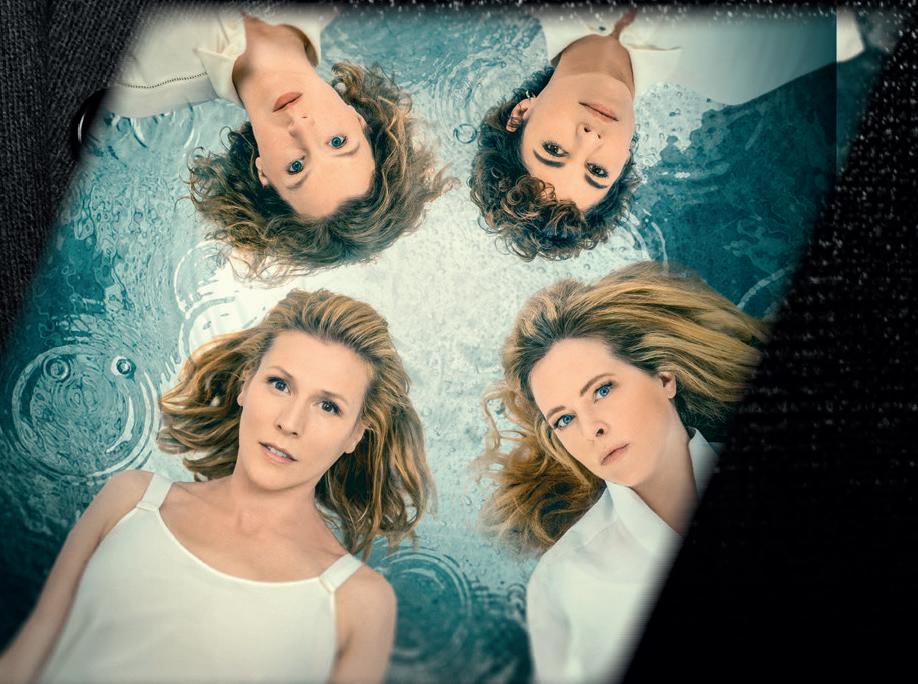
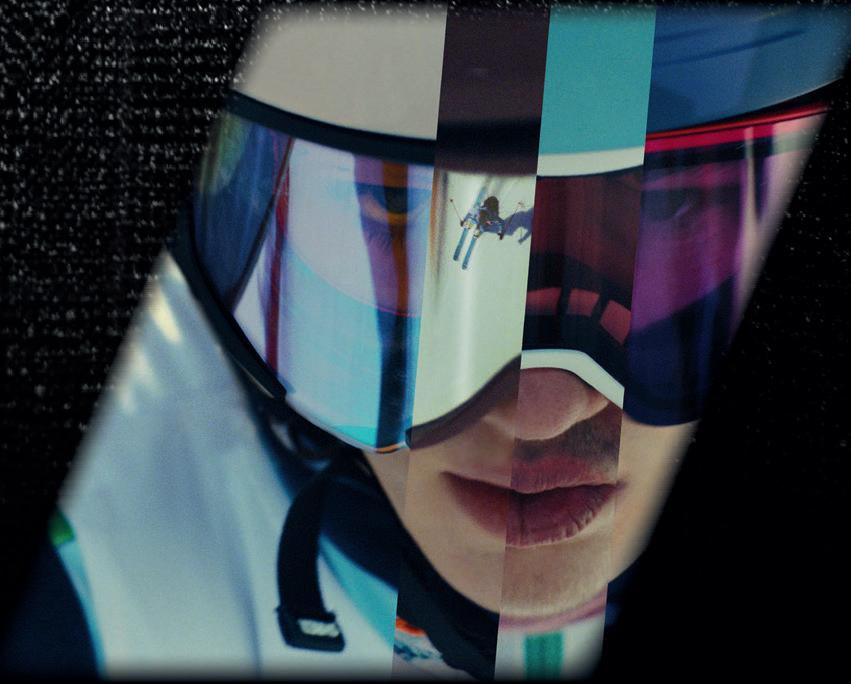



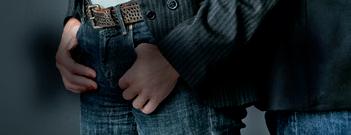
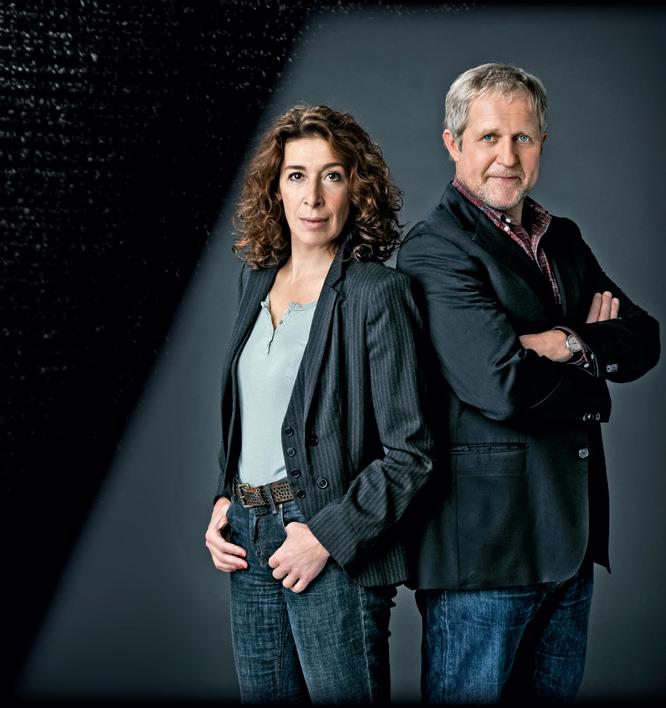
contentsales.ORF.at
















































































































































































































































































































































































































 SALLY PHILLIPS BEN MILLER
MICHAEL THEO
SALLY PHILLIPS BEN MILLER
MICHAEL THEO

































 Macarena Sanz as Ana in Spanish series Déjate Ver (Show Yourself)
Macarena Sanz as Ana in Spanish series Déjate Ver (Show Yourself)
































































































































































































































































 Karen Radzyner
Karen Radzyner






































































































































